Entry Requirements for American Travelers to France
Inspiration

Reading time: 0 min Published on 4 January 2023, updated on 16 April 2024

PASSPORTS AND VISAS
All U.S. and Canadian citizens, including infants, need a valid passport to enter France. Visas are not required for American and Canadian visitors staying in France for up to 90 days. For more information, contact your nearest French Consulate. See a list of local French consulates in the U.S.
It is mandatory in France to carry some form of identification at all times. If you lose your passport, the nearest U.S. Consulate will issue Americans a limited-validity replacement if travel is imminent, or a full-validity passport if further travel is not within two weeks. When in France, please carry a photocopy of your passport separately from your passport. The copy will facilitate issuance of a replacement ($75 fee for adults, $85 for children). The American Embassy in Paris is at 2, avenue Gabriel, tel. 01 43 12 22 22. The Passport Section is nearby at 4, avenue Gabriel (open 9a.m.-noon, Monday- Friday). There are other Consular Offices in Bordeaux, Lille, Lyon, Marseille, Nice, Rennes, Strasbourg and Toulouse that provide assistance to American citizens.
Entering France : Travelers from countries outside the European Union (EU) must declare certain articles when entering France. Duty and import taxes are levied on items not for personal use that individually or collectively exceed 175€ in value. Certain categories of items for personal use (tobacco products, alcoholic beverages, perfumes, coffee and tea, etc.) may be brought in untaxed up to certain authorized amounts. The following are forbidden or subject to strict control: drugs, radioactive materials, firearms, endangered species, plants, ivory and food, meat and dairy products. Carry prescriptions to authenticate any controlled substances. “Monetary instruments” equal to more than 10,000€ (whether brought into or taken out of France) must be declared. When in doubt, consult the French Embassy , a French Consulate or the French Customs and Excise Service's “ Info Douanes Service ” in Paris at tel. 08 20 02 44 44 (8:30 a.m.-6:00 p.m., Monday to Friday)
Re-entering the U.S. : Returning U.S. citizens who have been away for 48 hours or more are allowed to bring back, once every 30 days, $800 worth of merchandise duty-free. You're charged a flat rate of duty on the next $1,000 worth of purchases, and any dollar amount beyond that is subject to duty at whatever rates apply. On mailed gifts, the duty-free limit is $200. Have your receipts or purchases handy to expedite the declaration process. Note: If you owe duty, you are required to pay upon your arrival in the United States, using cash, personal check, government or traveler's check, or money order; some locations also accept Visa or MasterCard.
BRINGING YOUR PETS TO FRANCE
Travelers may bring dogs, cats and ferrets into France. Each family is limited to five animals, which must have valid rabies vaccination certificates and be identifiable by a microchip or tattoo. For more information, including details about travel with pet rodents, reptiles, birds or other species, visit www.ambafrance-us.org or contact the French Embassy.
- TWITTER - Follow the Embassy on Twitter

By Rédaction France.fr
The magazine of the destination unravels an unexpected France that revisits tradition and cultivates creativity. A France far beyond what you can imagine…
Holidays at Galeries Lafayette

Air France, the best and most comfortable way to get to France

French Wine Tasting with Duclot La Cave

Gift vouchers for your shopping at Galeries Lafayette

The Christmas Windows Display and Characters

A Fairy Tale 1, 2, 3 Christmas!

8 Luxurious Boutiques in Paris

A historical and cultural melting pot in French Polynesia
Tahiti-French Polynesia


Paris France travel requirements 2024: What American travelers need to know
We aim to keep this post updated about Paris France travel in 2024 with official Paris travel restrictions, requirements, and health and safety guidance. Our goal is to help you make informed decisions so you can travel confidently, safely, and responsibly in this new post-pandemic world of ours.
Paris is a destination close to our hearts, as Michelle has relatives in the city and studied in Paris in college.
As restrictions vary based on the traveler’s citizenship, we will focus primarily on those affecting U.S. citizens.
Last update: January 2024. Originally published: May 2021.
Disclosure: This post contains some affiliate links. If you make a purchase through one of our links, we may receive a small commission, at no additional cost to you.
January 2024 – Agnes Groonwald of Travel on the Reg , expats in France: “Tourism in Paris has seemed light since our move just outside of the city, but we also haven’t experienced the peak summer season yet. It’s still expected to book the big attractions (e.g. Louvre Museum) a few weeks ahead of travel, and dinner reservations remain a must at popular eateries.
Some locals and tourists are still voluntarily masking on crowded public transit and popular tourist destinations. Otherwise, it appears to be business as usual. There are no COVID protocols outside of doctors’ offices where masking is compulsory. Paris attractions, restaurants, and public transit are all operating without COVID-era restrictions. You can travel to/from the city without vaccine cards. That said, the city continues to struggle with regular disruptions to transit/worker shortages that require patience from travelers, but this has more to do with local politics vs. COVID. It’ll be interesting to see what happens during the Olympics.
The general tips for Paris travel apply. Leave plenty of time to get to/from attractions around the city and pre-book the big ticket items as soon as you know when you’re visiting.”
*At the end of the post, we share more on-the-ground perspectives from local residents and travelers to the Paris so you can get a true sense of what to expect.
Table of Contents
Can US citizens travel to Paris, France? Can I travel to Paris right now?
Yes, France is open to American travelers, regardless of vaccination status.
As of August 2022 , France removed all COVID entry requirements for any traveler from any country.
Testing, proof of vaccination, proof of recovery, proof of a compelling reason for travel, and sworn declaration about Covid contact and symptoms are no longer required .
Visitors from over 60 visa-exempt countries , including the U.S., will soon be required to have a European Travel Information and Authorisation System (ETIAS) travel authorization to enter Italy and other European countries . The start date has been delayed from 2024 to 2025.
See details about ETIAS here
Paris, France travel restrictions currently allow traveling between regions. However, as of May 2023 , short-haul domestic flights that can be taken by train in less than two-and-a-half hours are not allowed.
Effective March 2022, masks are no longer required in indoor spaces and public transport but still highly recommended in enclosed and small spaces, in hospitals, and other medical centers.
Quarantine rules in Paris, France: What happens if I get Covid?
Travelers are not required to quarantine upon arrival in France unless presenting symptoms of Covid.
Travelers who test positive for COVID-19 while in France are no longer required to self-isolate but are asked to observe the following guidelines:
- Wear mask, observe physical distancing, practice hand hygiene
- Avoid contact with people who are immunocompromised
- Notify others (family, friends, colleagues) you came in contact with within 48 hours before the onset of symptoms, or within 7 days before testing positive, if no symptoms are present
- Contact a doctor and monitor your health
See details here .
Paris Health Pass/Pass Sanitaire Requirements for Dining, Attractions, and Travel
You might be wondering: Do I need a vaccine certificate or Covid test to enter restaurants, public transit, accommodations, and attractions in Paris?
Since March 2022, a vaccine pass is no longer required to enter most establishments.
As of August 2022, Health Pass or passe sanitaire , obtained with a proof of either vaccination or a recent negative Covid test, is no longer required.
Can Americans travel to Paris France in 2024?
Travel to Paris in May is open for US citizens without restrictions. Please read on for details and check back for updates, as protocols may change.
What is it like to fly to Paris, France CDG Paris Charles de Gaulle Airport right now? As of March 2022, wearing a mask is no longer required in French airports. Check with your individual airline about mask requirements on board the flight.
Temperature checks or other screenings may be done at the airport. Hand sanitizers are readily available.
Do Americans have to quarantine when traveling to Paris, France? No. Travelers are not required to quarantine upon arrival in France.
Does France check COVID-19 symptoms of incoming travelers? Health screening procedures, including temperature checks, may be in place at airports and other ports of entry in France.
Does France require a negative Covid 19 test for American travelers? As of August 2022, a negative Covid 19 test is no longer required for entry.
Does France require a proof of Coronavirus vaccine for American travelers? As of August 2022, a proof of Coronavirus vaccine is no longer required for entry.
Do I still need to provide a negative Covid test or quarantine if I have been vaccinated? No. Quarantine or proof of a negative Covid test are no longer required, regardless of vaccination status.
Is a booster shot required for travel to Paris, France? As of August 2022, booster shots are no longer required for purposes of entry to France. There is currently no expiration period set for the validity of vaccinations.
What Covid testing options are available for travelers in Paris, France? U.S. Citizens can obtain a COVID-19 test at laboratories and testing centers in Paris. Covid-19 testing centers are also available for certain situations in Paris-Charles de Gaulle airport and Paris-Orly by appointment .
PCR tests generally cost between 50 and 100 euros, payable in advance. Results for the PCR test are available within 48 hours. Antigen tests cost 29 euros for those not covered by French social security; results are usually available within half an hour.
Testing centers in France can be found on this map.
What healthcare options are available to travelers in Paris, France who get the virus? Paris, France hospitals and clinics are open. Testing in labs and pharmacies is available to foreign visitors at their own expense.
For travel insurance that covers Covid, check out Nomad Insurance by Safety Wing >
What service businesses and restaurants are open in Paris, France? Restaurants, bars, cafes, museums, parks, clubs, attractions (including the Eiffel Tower), and tours have reopened. Stadiums, arenas and other large-capacity venues are allowed to operate at full capacity.
Are face masks required in Paris, France? Masks are no longer required in France but may still be required in medical facilities. Private businesses may make masks a condition of entry at their discretion, but this is rare.
Are buses running in Paris, France? Public transportation is available in Paris. A health pass is not required.
Will France impose new Covid restrictions? What’s next is difficult to predict. Historically, most countries impose COVID-19 restrictions when strains on the health care system might become unsustainable.
How has the Coronavirus impacted Paris, France?
France has been one of the hardest hit countries in Europe and went into a series of national lockdowns. Case numbers spiked in Fall 2020, Spring 2021, and Summer 2021 with the Delta variant.
More than 130,000 people in the tourism sector lost jobs in France.
In June 2021, France reopened its borders to more countries outside of Europe with a color-coded system for entry requirements.
France State of Emergency ended in August 2022; France removed all Covid related restrictions for all travelers from any country.
Over 90% of the population have been fully vaccinated.
For the current situation in Paris France, including: total COVID-19 positive cases; total cases in France; and COVID-19 testing in France, please see the French Department of Health site .
What should you pack for safely traveling in Paris France?
😷 Face Masks – Face coverings are recommended in crowded places. Find N95 masks at Bona Fide > or designer options at Vida >
💊 Medicine – Bring enough prescription and over-the-counter medication for your entire trip to avoid trips to the clinic.
💳 Vaccine Card Holder – Protect that paper CDC card when traveling abroad (if your country doesn’t offer a digital version). Get a simple plastic protector > or Vegan leather clippable > or Leather passport + card combo holder >
👃 Covid self-test – The most studied rapid antigen self-test with FDA emergency authorization. NOT valid to enter countries. Use for your own peace of mind. Order from CVS > or Walmart >
💧 Sealed water bottle – Make sure your reusable water bottle has a lid that’s not exposed to the air. We use one of each of the following: Shop insulated water bottles with protective lid > Shop water bottles with purification filter and protective lid >
✈️ Travel insurance that covers Covid – We’ve started using Nomad Insurance by Safety Wing for affordable evacuation, international medical, and trip coverage.
What do Paris, France locals and recent travelers say about visiting Paris, France now?
What is it like to visit Paris, France right now? It’s our goal to provide regular updates here from real people on the ground, to help potential visitors know what to expect.
The following are subjective opinions only. Official travel guidance can be found above.
January 2024 – Agnes Groonwald of Travel on the Reg, resident of France: “Tourism in Paris has seemed light since our move just outside of the city, but we also haven’t experienced the peak summer season yet. It’s still expected to book the big attractions (e.g. Louvre Museum) a few weeks ahead of travel, and dinner reservations remain a must at popular eateries.
September 2023 – Lauren of Pack and Paint, UK traveler: “I caught the Eurostar from London to Paris for five days of sightseeing. Tourism in Paris is in full-swing post covid with adventurers from across the globe hitting up the French capital in their millions. Top tourist attractions such as the Eiffel Tower and the Louvre were busy which indicated a large tourism boom.
In Paris, it felt like everyone had gone back to pre-covid times. Hardly anyone wore masks or followed social distancing. With large crowds at most tourist attractions, it would have been tough to follow covid related advice.”
June 2023 – Jori of The Tejana Abroad , expat: “Summer in Europe is back and with it, all the usual summer crowds! Most attractions in Paris have opened up and are welcoming international visitors. If you’re still a bit wary of crowds after Covid though, maybe try to visit France during the lower seasons, such as fall and spring.
The majority of French citizens are vaccinated with booster shots, but the government is no longer testing international visitors. Healthcare in France is easy to access and if you fear you are infected, you are able to get tested at any nearby pharmacy. Local tourist attractions and restaurants are very crowded in the high season, but a nice alternative is ordering food to go and enjoying it in a picnic in the park.”
February 2023 – Laura Bronner of Eternal Expat , American traveler: “I visited Paris for 4 days as part of a 10-day trip around France in February 2023. Paris feels completely back to normal. All museums and tourist attractions are back open with normal opening hours. The metro is clean and operating at normal and frequent times.
It was very busy when I visited in Feb 2023, especially at the biggest tourist sites like the Louvre, Eiffel Tower, and view points for these places. If you plan to visit in 2023, I highly recommend pre-booking tickets for the museums you want to go to with time slots and make sure to make reservations for restaurants you don’t want to miss, especially if you are traveling as a group of more than 2 people. If you don’t make a reservation, arrive at the time the restaurant opens for the best chance of getting a table for lunch or dinner service.
There is still easy access to testing at most pharmacies around Paris. You can definitely get the at-home tests at every pharmacy and many have testing centers outside the pharmacies which are conducted by pharmacists. There are no other restrictions on public transportation (no masks required, but they are “recommended” for public transport). There are lots of lines at museums and restaurants near the main attractions were incredibly busy.”
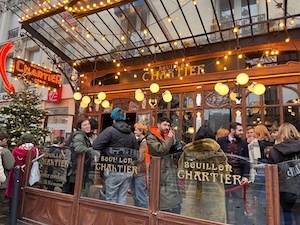
January 2023 – Amber Everywhere , American traveler: “Tourism seems to be back to normal in Paris, with large crowds in many of the most popular parts of the city. You’ll see masks and social distancing in some spaces, but most places are crowded and maskless.
Testing appears to be widely available in Paris, with some visible testing tents throughout the city. There does not appear to be contact tracing in place, at least for crowded public spaces; locals did not mention any trouble accessing healthcare. Most local attractions appeared to be open, same with restaurants and other amenities. I didn’t notice any COVID-related restrictions, though many people chose to wear masks when in public areas (like the metro).”
September 2022 – Alyssa, American traveler: “We arrived in Paris with our two little kids, getting ready to caravan with some friends here in France. So far, I would say Paris is medium to low in terms of crowdedness. Public transit hasn’t been too packed. Everything is open and mask free for the most part.”
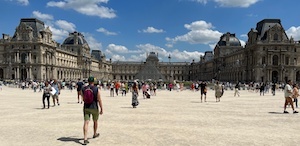
June 28, 2022 – Gretchen of Chasing Advntr , U.S. traveler : “We flew to Paris for several days as part of a month long European trip and to celebrate my twins birthday. We walked to all the major sites and while it was crowded, we had no trouble enjoying the attractions. We were glad we booked a river cruise and tickets to Musee D’Orsay in advance as tickets sold out for the river cruise and the museum line was at least an hour wait.
There were very few people wearing masks and maintaining social distance. Lines were long at the major attractions, but we never waited long for a table to eat. We also experienced a partial train strike which added to the difficulty of getting to the airport on already busy trains. Give yourself plenty of extra time to get to the airport.”
May 2022 – Mike C., American traveler: “Travel in Paris was pretty relaxed. There’s no more green pass or need to show vaccine card. Technically there were some rules on public transit to wear a mask. But it felt more like a choice as it was 50/50 on who did and didn’t. Transit was literally the only place with masking in Paris. Crowds felt like Paris is back to normal.”

March 9, 2022 – Erica of Nice French Things, French resident: “It’s the perfect time to visit Paris. Lines are short (or nonexistent) and monuments and tourist attractions are under capacity. Asian tourists have not returned yet and other Europeans are visiting their own countries they haven’t seen in the past 2 years.
Testing and tracing has been perfected here. Our vaccine pass will stop being required on Monday so we will be free to go to museums, theaters, restaurants without showing pass and we will not be required to wear masks. Pharmacies are the go-to for everything. Easy, fast, cheap tests done there. Paris area just reduced price permanently on regional rail tickets. Very advantageous for visitors.”
February 15, 2022 – Ingrid of Second Half Travels , U.S. traveler: “I’m spending 5 weeks in Paris and Montpellier currently studying French. COVID case numbers are dropping steeply in France. However, tourism numbers in February are still very low, so it’s a great time to visit to enjoy uncrowded museums and other sights.
My flight from Dallas to Paris in February was almost empty. I had a whole row of 9 seats to myself. Rapid and PCR tests are readily available at French pharmacies. It was easy and quick to get my Pass Vaccinal at an airport pharmacy when I arrived for 36 euros; I just showed my CDC vaccination proof of my vaccines and booster.
The Pass Vaccinal is supposed to be checked at all restaurants, museums, and long-distance trains. In practice, restaurants and trains sometimes fail to check. The Louvre and Musée d’Orsay in Paris were uncrowded: no large tour groups, only individual tourists from neighboring European countries like Spain. A Parisian friend told me, ‘You will never see Paris uncrowded like this again.’ I have actually extended my trip to add on more days in Paris to take advantage of this unique opportunity.”
October 23, 2021 – Jennifer A., American tourist: “ We had a fantastic time. We were very careful the entire week we were in Paris. Wore our masks everywhere and washed our hands a lot. Instead of doing two or three things in a day, we just did one major tourist thing each day. To be honest, that made the trip more enjoyable. We used the Paris Museum Pass and that was great. I ordered the five day passes and they mailed them to me last month. A couple of the museums required us to book a time slot to get in. I was of course concerned about passing a COVID test 72 hours prior to returning to the U.S. My sister and I walked about 500 feet from our hotel to a pharmacy to take the COVID test. The cost was 25 Euros for each one of us. The gentleman in the pharmacy was so professional. We also received our results via email in about 30 minutes. Unbelievable. We were able to upload the COVID results to a VERIFLY app that American Airlines wanted us to use. It made things a lot easier to go home. The French residents were all so nice to us. I am so glad we went.”
October 6, 2021 – Nick Winder, Illness To Ultra , American digital nomad: “I flew to Paris in order to transit to the south of France to visit family. Although there are still people visiting Paris, it’s obvious the tourist rates are reduced. Locals are more than welcoming, but the requirement of a health pass, even for foreign visitors proves challenge for both tourists, and local business owners. Nearly every local was compliant with city regulations, which is a must, especially considering public transport can still be busy. Access to testing and healthcare is abundant among pharmacies, although Sundays many pharmacies are closed. Most local attractions still remain open, although at a reduced capacity, but the reduced tourist level lines are not much of a problem. Just be aware that many attractions are ticketed.”
September 13, 2021 – Susan, US traveler: “ We’ve been in Paris almost 2 weeks finding it somewhat changed in several ways. We read that you can get the Passe Sanitiaire at pharmacies, yet, we’ve gone to more than I can count always being told that pharmacies are not providing them. At one yesterday, the owner said he believes that people were getting antigen tests at the pharmacy which gives a 72-hour Passe Sanitiaire. Tourists are few especially Americans. Some stores are permanently closed in touristy areas while nothing has changed in our neighborhood that is more residents of Paris.”
November 2021 – Roobens, French citizen in Paris, Been Around the Globe : “Everything reopened in May (bars, restaurants, gyms, clubs, etc.) in France. Meaning life is more or less back to normal. You just need to have a health pass to prove you’re fully vaccinated. And you have to wear a mask indoors (at the supermarket, when taking the metro, etc.). People are more than ready to travel in Europe only right now. Outside Europe it’s a different story since many borders are still closed. It’s very easy to get tested and to get vaccinated. There’s also an app for contact tracing, most people use it (it’s called “AntiCovid”). Everything is open (museums, restaurants, tourist attractions, etc.).”
September 2021 – Susan, traveling to Paris from US: “My husband and I flew to Paris in August-September 2021 for a 3 week visit with my daughter who lives there as a digital nomad. Tourists are very welcome if fully vaccinated. Major tourist attractions were uncrowded, though online ticket purchases are still recommended. Restaurants were full, especially the venues with large outdoor seating areas. (Travelers should be aware that diners frequently smoke in the outdoor areas.) Nevertheless, this may have been the best time in recent years to be in Paris, due to small crowd size. Paris was very ready to serve customers in the time of Covid. The French population is >70% vaccinated and the digital vaccine passport works well for French residents (but not visitors). Visitors should bring their original vaccine card to get on the airplane, but a laminated photocopy worked well at every location.
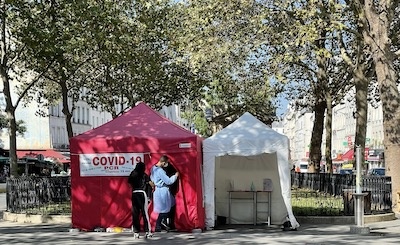
A vaccine card (or proof of a negative Covid test within 72 hours) was required at every.single.sit-down eating establishment, hotel, museum, or major tourist destination. Proof was not required to ride public transportation.
Surgical (not cloth) masks are required in every indoor space. Indoor mask-wearing was being strictly followed, with an occasional scofflaw in the subways. Compliance was certainly better than most places in the US. Almost all restaurants had outdoor patio seating available, though the desirability of this may change as the weather cools. Take-out businesses and park-bench dining were thriving. I did not see evidence that contact tracing (in restaurants) was happening. There are Covid testing tents in most busy squares, but many are not accessible to non-residents because they don’t have the ability to charge the required fee there. Covid testing (required for return to the US, and elsewhere) can be done in pharmacies and labs. Your hotel desk may help you find a location. Caution – our results did not arrive via text, as promised, probably because we didn’t have a French phone number. We ended up waiting in a very slow line at the lab to get the results.”

August 30, 2021 – Melissa Suzuno , U.S. visitor: “I’m spending a week in Paris in late August/early September 2021 and my trip is just for fun but as a freelance writer, I’m also doing some work here. I’m not sure if I’d really describe Parisians as “welcoming,” (haha) but tourism is alive and well in Paris. I did an Airbnb Experience and about half of the participants were French and half were American. The guide said that the number of Americans had decreased for a while but seems to be bouncing back. There are restrictions in place and they seem to be followed quite consistently. For example, you need to show your health pass (or recent negative COVID test) to eat in a restaurant (even outside) or enter a museum. Everywhere I’ve gone has enforced this. Local attractions like museums are open, but they recommend (and sometimes require) you to reserve your time in advance. I’ve gotten a few tests since I’ve been here (to get the temporary health pass). Tests are available in nearly any pharmacy and cost around 30 euros.”
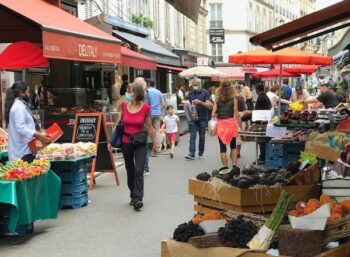
June 2021 – Leyla, Offbeat France , French resident: “I took a walking tour in the Marais a few days ago and we had one American tourist – the guide said it was her first of the season. Most tourists are French or European in Paris, but with the lockdown now lifted, a few Americans are beginning to arrive. In Paris, I’d say about 90% of people are following the rules. There is the occasional person who doesn’t cover their face in the subway or bus but they do get sideways looks from others. Everyone is masked in shops, because the owners will get fined otherwise. There’s usually plenty of gel at the door or at the cash register. In the streets, quite a few people still wear masks, considering that they are no longer mandatory. As the hot weather moves in, there will probably be fewer masks in the streets. The attached photo shows people do occasionally wear masks outdoors.”

June 2021 – Lena, Salut from Paris , French resident: “ Paris experienced a collective sigh in relief during the past weeks and enjoys the pure presence of normality – and travelers clearly belong to this normality. Just a couple of weeks ago, the obligation to wear masks outdoors got lifted. Indoors, it is still mandatory and the vast majority is complying. Food services and attractions are open again. However, while the online booking service of attractions assures that the number of visitors is not exceeded, I observe often that bars and restaurants are way fuller than they should be. It is recommended in France that everyone, locals and travelers, are downloading the app #tousanticovid for tracing and alerts. If a visitor requires a covid test, they can easily get tested in pharmacies.”
May 2021 – Audrey, French Resident in Lyon: “Since May 19, the curfew is now starting at 9:00 pm. Restaurants (only outdoor dining), boutiques, movie theatres, museums… have re-opened, only accepting half of the possible guests (which means you need to book everything or wait long lines on the sidewalk). Travel between regions is fully allowed before curfew and after if you’re filing an exemption form (if your train or flight arrives at 9:30 pm for example). All French people over 50 are being vaccinated. Our next milestones are the following: – May 31: opening of vaccination to everyone – June 9: opening of indoor dining and more people allowed in boutiques and such. Of course, wearing a mask is still mandatory everywhere public, inside and out.”
Planning a trip to Paris France?
Check out our other Paris, France travel resources: – Preparing for a Budget Trip to France – Where to Stay in Paris France: Best Neighborhoods Hotels Airbnbs – Travel Seasons: The Best Time to Visit Europe
If you have questions or updates about travel to Paris, France during the Coronavirus crisis or post-pandemic, please let us know in the comments below.
~ Pin this post for later or share with friends ~
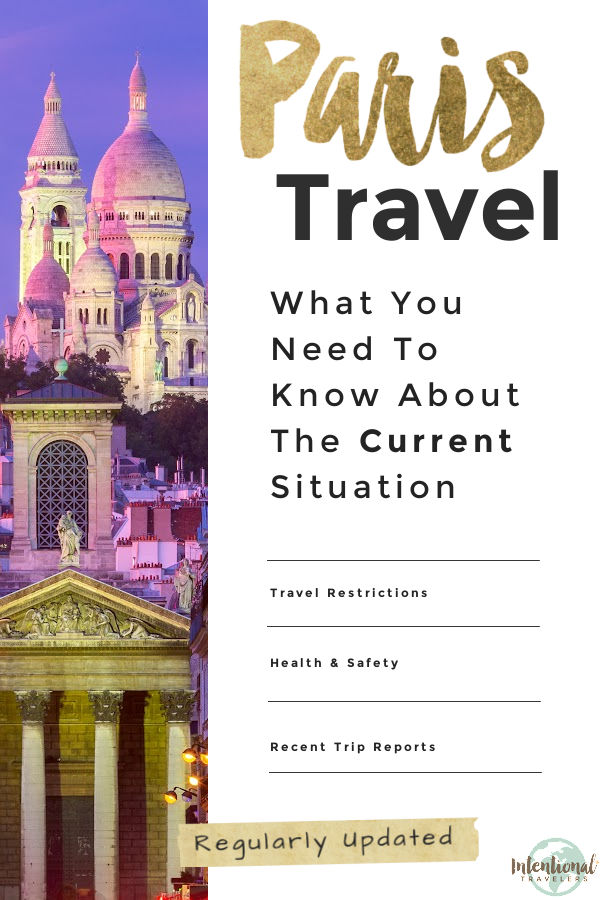
Disclaimer: Please note, travel restrictions change frequently. Readers must take responsibility for verifying information through official sources like the State Department and CDC, in respect to their specific situations. No responsibility can be accepted by Intentional Travelers for action or inaction as a result of information provided through IntentionalTravelers.com. Any information provided here is issued as general information only.
Similar Posts

Our Favorite Alternatives to Travel Wallets
When it comes to exploring new destinations, we all want to be worry-free and secure. While traditional hidden travel wallets have been the go-to solution, we find they leave much to be desired. The discomfort of hanging wallets around our necks or dealing with bulky waist options led us to look for alternatives. In our…
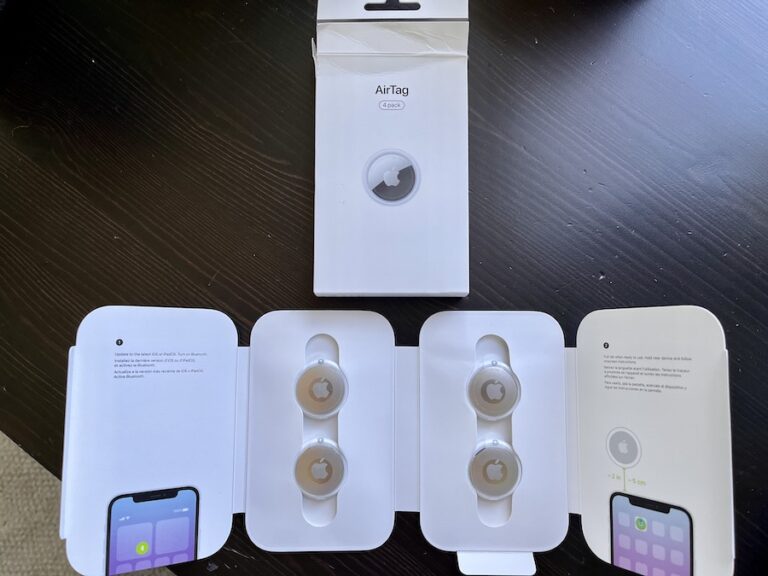
How to Use Apple AirTags For Tracking Luggage When Traveling
With growing concerns over lost luggage and delays at airports, we decided it was time to try Apple AirTags as a luggage locator or tracking device on our trips. In this Apple AirTag review for travel, we go over our personal experience with Apple AirTag luggage tracking on various flights. We also share important things…
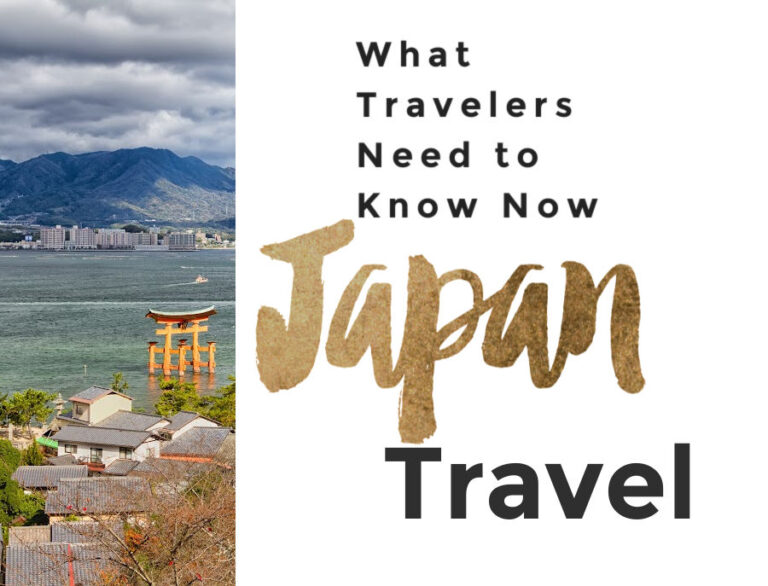
Japan travel requirements 2024: What travelers need to know
We aim to keep this post updated about Japan travel in 2024 with official Japan travel restrictions, requirements, and health and safety guidance. Our goal is to help you make informed decisions so you can travel confidently, safely, and responsibly in this new post-pandemic world of ours. Since travel restrictions can vary by citizenship, we…
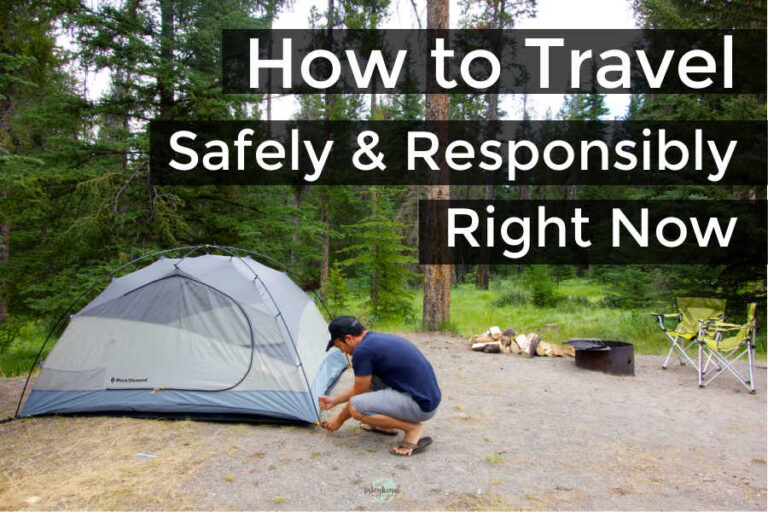
How to travel safely and responsibly in 2022 and beyond
Wondering how to travel safely during COVID-19? Many of us are longing to travel again, but only if we can do so safely and responsibly. We’ve put a lot of thought into the safest ways to take a vacation right now. And we plan to continually update this post with safe travel ideas and tips,…
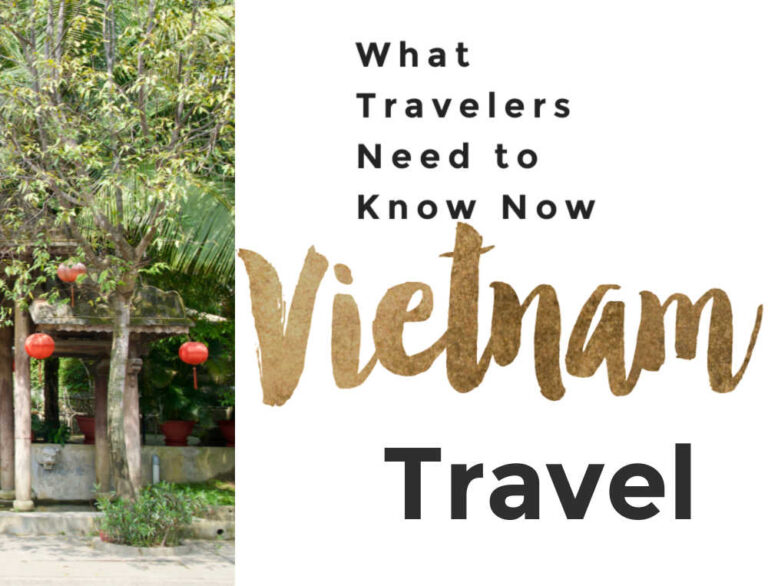
Vietnam travel requirements 2024: What travelers need to know
We aim to keep this post updated about Vietnam travel in 2024 with official Vietnam travel restrictions, requirements, and health and safety guidance. Our goal is to help you make informed decisions so you can travel confidently, safely, and responsibly in this new post-pandemic world of ours. Vietnam is a destination close to our hearts….
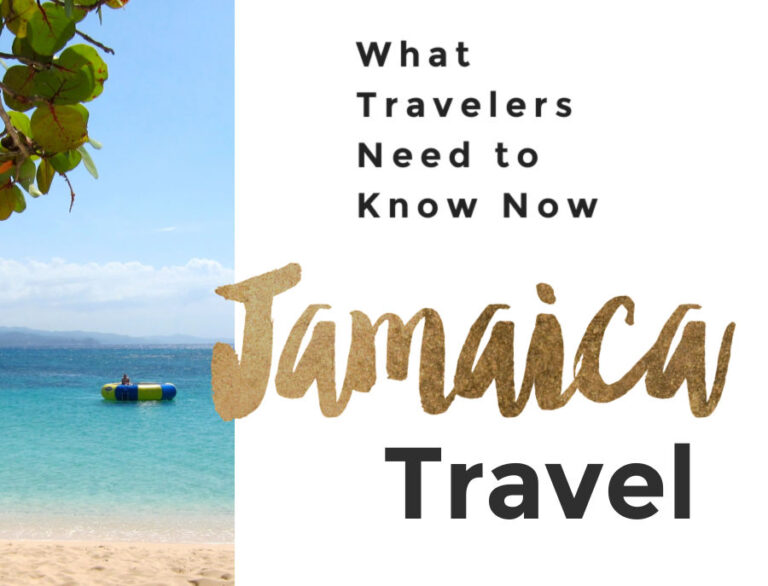
Jamaica travel requirements 2024: What travelers need to know
We aim to keep this post updated about Jamaica travel in 2024 with official Jamaica travel restrictions, requirements, and health and safety guidance. Our goal is to help you make informed decisions so you can travel confidently, safely, and responsibly in this new post-pandemic world of ours. At the end of the post, we share…
38 Comments
https://www.euronews.com/2022/03/03/covid-in-europe-france-to-scrap-face-masks-and-vaccine-passes-on-14-march
Looks like things may be loosening up by March 14th hopefully
Michelle, I have seen articles with Forbes, euro news & Reuters on the vaccine pass getting scrapped by March 14th in Paris except for in hospitals and on public transportation. Do you have any knowledge of this? Thanks Wendy
Hi Wendy! Thank you for visiting our blog. That information is correct. The French Government has recently announced that effective March 14, the vaccine pass will not be required to enter most businesses such as restaurants, bars, cafes, ski lifts, museums, cinemas and other cultural venues and theme parks. However, proof of vaccination will still be required in hospitals, retirement homes, and health centers.
I am a fully vaccinated/boosted American who will be arriving in Brest, France for one day, May 10, on a cruise ship followed with a one day stop in LeHavre, France on May 12. I’m aware of the French Vaccine Pass but can’t find anything about what is needed for a cruise ship arrival. Any help you can provide will be greatly appreciated.
Hi Susan. The French government does not specify restrictions for cruise ship passengers, therefore, the current entry rules for air travelers may also apply to travelers who want to go ashore in French ports. I understand that you are fully vaccinated/boosted, which is already compliant to France’s entry rules (you can find the details in our blog). Your cruise ship operator may also have information regarding entry rules to France. We will update our blog if the French government releases information regarding cruise ship arrivals. I hope this helps.
I just received this from Eurostar “You are considered fully vaccinated for travel purposes if you are aged 18 and over and: *you received a COVID-19 vaccine booster*
*you received the second dose of a two-dose vaccine at least a week ago, but no more than nine months ago*
So the important word here is “OR”. Sounds like it’s just what you said Michelle…thank you so much!!!
Thanks for following up, Debbi!
The new booster requirement is very confusing to me. I’ve read other articles where it says, if you don’t get a booster “within 9 months of original vaccine” then you’re considered unvaccinated.
I’m hoping you or someone you know can confirm this. My vaccination dates are as follows: Moderna – 4/5/2021 Moderna – 5/3/2021 Moderna Booster – 2/12/2022
Traveling at the end of March 2022 – As of now, will I be considered fully vaccinated and allowed to enter France? Or did I get the booster too late?
Thank you. Your article is very helpful!
Hi Katherine. We acknowledge that this requirement has been confusing. The way the official rule was translated in English makes it sound like the booster must be done *within* a certain timeframe. However, an expiration like this would be highly impractical and, in fact, most reporting on the requirement say more clearly: “Travelers aged 18 and over who had their full vaccine course over 9 months ago and have not since received a COVID-19 vaccine booster must follow the rules for unvaccinated passengers to enter France.” We have been researching this closely and have not seen any evidence of travelers being denied for a “late” booster, nor does France ever mention needing a second booster. We are keeping a close eye on this and will share any updates as they become available.
Thank you so much for your reply! I will keep a close eye on your page for any other updates.
Hello Michelle,
I am confused about the new protocol in France re: vaccinations and boosters. If I had my 2 vaccinations last Feb and March 2021 and then my booster 6 months later, am I considered “fully vaccinated”? Also, my adult son had his 2 vaccinations, the second being May 6th. He has not yet had his booster. I am reading that there is a 9 month expiration of his initial vaccinations so as of Feb 6 (3 days ago) he can no longer be considered “fully vaccinated” even if he gets his booster immediately?
Debbi, I hear you. This particular requirement can certainly be confusing, not to mention constantly changing. The way France has written the booster rule (“no later than nine months following the injection of the last required dose”) makes it sound like the booster must be done *within* 9 months of the second dose to enter France (or soon to be 4 months for the vaccine pass to enter restaurants). However, an expiration like this seems highly impractical and, in fact, most reporting on the requirement say more clearly: “Travelers aged 18 and over who had their full vaccine course over 9 months ago and have not since received a COVID-19 vaccine booster must follow the rules for unvaccinated passengers to enter France.” This would indicate that your son can be considered fully vaccinated once he gets a booster, even if the booster is done after 9 months. I’m assuming it’s just a translation/wording problem because I have not seen anywhere that travelers with “late” booster doses would lose any chance of being considered fully vaccinated. We are keeping a close eye on this and will share any updates as they become available.
Boosters every 4 months??! Wow
Yes, it seems to be the case. Like so many protocols, though, it could very well change.
I have a trip planned to Paris March 18,2022. I am reading that everyone needs to have the booster shot after being vaccinated for 4 months or you will not get the Vaccine Pass. Do you know if this rule is also mandatory for people going to France from the US? Some articles I have read say it is mandatory and others say it is not. Do you happen to know?
Thanks for your question Susie. I think part of the confusion is that the rules have changed recently. The following update is directly from the French government website in regards to foreigners vaccinated outside of France: “Since the 15th of January 2022, people aged 18 years and 1 month or more and who completed their initial vaccination scheme more than 7 months ago will need to present a proof of a booster dose to be eligible to receive a vaccine equivalency health pass.” I’m not sure why this site does not list the change to a 4 month rule that reportedly goes into effect in February. Perhaps confirmation is still forthcoming.
I am fully vaccinated. I had my booster in Dec. of 2021. I am going to France in June 2022, 6 months after my booster. Do I need a second booster in order to get in the country, or the receive the Health Certificate to allow me into restaurants and museums?
Hi Rebecca. We acknowledge that this requirement has been confusing. The way the official rule was translated in English makes it sound like the booster must be done *within* a certain timeframe. However, an expiration like this would be highly impractical and, in fact, most reporting on the requirement say more clearly: “Travelers aged 18 and over who had their full vaccine course over 9 months ago and have not since received a COVID-19 vaccine booster must follow the rules for unvaccinated passengers to enter France.” We have been researching this closely and have not seen any evidence of travelers being denied for a “late” booster, nor does France ever mention needing a second booster at this time. If you are boosted, you meet the current requirements to enter France and to receive the vaccine certificate. We are keeping a close eye on this and will share any updates as they become available.
I am wanting to plan a trip to take my 14 yr old daughter to Paris the last week of March 2022 on her spring break. I am fully vaccinated, but she is not. She has lab proof of antibodies – also sadly I’m being treated for a blood clot from my Covid vaccine which leads to my hesitation to vaccinate her. All of that aside- I see the paragraph that says travelers ages 11-17 are considered vaccinated if traveling with a fully vaccinated parent (I understand we would both need negative Covid test as well) I have read multiple other sites and I’ve seen this same info but have also seen on other sites everyone 12 & older must be vaccinated unless they’re going to quarantine for 10 days. Do you know what the policy is on this as we do not have 10 days to quarantine. IF she is able to come & not quarantine what would we do to get her a health pass or QR code to enter tourist sites? These are questions I cannot seem to clear up & I want to be sure before I would plan this. I am willing to email or call to France if I had the appropriate number and email contact. I’ve already sent an email a week ago through a government site and still do not have a response. Thank you in advance for any help/info you may have.
Thank you for visiting our blog. Current France travel rules states that “The measures applicable to fully vaccinated adults will be extended under the same conditions to minors accompanying them, regardless of vaccination status.” Since you are vaccinated, your 14-year-old daughter will be treated as vaccinated as well and will not need to quarantine. A negative test is however required for all travelers aged 12 and over. You can check the U.S. Embassy in France or the France Diplomacy websites for more information.
Regarding the health pass, persons age 12-15 require a health pass everywhere a vaccine pass is required. You can obtain a vaccine pass (or a health pass for your daughter) from designated pharmacies in France for a fee of up to 36 Euros (approximately 41.18 USD). You can check here for the map of designated pharmacies in France. You can check our blog for more information about the health pass and regular updates about France’s travel requirements. Hope this helps.
Thank you for your reply. As far as the health pass goes for my 14 yr old daughter, since she is not vaccinated am I understanding that in order for her to obtain one from the French pharmacies she will have to pass a Covid test every 24 hrs. for a fee of 36 euros each time to keep it active in order to be admitted into restaurants, museums, etc.? I have clicked on the map of pharmacies to actually check with one but everything on that page is in French. I am just making sure I understand this. Thank you
Wendy, an unvaccinated 14 year old would need a test within 24 hours in order to enter restaurants, attractions, and long-distance travel. She would not need to test daily unless you are visiting places where the pass is required each day. Antigen tests are 25 euros (36 was for the vaccine equivalent, sorry for the confusion). Here is a more direct link to pharmacy testing location map, you just have to keep clicking to zoom in on Paris: https://www.sante.fr/cf/carte-depistage-covid.html
Excellent information! Merci! It is January in the US right now and we are planning our trip to Paris for mid April 20 22 very excited but also so concerned because of the omicron variant now. I will follow your blog and see if any new postings are out as January comes to an end I am getting ready to book our trip now. Thanks again so much.
Great blog! Thanks for sharing paris travel restrictions, really helpful content.
I am planning a trip to Paris September 22 through 29th with a one day bus trip to Normandy. I understand that since I have a CDC proof of vaccination I do not need a test to enter France. However I do need a Travel Pass which would be obtained at a Pharmacy. I had read that the French government was paying for tests in order for tourists to return to their country of origin but not sure that is correct. My main question, does this process of receiving the Travel Pass work “smooth” or could there be snags. Same question for the required Covid-19 test upon returning, are there ample Pharmacy and testing sites for tourists? Has anyone taken a survey of recent travelers? Thank you
Thanks for visiting our blog. The French health pass for non-EU citizens is still relatively new and the protocols for visitors in September don’t seem to be fully established yet. Official guidance can be found here . At the moment, visitors coming before August 18 are able to submit their proof of vaccination by email before arrival to get the pass (a QR code). In case it’s not processed in time, getting tested in France is a temporary “back-up” method, valid for 72 hours. I’ve also seen that some travelers have been able to show their CDC vaccine card at a pharmacy in Paris to receive a QR code within 15 minutes, but I’m not sure how common that is yet. We will continue to seek out on-the-ground reports from recent travelers to find out how it’s going, and we’ll regularly update this post as we learn more.
We are scheduled to arrive Paris September 7, cruise to Normandy from the 9th through 16th, spend two more days in Paris, returning to U.S. on the 18th. The CDC and State Department alerts say “do not travel” and also warn about demonstrations and violence in tourist areas of major cities. We are in our 70s, fully vaccinated, but also cancer survivors. Should we cancel our trip?
I understand your concern. It’s a question I’ve been getting a lot lately with all the uncertainty around Europe travel so I wrote an article about it here: https://intentionaltravelers.com/should-i-reschedule-my-trip/ There is no right answer, as it depends on your values and risk tolerance, so I can’t really make that call for you. Demonstrations in Paris are certainly an additional factor to consider. But just to give some perspective… I’ve never been to Paris when there *wasn’t* a demonstration going by on my Uncle’s street, although they can vary in intensity. Usually protest locations are known so they can be avoided. However, if potentially dealing with that sounds too stressful, it may be a reason to cancel. Being fully vaccinated makes a huge difference but even so, cruising and travel in France during the pandemic is not without risk. Does the benefit of this trip outweigh that risk? Will worry get in the way of your enjoyment? That’s up to you.
Is there an app to use to show proof of vaccine status for visitors from outside the EU?
Thanks for your question. The E.U. vaccine app is only available to citizens and residents of the EU so far. Whether this will eventually be made available for non-EU tourists to facilitate travel in Europe is not yet clear, but we’ll be sure to update our blog posts here if that changes.
I am a US citizen planning a trip from USA to London and then to Paris. Is there any rules for US citizen traveling to Paris, via London by train?
Good question. Traveling through some countries to France can complicate the requirements. Whereas the U.S. is on the “green list”, the U.K. is on the “amber list” for France and the rules for the UK would apply since that’s where you’ll be departing from to enter France. Fully vaccinated travelers can enter France without an essential reason and would need to present a recent negative Covid test and proof of vaccination status. More details can be found here: https://www.diplomatie.gouv.fr/en/coming-to-france/coronavirus-advice-for-foreign-nationals-in-france/#sommaire_1
Hi Michelle,
It looks like France is no longer requiring a negative PCR test for vaccinated travelers from “Green” countries (the US included).
Or is it? Later on that page it states “(if you are aged 11 years or older) you agree to submit to a virological RT-PCR test for SARS-CoV-2 upon arrival in France.”
What are your thoughts?
Hi Ben. Thank you for visiting our blog. It is correct that France is no longer requiring a negative PCR test for fully vaccinated travelers from the United States and other Green countries. If a traveler (aged 11 years or older) from Green countries is not fully vaccinated, then a negative PCR or antigen test is required. A negative PCR or antigen test is also required for allowed travelers coming from “Orange” and “Red” countries.
A quick update from France: Since May 19, the curfew is now starting at 9:00 pm. Restaurants (only outdoor dining), boutiques, movie theatres, museums… have re-opened, only accepting half of the possible guests (which means you need to book everything or wait long lines on the sidewalk). Travel between regions is fully allowed before curfew and after if you’re filing an exemption form (if your train or flight arrives at 9:30 pm for example). All French people over 50 are being vaccinated. Our next milestones are the following: – May 31: opening of vaccination to everyone – June 9: opening of indoor dining and more people allowed in boutiques and such. Of course, wearing a mask is still mandatory everywhere public, inside and out.
Hi! Thanks so much for sharing these updates from France!
I have friends in Paris and I’m thinking about going next month…. Will the restrictions ease by then?
Hello and thank you for visiting our blog. I understand your concern about your trip next month, though we don’t have any special insight as to when protocols might change, beyond what we’ve already shared in the article. We will do our best to keep updating this post as the situation progresses.
Leave a Reply Cancel reply
Your email address will not be published. Required fields are marked *
This site uses Akismet to reduce spam. Learn how your comment data is processed .
We’re sorry, this site is currently experiencing technical difficulties. Please try again in a few moments. Exception: request blocked
Security Alert May 17, 2024
Worldwide caution, update may 10, 2024, information for u.s. citizens in the middle east.
- Travel Advisories |
- Contact Us |
- MyTravelGov |
Find U.S. Embassies & Consulates
Travel.state.gov, congressional liaison, special issuance agency, u.s. passports, international travel, intercountry adoption, international parental child abduction, records and authentications, popular links, travel advisories, mytravelgov, stay connected, legal resources, legal information, info for u.s. law enforcement, replace or certify documents.
Before You Go
Learn About Your Destination
While Abroad
Emergencies
Share this page:
Travel Advisory July 26, 2023
France - level 2: exercise increased caution.
Reissued with obsolete COVID-19 page links removed.
Exercise increased caution in France due to terrorism and civil unrest .
Country Summary: Terrorist groups continue plotting possible attacks in France. Terrorists may attack with little or no warning, targeting tourist locations, transportation hubs, markets/shopping malls, local government facilities, hotels, clubs, restaurants, places of worship, parks, major sporting and cultural events, educational institutions, airports, and other public areas.
Incidents such as pickpocketing and phone snatchings occur frequently and can happen anywhere, especially in crowded areas such as airports, train stations, subway and train cars, and near tourist attractions.
Peaceful demonstrations and strikes in Paris and other cities throughout France occur regularly and can disrupt transportation. On rare occasions, demonstrations have included violence and property damage and police have responded with water cannons and tear gas.
Read the country information page for additional information on travel to France.
If you decide to travel to France:
- Be aware of your surroundings when traveling to tourist locations and large crowded public venues.
- Avoid demonstrations and areas with significant police activity.
- Follow the instructions of local authorities including movement restrictions related to any ongoing police action.
- Find a safe location and shelter in place if unable to leave the vicinity of a demonstration.
- Monitor local media for breaking events and adjust your plans based on new information.
- Enroll in the Smart Traveler Enrollment Program ( STEP ) to receive Alerts and make it easier to locate you in an emergency.
- Follow the Department of State on Facebook and Twitter .
- Review the Country Security Report for France.
- Visit the CDC page for the latest Travel Health Information related to your travel.
- Prepare a contingency plan for emergency situations. Review the Traveler’s Checklist .
Embassy Messages
View Alerts and Messages Archive
Quick Facts
At least three months beyond date of departure from the Schengen area. The 12-page U.S. emergency passport is not valid for visa-free entry into France.
Must have at least one blank page for stamps
Not required for stays under 90 days
10,000 Euros Max
Embassies and Consulates
U.S. Embassy Paris 2 Avenue Gabriel 75008 Paris, France Telephone: +(33)(1) 43-12-22-22 Emergency After-Hours Telephone: +(33)(1) 43-12-22-22, enter zero “0” after the automated greeting Fax: +(33)(1) 42-61-61-40 (Special Consular Services) [email protected]
Only the consular sections in Paris and Marseille are authorized to issue passports. The other offices provide limited services to U.S. citizens.
U.S. Consulate General Marseille Place Varian Fry 13286 Marseille Cedex 6 France Telephone: +(33)(1) 43-12-47-54 Emergency After-Hours Telephone: +(33)(1) 43-12-22-22 [email protected]
U.S. Consulate General Strasbourg 15, Avenue d'Alsace 67082 Strasbourg Cedex France Telephone: +(33)(1) 43-12-48-80 Emergency After-Hours Telephone: +(33)(1) 43-12-22-22 Fax: (33)(3) 88-24-06-95 [email protected]
When calling from within France, drop the country code and add a zero. For example: +(33)(1) 43-12-22-22 becomes 01-43-12-22-22.
Please note that the emergency after-hours telephone number for all U.S. posts in France is: +(33)(1) 43-12-22-22 . Ask to speak to the duty officer if you need emergency assistance after business hours.
Destination Description
Learn about the U.S. relationship to countries around the world.
Entry, Exit and Visa Requirements
Visit the Embassy of France website for the most current visa and entry requirement information.
The Government of France does not recognize the 12-page U.S. emergency passport, issued by U.S. embassies and consulates overseas, as a valid travel document for visa-free entry into France. If traveling on this emergency passport, you may be refused boarding and/or entry by immigration officials and/or held at the airport until a return flight to the U.S. is available. Direct transit through France for another destination accepting an emergency passport may be permitted. You should check entry requirements of any other country of destination to make sure the emergency passport is accepted for entry.
You may enter the Schengen area, including France, for up to 90 days for tourist and business purposes without a visa.
Immigration officers may also request you show sufficient funds for your intended stay and a return airline ticket.
If you are traveling to France or Monaco for reasons other than business or tourism, such as employment (including diplomatic or official travel), study, or internship, you must obtain the appropriate French or Monegasque (Monaco) visa for that purpose before you leave the United States. You should be aware that it is nearly impossible to obtain or change visa status while in France.
All minors (under age 18) traveling without a parent or legal guardian and who are residents in France must have the written consent of at least one parent or legal guardian to leave France. The minor must travel with his or her own I.D., a copy of the parent/guardian’s I.D., and form number 15646*01, executed by the parent/guardian and available here .
If you are transiting through France to South Africa, there are special requirements for minors. See Entry, Exit and Visa Requirements for South Africa for additional information.
Contact the French Embassy in Washington at 4101 Reservoir Road NW, Washington, DC 20007, tel. (202) 944 6000, or one of the French Consulates General in Atlanta, Boston, Chicago, Houston, Los Angeles, Miami, New Orleans, New York, or San Francisco for the most current visa information.
Special Note: Overseas departments and territories of France (i.e. those not located in Europe) are not included in the Schengen Agreement. Please see Country Specific Information on French Guiana , French Polynesia , and the French West Indies for entry and exit requirements. For other departments and territories, visit the Embassy of France website for the most current visa and entry requirement information for those areas.
Monaco: For further information on entry requirements to Monaco, travelers may contact the Embassy of the Principality of Monaco , 888 17th Street NW, Suite 500, Washington D.C. 20006, Tel: (202) 234-1530, Email: [email protected] ; or the Consulate General of Monaco, 565 Fifth Avenue – 23rd floor, New York, NY 10017, Tel: (212) 286-0500, Email: [email protected] .
Traveling Through Europe : If you are planning to visit or travel through European countries, you should be familiar with the requirements of the Schengen Agreement.
- Your passport should be valid for at least three months beyond the period of stay if you plan on transiting a Schengen country. Please review our U.S. Travelers in Europe page. We recommend that your passport have at least six months’ validity remaining.
- You will need s ufficient proof of funds and a return plane ticket .
- For additional information about visas for the Schengen area, see the Schengen Visa page.
HIV/AIDS Restrictions: The U.S. Department of State is unaware of any HIV/AIDS entry restrictions for visitors to or foreign residents of France.
Find information about dual nationality , prevention of international child abduction and customs regulations on our websites.
Safety and Security
Terrorism: Terrorist groups and those inspired by such organizations are intent on attacking U.S. citizens abroad. Terrorists are increasingly using less sophisticated methods of attack – including knives, firearms, and vehicles – to more effectively target crowds. Frequently, their aim is unprotected or vulnerable targets, such as:
- High-profile public events (sporting contests, political rallies, demonstrations, holiday events, celebratory gatherings, etc.)
- Hotels, clubs, and restaurants frequented by tourists
- Places of worship
- Shopping malls and markets
- Public transportation systems (including subways, buses, trains, and scheduled commercial flights)
For more information, see our Terrorism page.
French authorities have spoken publicly about the heightened threat conditions for terrorist attacks in Europe.
A counterterrorism law enacted in 2017 allows the government to prevent the circulation of individuals and to create zones of protection and security.
The French government has temporarily reestablished border controls at its borders with its Schengen neighbors and movement may be restricted in some areas. Border controls with the United Kingdom, including the Channel Tunnel crossing, have also been reestablished following Brexit.
The Government of France routinely conducts security and crisis management drills involving deployment of security forces, emergency services, and police to high profile areas that may be near popular tourist sites. U.S. citizens should be aware of the possibility of drills and should heed instructions of local authorities should they encounter them.
French police and military routinely patrol public spaces. You should expect security inspections (to include purses, bags, and backpacks) at the entrance to large public venues and businesses.
When traveling or living in France, you should:
- Be aware of your local security situation and take appropriate steps to bolster your personal security.
- Monitor media and local information sources like France24 , Radio France International , The Local , and the Paris Travel Information webpage and factor updated information into personal travel plans and activities.
- Address specific safety concerns to French law enforcement authorities who have responsibility for the safety and security of all residents and visitors to France.
- Enroll in the Smart Traveler Enrollment Program ( STEP ) to receive Alerts and make it easier to locate you in an emergency.
Crime: The majority of crimes directed against foreign visitors, including U.S. citizens, involve pick-pocketing (passports, phones, cash, credit cards), vehicle and residential break-ins, bicycle theft, and other forms of theft.
Visitors to congested and popular tourist areas (e.g., museums, monuments, train stations, airports, and subways) should be particularly attentive to their surroundings. Rental cars are frequently targeted for break-ins when visitors exit their vehicles and leave valuables behind.
Crimes of opportunity are more likely to involve violence on the street late at night or when the victim resists.
Exercise extra caution when out alone at night and/or consider traveling out at night with trusted companions.
While the incidence of sexual assault is statistically low, attacks do occur.
Be aware of “date-rape” drugs, which are present in France. The Embassy has assisted multiple victims who appear to have been targeted using these drugs.
Be cautious in bars and clubs where alcohol is served, and do not leave your drink unattended or accept a drink from strangers, as they may have slipped drugs into the drink.
There are high incidences of “smash and grab” robberies in economically depressed areas or on highly traveled thoroughfares such as roads to and from the airport. Thieves on foot or motorcycle will approach a vehicle that is stopped in traffic, smash a window, reach into the vehicle to grab a purse or other valuable item, and then flee. Keep doors locked and valuables out of sight.
See our travel tips for Women Travelers .
Demonstrations occur frequently. They may take place in response to political or economic issues, on politically significant holidays, and during international events.
- Demonstrations can be unpredictable, avoid areas around protests and demonstrations.
- Past demonstrations have turned violent.
- Check local media for updates and traffic advisories.
- Strikes can interfere with travel plans and increase expenses of traveling to France.
Demonstration organizers must obtain prior police approval, and police routinely oversee participants. In case of violence or property damage, French authorities may use chemical agents and water cannons to disperse crowds.
Alerts issued regarding demonstrations are posted on the U.S. Mission’s website .
International Financial Scams: See the Department of State and the FBI pages for information.
Victims of Crime: Report crimes to the local police by dialing 112 (the European emergency number which has some English-speaking staff) or 17 from a landline or cell phone and contact the U.S. Embassy Paris at +(33)(1) 43-12-22-22. French authorities do not generally speak English and communication may be difficult. Remember that local authorities are responsible for investigating and prosecuting crime.
See our webpage on help for U.S. victims of crime overseas .
- help you find appropriate medical care
- assist you in reporting a crime to the police
- contact relatives or friends with your written consent
- provide general information regarding the victim’s role during the local investigation and following its conclusion
- provide a list of local attorneys
- provide information on victim’s compensation programs in the U.S.
- provide the Paris Police Prefecture pamphlet in English
- provide an emergency loan for repatriation to the United States and/or limited medical support in cases of destitution
- help you find accommodation and arrange flights home
- replace a stolen or lost passport .
- provide you with information regarding victims’ assistance groups in France
Domestic Violence: U.S. citizen victims of domestic violence are encouraged to contact the Embassy for assistance.
Tourism: The tourism industry is generally regulated and rules with regard to best practices and safety inspections are regularly enforced. Hazardous areas/activities are identified with appropriate signage and professional staff is typically on hand in support of organized activities. In the event of an injury, appropriate medical treatment is widely available throughout the country. Outside of a major metropolitan center, it may take more time for first responders and medical professionals to stabilize a patient and provide life-saving assistance. U.S. citizens are encouraged to purchase medical evacuation insurance .
Local Laws & Special Circumstances
Criminal Penalties: You are subject to local laws. If you violate local laws, even unknowingly, you may be expelled, arrested, or imprisoned. Individuals establishing a business or practicing a profession that requires additional permits or licensing should seek information from the competent local authorities, prior to practicing or operating a business.
Furthermore, some laws are also prosecutable in the U.S., regardless of local law. For examples, see our website on crimes against minors abroad and the Department of Justice website.
Arrest Notification: If you are arrested or detained, ask police or prison officials to notify the U.S. Embassy immediately. French authorities will not routinely notify the Embassy unless you request them to do so. See our webpage for further information.
Penalties for possessing, using, or trafficking in illegal drugs in France are severe.
Convicted offenders can expect long jail sentences and heavy fines.
In France and Monaco, driving under the influence of drugs or alcohol could land you immediately in jail.
Flying Drones: The use of drones and drone footage in France is highly regulated. It is against the law in France to operate drones over public spaces (including museums, parks, streets) in urban areas and near airports, military bases, prisons, nuclear plants, and large gatherings such as outdoor concerts and parades. The privacy of individuals captured in drone footage is paramount. Violators can be arrested and subject to fines of up to 75,000 euros and/or one-year imprisonment. Review the information sheet provided by the French government concerning hobbyist drone flights.
You should contact the Embassy of France or one of France's consulates in the United States for specific information regarding customs requirements. Please see our Customs Information .
There are strict regulations concerning temporary importation or exportation from France of items such as firearms, antiquities, medications, business equipment, merchandise samples, and other items.
French Foreign Legion: U.S. citizens interested in joining the French Foreign Legion (FFL) should be aware that the cognitive and physical tests for acceptance are extremely challenging.
Ensure you have access to sufficient funds to return home should your candidature be refused.
Successful candidates report that the FFL provides a new identity and retains their U.S. passport during a long probation period. Lack of access to your passport can complicate routine or emergency travel.
Faith-Based Travelers: See our following webpages for details:
Faith-Based Travel Information
International Religious Freedom Report – see country reports
Human Rights Report – see country reports
Hajj Fact Sheet for Travelers
Best Practices for Volunteering Abroad
LGBTI Travelers: There are no legal restrictions on same-sex sexual relations or the organization of LGBTQI+ events in France.
See our LGBTQI+ travel information page and section 6 of the Department of State's Human Rights report for further details.
Travelers with Disabilities: The law in France prohibits discrimination against persons with physical, sensory, intellectual or mental disabilities, and the law is enforced. Social acceptance of persons with disabilities in public is as prevalent as in the United States. Expect accessibility to be limited in public transportation and general infrastructure.
Visitors to France should expect accessibility to be limited in public transportation (subway, specifically), lodging, communication/information, and general infrastructure. Getting around French cities can be challenging for those with mobility issues. Many sidewalks are narrow and uneven, and cobblestone streets make access difficult, though major tourist sites generally have better facilities.
Although the Paris Metro is a very efficient method for traveling throughout central Paris, most stations are not readily accessible for people with disabilities. However, many Parisian buses and tramways are equipped with lowering platforms for travelers with limited-mobility, or sight- or hearing-disabled. Taxis are also a good mode of transportation.
The English-language Paris Visitors Bureau and Explore France websites contains additional information specifically designed for travelers with special mobility needs. For further information, e-mail U.S. Embassy Paris , U.S. Consulate General Marseille , or U.S. Consulate General Strasbourg .
Students: See our Students Abroad page and FBI travel tips .
Women Travelers: See our travel tips for Women Travelers .
Dial 15 to connect to emergency medical services or dial 112 to reach an operator.
Ambulance services are widely available, though English is not widely spoken.
Medical care is comparable to that found in the United States.
Except for emergency services, you may be required to pay for service prior to receiving treatment in France. Be sure to obtain a “Feuille de Soins” for later reimbursement from your health care provider.
You may be refused routine care under local law if you lack the ability to pay.
Foreigners with terminal illnesses may be denied treatment if treatment is available in their home country.
We do not pay medical bills. Be aware that U.S. Medicare/Medicaid does not apply overseas. Most hospitals and doctors overseas do not accept U.S. health insurance. Hospital bills are not itemized.
Medical Insurance: Make sure your health insurance plan provides coverage overseas. Most care providers overseas only accept cash payments. See our webpage for more information on insurance coverage overseas. Visit the U.S. Centers for Disease Control and Prevention for more information on the type of insurance you should consider before you travel overseas.
We strongly recommend supplemental insurance to cover medical evacuation.
Always carry your prescription medication in original packaging with your doctor’s prescription. Check with the government of France to ensure the medication is legal in France.
Vaccinations: Be up-to-date on all vaccinations recommended by the U.S. Centers for Disease Control and Prevention.
Further health information:
- World Health Organization
- U.S. Centers for Disease Control and Prevention (CDC)
Air Quality: Visit AirNow Department of State for information on air quality at U.S. Embassies and Consulates.
The U.S. Embassy maintains a list of doctors and hospitals . We do not endorse or recommend any specific medical provider or clinic.
Travel and Transportation
Road Conditions and Safety: Roads are generally comparable to those in the United States, but traffic engineering and driving habits pose special dangers.
Lane markings and sign placements may not be clear. Drivers should be prepared to make last-minute maneuvers.
Right-of-way rules differ from those in the United States. Unless specifically indicated otherwise, drivers entering intersections from the right have priority over those on the left, even when entering relatively large boulevards from small side streets.
Bicycles, motorcycles, scooters, and electric skateboards are prevalent on streets, crosswalks and sometimes sidewalks. They have legal priority and often do not respect traffic signals.
On major highways, there are service stations at least every 25 miles. Service stations are not as common on secondary roads in France as they are in the United States.
Highway toll stations may not accept U.S. credit cards. For non-residents, the simplest way to pay is with cash euros at the toll lane marked for that purpose. Do not attempt to use a credit card if it is the only one you have in your possession in case the machine does not return your card.
Traffic Laws: While French cities actively encourage bicycle rentals through widely available city-sponsored systems, you should be cautious, especially in a busy and unfamiliar urban environment. Helmets are neither required nor readily available near rental stations. If you plan to ride a bicycle in France, you should bring your own helmet. Though bicycles, scooters and electric skateboards must follow local traffic laws, or risk fines, they often do not do so and can pose a danger to drivers and pedestrians. Many paths are clearly marked for this form of transportation in larger cities.
Pedestrian accidents occur when a pedestrian steps out into the street, often when a car or motorcycle is making a turn through a pedestrian crosswalk. Pedestrians should be cautious and aware of traffic even when they have a green walking signal since this is no guarantee against aggressive drivers. Do not assume cars will stop for pedestrians in a crosswalk.
Public Transportation: Paris has an extensive and efficient public transportation system. The interconnecting system of buses, subways, and commuter rails is comparable to or better than that found in major U.S. cities. Similar transportation systems are found in all major French cities.
If you use any of France’s public transportation services, take particular care to retain your used or “validated” ticket until you exit the bus, subway, or train station completely, as it may be checked or required for exit. Children over four years of age must have a ticket.
Inspectors conduct intermittent, random checks and passengers who fail to present the correct validated ticket are subject to stiff and immediate fines. Failing to sign and date or enclose photo (when required) on a tourist pass (Paris Visite) makes the pass invalid and the holder subject to a fine.
Inspectors may show no interest in explanations and no sympathy for an honest mistake. Failure to cooperate with inspectors may result in arrest.
Between cities, France has extensive rail service, which is safe and reliable. High-speed rail connects the major cities in France. Many cities are also served by frequent air service. Traveling by train is safer than driving.
See our road safety page for more information. Visit the website of the French National Tourist Office for specific information on French driver's permits, vehicle inspection, road tax, and mandatory insurance. See Embassy of France’s driving in France webpage for information on using U.S. driver’s licenses in France.
Aviation Safety Oversight: The U.S. Federal Aviation Administration (FAA) has assessed the government of France’s Civil Aviation Authority as being in compliance with International Civil Aviation Organization (ICAO) aviation safety standards for oversight of France’s air carrier operations. Further information may be found on the FAA’s safety assessment page .
Maritime Travel: Mariners planning travel to France should also check for U.S. maritime advisories and alerts . Information may also be posted to the U.S. Coast Guard homeport website , and the NGA broadcast warnings website (select “broadcast warnings.”)
For additional travel information
- Enroll in the Smart Traveler Enrollment Program (STEP) to receive security messages and make it easier to locate you in an emergency.
- Call us in Washington, D.C. at 1-888-407-4747 (toll-free in the United States and Canada) or 1-202-501-4444 (from all other countries) from 8:00 a.m. to 8:00 p.m., Eastern Standard Time, Monday through Friday (except U.S. federal holidays).
- See the State Department’s travel website for the Worldwide Caution and Travel Advisories .
- Follow us on Twitter and Facebook .
- See traveling safely abroad for useful travel tips.
- Paris 2024 Olympics and Paralympics
Review information about International Parental Child Abduction in France . For additional IPCA-related information, please see the International Child Abduction Prevention and Return Act ( ICAPRA ) report.
Travel Advisory Levels
Assistance for u.s. citizens, learn about your destination, enroll in step.

Subscribe to get up-to-date safety and security information and help us reach you in an emergency abroad.
Recommended Web Browsers: Microsoft Edge or Google Chrome.
Check passport expiration dates carefully for all travelers! Children’s passports are issued for 5 years, adult passports for 10 years.
Afghanistan
Antigua and Barbuda
Bonaire, Sint Eustatius, and Saba
Bosnia and Herzegovina
British Virgin Islands
Burkina Faso
Burma (Myanmar)
Cayman Islands
Central African Republic
Cote d Ivoire
Curaçao
Czech Republic
Democratic Republic of the Congo
Dominican Republic
El Salvador
Equatorial Guinea
Eswatini (Swaziland)
Falkland Islands
France (includes Monaco)
French Guiana
French Polynesia
French West Indies
Guadeloupe, Martinique, Saint Martin, and Saint Barthélemy (French West Indies)
Guinea-Bissau
Isle of Man
Israel, The West Bank and Gaza
Liechtenstein
Marshall Islands
Netherlands
New Caledonia
New Zealand
North Korea (Democratic People's Republic of Korea)
Papua New Guinea
Philippines
Republic of North Macedonia
Republic of the Congo
Saint Kitts and Nevis
Saint Lucia
Saint Vincent and the Grenadines
Sao Tome and Principe
Saudi Arabia
Sierra Leone
Sint Maarten
Solomon Islands
South Africa
South Korea
South Sudan
Switzerland
The Bahamas
Timor-Leste
Trinidad and Tobago
Turkmenistan
Turks and Caicos Islands
United Arab Emirates
United Kingdom
Vatican City (Holy See)
External Link
You are about to leave travel.state.gov for an external website that is not maintained by the U.S. Department of State.
Links to external websites are provided as a convenience and should not be construed as an endorsement by the U.S. Department of State of the views or products contained therein. If you wish to remain on travel.state.gov, click the "cancel" message.
You are about to visit:
- Go to the main menu
- Go to the mobile menu
- Go to main content
- Press Room Press Room

- Increase text size
- Decrease text size
- Add our RSS feed
Coming to France? Your Covid-19 questions answered
- Share on Twitter
- Share on Facebook
- Partager sur Linkedin
French people who are living abroad, travelling or returning from abroad, as well as visitors from abroad, will find answers below to frequently asked questions on COVID-19 measures.
This FAQ supplements the information on the Conseils aux voyageurs (Travel advice, in French only) section.
— Last updated on 26 August 2022 —
What are the rules relating to the vaccine pass?
Since 14 March 2022, the “vaccine pass” has been lifted in France in all areas where it was previously required (cultural and leisure venues, commercial catering, professional trade shows, etc.). Similarly, the COVID certificate is no longer required as of 1 August 2022.
What are the current rules applied at national borders?
Since the outset of the crisis, the health check system at borders has protected our healthcare system and delayed the arrival into France of worrying variants. This system was removed on 1 August 2022.
Therefore, the rules previously in place for travellers to France no longer apply :
- Travellers no longer have any formalities to complete before arriving into mainland or overseas France, and the COVID certificate can no longer be required, irrespective of the country or area of origin;
- Proof of a compelling reason for travel can no longer be required ;
- Travellers no longer need to present a sworn declaration that they are not infected with COVID-19 and pledge to take an antigen test or biological exam upon arrival in France. This also applies to travel between mainland France and each of the overseas territories.
However, in the event of a dangerous variant, a system requiring a negative virological test upon entering France may be reinstated for travellers arriving from countries believed to be at risk.
The government will thus maintain the option to use “emergency brake” measures for a maximum period of two months, following a recommendation from the Haute autorité de santé (French National Authority for Health) in the event of the emergence and circulation of a new COVID-19 variant which can be a serious health risk, or in overseas territories, if the health system is at risk of saturation.
Furthermore, for foreign travel, a vaccination certificate, a negative test certificate or proof of recovery in EU format may be required by the destination country. It is also recommended to store all relevant documents on the TousAntiCovid application or print them out.
For the health rules in force for entering other countries, travellers should visit the “ Conseils aux voyageurs ” section on the Ministry for Europe and Foreign Affairs website (in French only).
What are the rules concerning mask-wearing in France?
- Mask-wearing is no longer mandatory in establishments open to the public, nor on board maritime, river, land and air transport;
- Mask-wearing continues to be recommended in enclosed and small spaces, and at large gatherings for vulnerable persons due to their age;
- It is also highly recommended in hospitals and retirement homes.
- Details on travelling to and from France
13 things you should know before traveling to Paris

Mar 31, 2024 • 7 min read
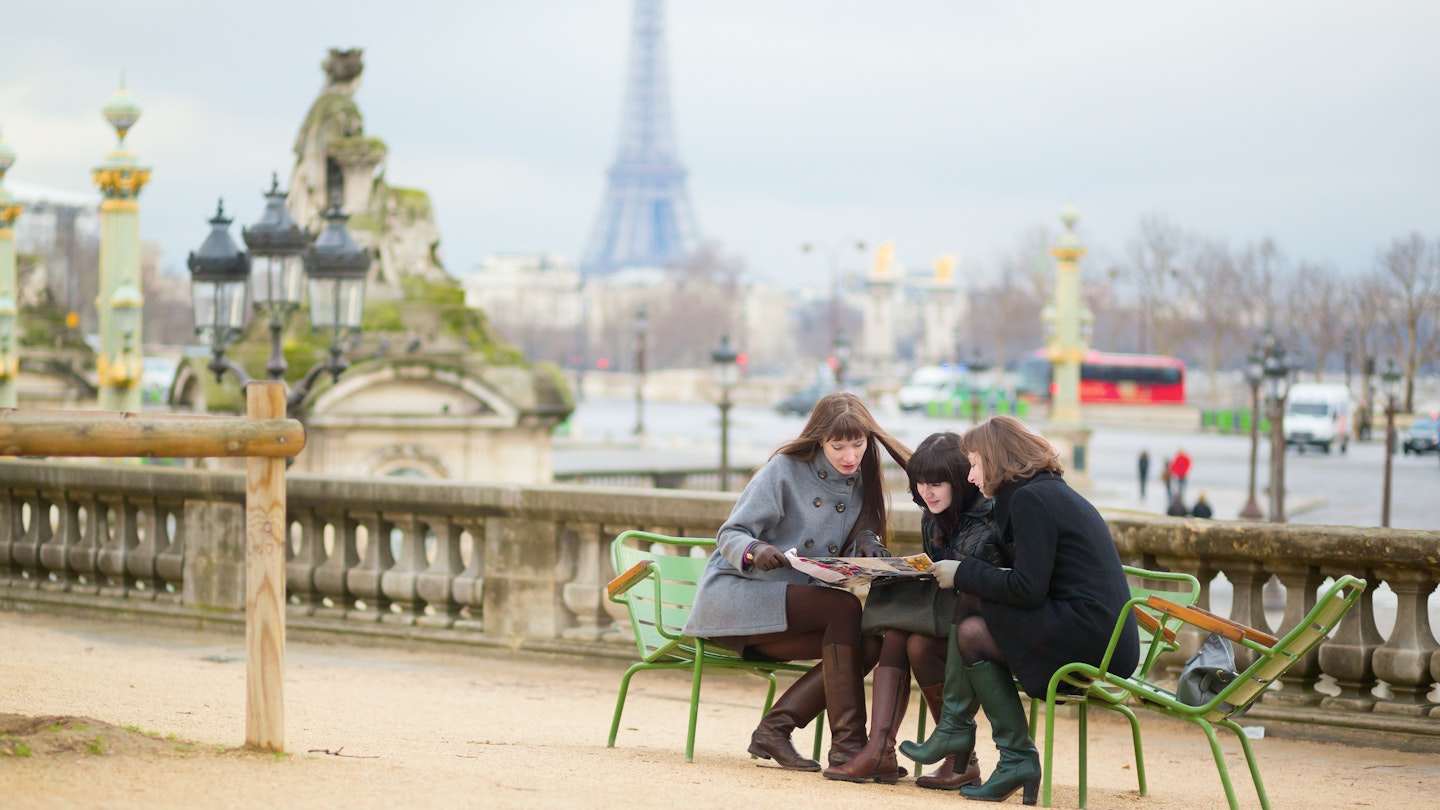
These top tips can help a first-time visitor get the most out of their time in Paris © Encrier / Getty Images
Fabienne is one of the author's of our latest Paris guidebook . Here she shares what you need to know before visiting Paris for the first time.
Bustling, diverse and surprising: such is Paris !
Due to its variety and density, navigating the city for the first time may seem challenging. Even after nearly 20 years of living in Paris, I still encounter nuances in the local lifestyle and learn about Parisian peculiarities, such as being fined for taking a Metro corridor the wrong way.
Here are some practical tips and cultural insights to help you plan for your trip and better understand France's capital.
1. You will want more time in Paris than you think
As the busiest city in France, Paris isn’t short of events, attractions or activities. A glimpse of it can be caught in just a couple of days, but to truly experience the city's diverse sights and experiences, five days to a week is considered ideal. Paris can be enchanting year-round , yet it's worth noting that August is the traditional holiday period in France, which might mean encountering closures and a slowdown in local activities.
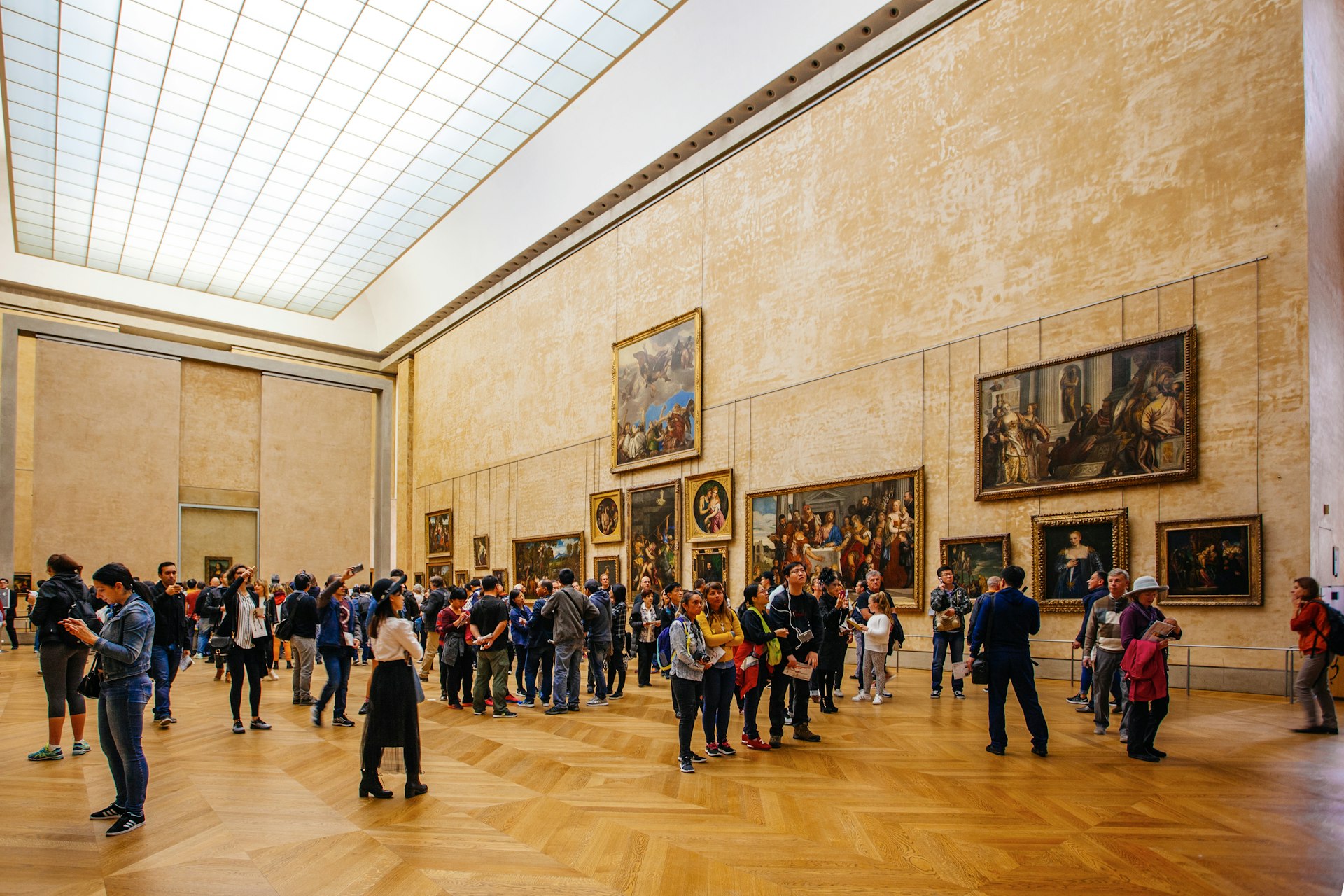
2. Book some main attractions in advance
With limited time, pinpoint in advance the main attractions you want to visit. Booking online for museums, exhibitions or theater performances will save you a lot of time waiting in lines. Remember, Parisians enjoy their museums as much as tourists do, so visiting on weekdays and starting early can significantly change your experience of busy landmarks.
3. Leave some time to wander
If you’re more the type who goes with the flow, you might want to stroll until you find yourself surprisingly lost, discovering the unique identity of each arrondissement (district) . They are all shaped by various layers of history. With most landmarks concentrated in the city center, it is easy to wander around and never get bored. In fact, there's even a French word for this way to visit a place: flâner .
You might traverse from the upscale Champs-Élysées to the tourist-packed Saint-Michel, then to the trendy Le Marais and the more bohemian Belleville, all within the city's boundaries, without even realizing it. For deeper insights, consider themed tours (food, culture, history, street art, architecture, etc). Many Parisians are eager to share their city with visitors, and it’s a great way to get first-hand insider tips.
4. Dress like a Parisian
Wear something comfortable, because Paris is best explored on foot. Dark clothes will generally help you blend in with the Parisians and help deter pickpockets. That said, if you are into dressing up, don’t feel shy! This is the home of couture after all.
5. Personal space is important
More important – if you wish to blend in – is being mindful of personal space, especially on public transportation. The golden rule when navigating Paris, particularly on the Metro and RER (suburban train network) is to be unobtrusive.
During busy times, especially at rush hour (from 7am to 9am and 5pm to 7pm), put your backpack or luggage down and avoid using fold-down seats. When the carriage is full, it's often better to wait for the next train, which usually arrives within minutes. Always keep to the right on corridors and escalators, and have your ticket or Navigo travel pass handy at all times for frequent ticket barriers and control.
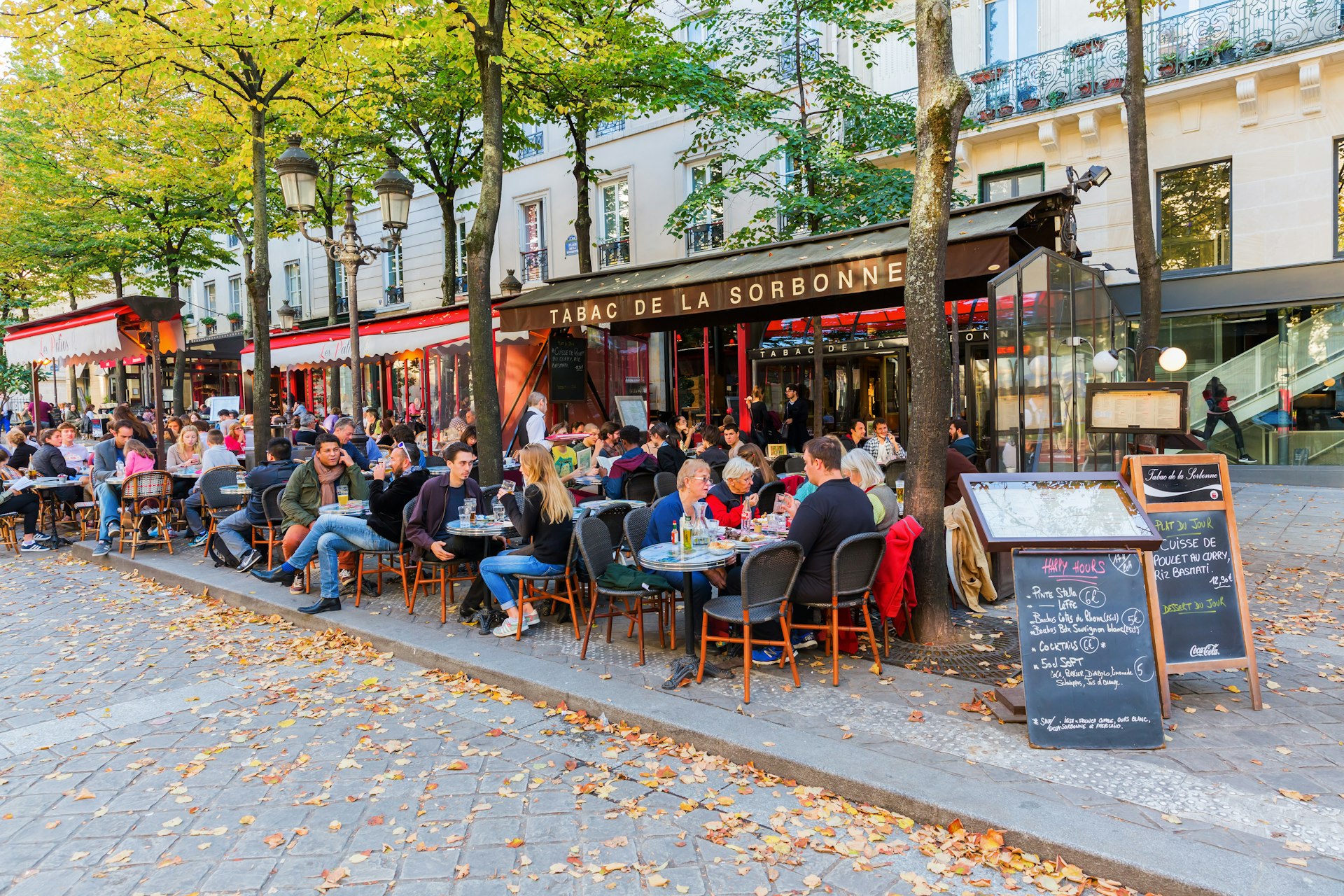
6. Get familiar with cafe culture etiquette
The best places to experience Paris and its people are at the cafes. Take a moment to rest on a terrasse – cafe tables on the street – to people-watch while planning the next part of your day. Upon arrival, simply choose a table and sit; servers will come and attend to you. Bills are often left with the order on the table, but payment isn't expected immediately unless explicitly stated. Tipping is not required but always appreciated.
It's not uncommon to exchange a few words with people at neighboring tables, but it's equally normal and acceptable to keep to oneself, despite the close proximity of seating (as most establishments maximize their use of pavement space). Smoking tobacco is widespread in France, particularly at outdoor cafes. Indoor smoking is prohibited by law; so if you're wondering whether smoking is allowed, look for ashtrays on the tables. Additionally, Parisians generally value discretion, so loud voices might attract disapproving looks.
7. Try and speak French, even a little
Despite the hustle, Parisians will generally stop to help if asked. Most people are able to give basic directions in English. The phrase "excusez-moi, parlez-vous anglais?" ("excuse me, do you speak English?") is the best way to get someone's attention. It's also polite to greet and say farewell to anyone you interact with, such as shopkeepers, with bonjour (or bonsoir at night) and au revoir .
Should you befriend locals, don’t be surprised to see them make a move towards your cheeks. La bise – giving kisses on the cheeks (two in Paris) – is the most common greeting among friends, including between men. However, as a foreigner, you won’t be expected to do it spontaneously.
8. Bus and tram services are more accessible than the Metro
The few Metro stations that have elevators are indicated on Metro maps. Wheelchair users or those traveling with a stroller may find it easier to travel by bus or tram, as they are more spacious, at street level and usually equipped with ramps.
9. Always keep an eye on your belongings
Wherever you go, watch out for your personal belongings, as pickpocketing is a risk on the Metro and near popular tourist sites. Scammers may approach you with a petition to sign or items for sale, distracting you from a potential pickpocket accomplice. A "lost" jewel or banknote on the street is another distraction scam.
In some tourist areas, you might encounter people trying to place a bracelet on your wrist and then demand payment. In all cases, politely decline any unsolicited interaction and walk away. Be aware that souvenirs sold by street vendors, including plastic souvenirs at the bottom of the Eiffel Tower , are often significantly overpriced compared to those in shops.
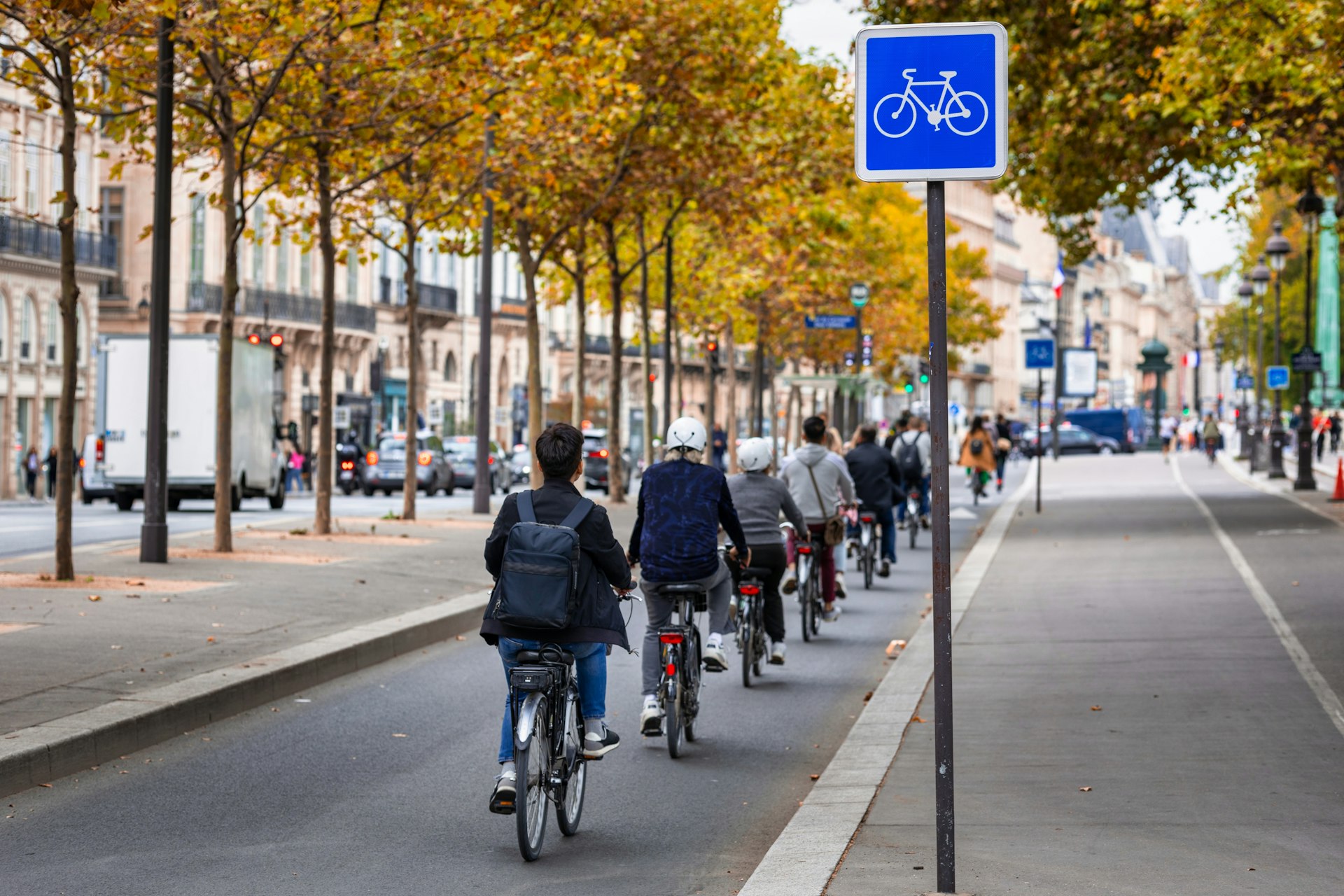
10. Crossing roads can be complicated
Be cautious on the streets as some roads are shared, and cars, taxis, delivery trucks, bikes, scooters, motorbikes, skaters and pedestrians are expected to coexist in these busy spaces. Although the French drive on the right, be aware that bicycles and scooters may use dedicated lanes that sometimes run counter to the traffic direction or merge with pedestrian walkways. They are not always visible so watch out in all directions before stepping out into the road.
11. Paris is generally a safe city
Fortunately, Paris is a safe city overall. In localized areas in the north-east of Paris there can be occasional criminal activity, typically at night time. As a tourist, you are unlikely to be targeted for violent crimes based on race or origin, especially when sticking to central attractions. If you need transportation late at night when the Metro isn't running (it stops between midnight and 5am on weekdays, from 1:30am on weekends), it's safest to call a taxi or use a ride-hailing app.
Generally, Paris is welcoming and LGBTIQ+ friendly (Le Marais is one of the historic “gayborhoods” in Paris). Unfortunately, catcalling towards women can happen on the streets or on public transportation, despite efforts in raising awareness. Take reasonable precautions as you would in any big city: watch out for potentially aggressive behavior – particularly from individuals who may be intoxicated or disoriented – on the Metro or on the streets.
12. Every district has its own central police station
Unfortunately things do sometimes go wrong, so if you run into a situation where the help of the police is required, look for the closest police station. Every arrondissement has its own central office open at all times. Alternatively, dial the European emergency number (112). For the fire department, dial 18.
13. The standard of medical care is high
Should you be in need of medical assistance, Paris has the largest operating public hospital system in Europe with emergency rooms equipped to receive travelers. In case of emergency, dial 15 for the ambulance service. Over-the-counter medicines can be found at pharmacies, which are on almost every street in Paris, with English-speaking staff around tourist areas. A mapping app will direct you to the nearest 24-hour pharmacy, should you need it.
Keep planning your trip to Paris:
Bring home the perfect souvenir with Paris in 5 Shops
Learn how to navigate the City of Lights with The best ways to get around Paris
Plan an affordable trip with Paris on a budget
Stay on the cutting edge with these 5 new (and unexpected) cultural attractions in Paris
This article was first published Aug 5, 2021 and updated Mar 31, 2024.
Explore related stories

Tips & Advice
May 14, 2024 • 10 min read
Unsure how to start planning a trip to Europe’s gourmet, cultural and artistic titan? We'll help you uncover the most unique places to visit in France.
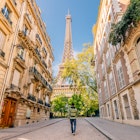
May 7, 2024 • 5 min read
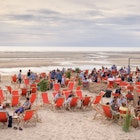
Apr 19, 2024 • 8 min read
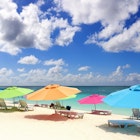
Apr 17, 2024 • 8 min read
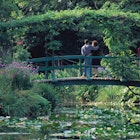
Apr 1, 2024 • 8 min read

Mar 29, 2024 • 6 min read
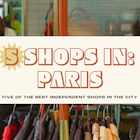
Jan 10, 2024 • 5 min read

Dec 25, 2023 • 11 min read

Dec 19, 2023 • 6 min read

Nov 17, 2023 • 10 min read
A travel writer's ultimate travel guide to Paris, France
- Paris is the City of Light, a destination steeped in style, culture, history, and romance.
- Insider created a comprehensive travel guide for the best places to go, stay, and eat in Paris.
- Visit Insider's hub for travel guides, tips, and recommendations .

Paris is one of the world's most fascinating cities with iconic monuments, picturesque views, charming neighborhoods, and gastronomic spoils. Paris is so jam-packed with culture that visitors often recount the city as a living museum.
While touristy experiences in Paris are pleasing in their own right (see: a stroll along the Seine or a trip via riverboat), I've been visiting Paris for the past 18 years since marrying a Frenchman and through my work as a travel writer, and prefer to float around the city's delightful neighborhoods methodically. Because when you get to know Paris' arrondissements, which you can think of as individual neighborhoods with distinctive vibes, you'll understand Paris for its more distinguished ethos.
But traversing through the City of Light can be overwhelming, even for experienced travelers. With Insider's guide, you'll leave Paris with a well-developed sense of what the city and its people have to offer beyond the average first-time experience.
→ 6 of the best ways to get to and around Paris, according to experts
→ i've traveled to paris regularly for the last 18 years. i think these 14 hotels are as magical as the city itself., → i'm a new yorker who visits paris every year. here are 11 restaurants where i've had some of the best meals of my life., → 5 secret things to do in paris, plus 8 of the most scenic neighborhoods with the best places to shop , → here are the latest rules for us visitors to paris, france, plus tips on the best time of year to visit.
- Main content

Paris Packing List: 19 Things Not to Forget & 5 Things to Leave at Home
Not sure what to pack for your next trip to Paris? Here you will find a complete list of all the things that you must take with you and some others that you should absolutely leave at home.
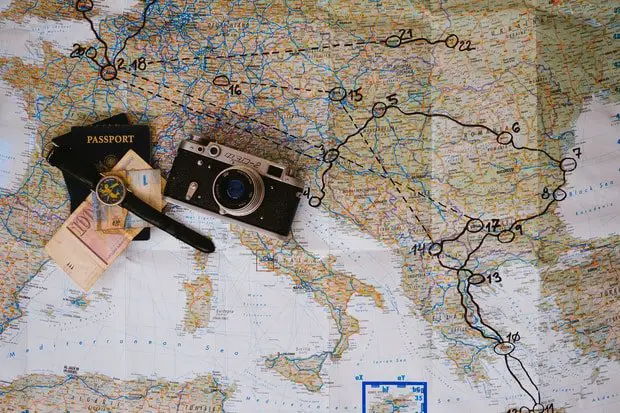
1. Small backpack

Don’t take a big bag for your trip to Paris! Remember that at the entry of every monument or tourist place, you will have to open it, and sometimes even empty it.
Instead of that, choose a small backpack that’s comfortable and easy to carry, and where you can put everything you need for your journey in Paris: a bottle of water, your documents, your camera and an umbrella.
By doing so you won’t have a bulky bag to worry about all the journey, and you will save some time during the security checks.
Advice : Be careful with your backpack, especially on public transport, and beware of pickpockets.
Remember : prevention is better than cure!
2. Power bank

Don’t board the plane without one of these!
With a power bank, you can charge your phone (or another device) without a plug.
There are different sizes, shapes and powers; choose one according to your needs, but pay attention to the size.
Make sure it’s not too big because then it won’t fit in your pocket. And don’t forget the USB cable that comes with the power bank!
With this device, you can use your cellphone without worry, because you know that if you are running out of battery, you can always count on this device to save the day!
3. Universal adaptor

If you don’t live in Europe, and even if you live there (it might be useful sometimes), think about buying a universal adaptor before leaving your country.
There are different models; some of them are simpler than others, so choose one according to your needs.
You can find some adaptors designed only for European plugs and some others that you can use almost everywhere.
The former is simpler and cheaper (about €3), while the latter performs better and is more expensive (about €10), so make your choice.
4. Umbrella
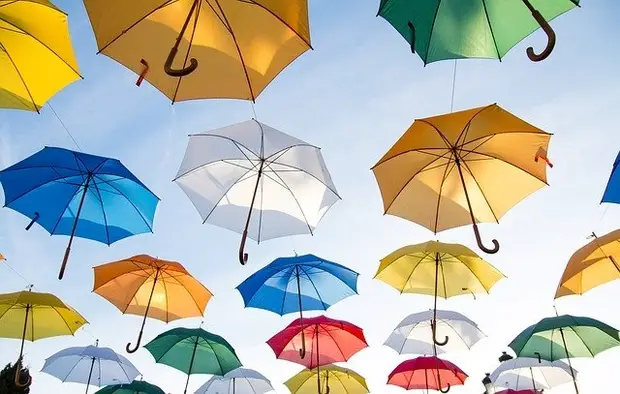
Paris is wonderful, but its weather… well, it’s another story!
So even if you visit the city in summer , there might be some rain.
That’s why if you want to look nice in your pictures, and if you definitely don’t want to drench your beautiful clothes and walk all day soaked to the skin, think about packing an umbrella.
Please don’t bring a big one, but a small one that you can easily pack in your backpack.
If you don’t have an umbrella at home, you can find one in Paris, but don’t forget that the city is not only one of the most beautiful in Europe but also one of the most expensive, so it is not a good idea to spend €10 on an umbrella – buy a good crepe or a nice souvenir instead!
And don’t worry, even if it rains there’s always something to do in Paris !
5. Raincoat
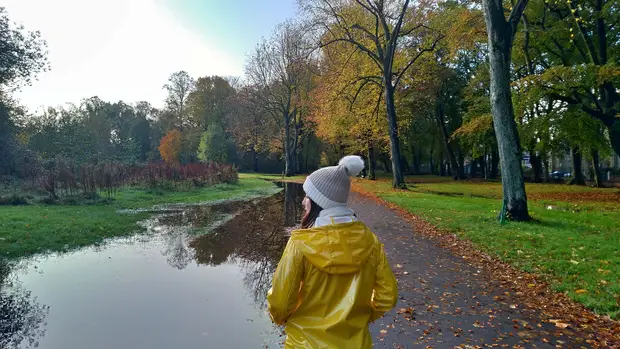
You don’t like umbrellas?
Don’t worry!
We have a solution for you: a raincoat.
Comfortable, practical and cheap, you will be even more covered than with an umbrella, and the best part of it is that it is easy to carry.
So don’t worry and enjoy your journey, even in the rain!
And in the evening when it is cold, you can wear your raincoat to protect you from the chill of a gust of wind.
6. Sweater or jacket

In Paris, you always need to pay attention to the weather!
So even if it is summer and the weather forecast says that it is going to be 35 degrees in the afternoon, don’t forget those evenings might be colder, so if you want to enjoy the evenings in the city, don’t forget your sweater or jacket.
Choose one according to the season, something light for summer, something thicker for fall and spring, and if you’re visiting the city in winter, then you don’t need a sweater, but a big coat and everything that comes with it: scarf, gloves, hat, etc.
In Paris, winter is cold… Really cold!
7. Debit/Credit card
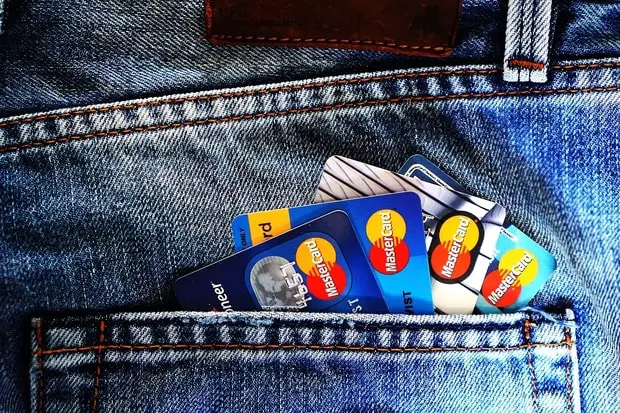
It is always a good idea to have some cash with you, but not too much!
That’s why it is useful to take your credit card with you.
In France, like in most European countries, you can pay by card almost everywhere.
A credit card can be very useful to pay for your accommodation or rent a car, but especially to book tickets online.
It doesn’t matter if it is a flight, a museum ticket or something else, you can always count on your credit card.
With it, you don’t need too much cash, so it is less problematic if you lose your wallet (or if it is stolen).
On the same topic : [Guide] Money in France (ATM, cards, cash…)
8. Student card
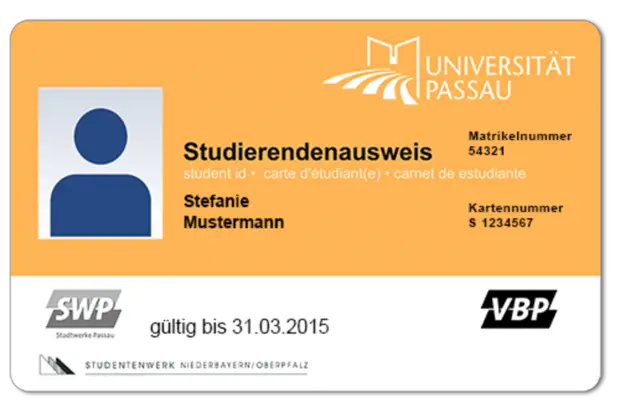
If you are a foreign student and you have a student card that certifies it, don’t leave it at home.
You can get some discounts on your entry tickets with your student card.
However, there are some conditions that may change according to the place, such as:
- Be a student under 25 years old
- Have a document that proves that you are a resident of the European Union
In some cases, you just need to show your student card in order to get a discount, without any age or nationality restriction.
So even if you aren’t completely sure that you can get a discount, just try. You never know!
9. Sport shoes or comfortable shoes

There are so many things to see in Paris, parks to visit, museums to walk through, etc., that it would be a pity to ruin your journey using those beautiful high heels that are absolutely unsuitable for a walk in Paris.
Leave them at home and bring your sneakers to discover the city of love.
The paths around the Eiffel Tower are not in excellent condition, especially when it rains, so please pay attention to where you step; you can find small stones that can hinder your way.
Visiting Montmartre can be exhausting, particularly because of the number of stairs that separate the bottom from the top, so in order to avoid unnecessary tiredness, just choose your shoes according to your plans for the day.
10. First-aid kit
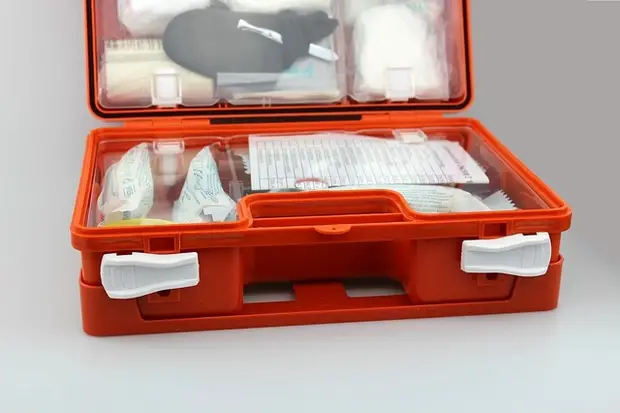
No, we are not saying that you’re going to be sick during your trip, but if it happens, you will certainly need a first-aid kit. But, what to put inside?
Just the essentials:
- Pain and fever medication
- Antidiarrheal medication
- Antiemetics
- Antispasmodics
- Antiallergic pillows
- Softening and soothing lozenges
- Free alcohol antiseptic
- Anti-mosquito cream
- Anti-scald cream
- Painkilling medication
It might seem like a lot, but if you take all of that in small quantities, you won’t have any problem carrying it.
Of course, you can find all of these things in a Parisian pharmacy; but if you don’t speak French, it will be quite difficult to communicate.
And secondly, medicines could be more expensive in Paris than in your own city, and you may need a prescription for some of them.
So save money and buy everything you might need at home.
11. Sleep mask and earplugs

Even if you have chosen a 5-star hotel for your stay, you never know who will be next door.
So if you don’t want somebody to ruin your sleep, pack a sleep mask and a pair of earplugs.
That can make the difference between a pleasant night and a nightmare.
And if you are staying in a hostel , then the mask and the earplugs are a must!
These two things can be also really useful when you have to travel long distances by bus or train because while others are playing or talking, you can rest without any problem.
12. Reusable water bottle

In France, like in many other countries in Europe, drinks might be a little bit expensive, so if you want to save money, always take a reusable water bottle with you.
In the city, you will certainly find some places to fill it, especially in the public gardens and tourist places.
Don’t worry, you can find drinkable water almost everywhere in Paris, so be eco-friendly and reuse your bottle.
13. Important documents
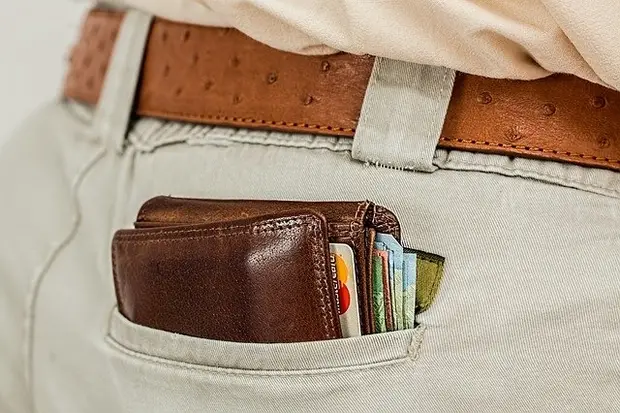
Visiting Paris without identity documents is not a good idea.
In fact, at the entry of almost every monument, you will be asked to present a valid identity card, especially if you want to get a discount.
In addition, because of recent events, there are many security controls in the city, so in some cases, the police may ask you to show your documents.
However, leave your passport at the hotel as you wouldn’t like to lose it.
And last but not least, always take with you a copy of your insurance policy or write down all the necessary information to contact the providers, just in case of sickness or accident.
Remember : prevention is better than cure.
14. Fanny pack
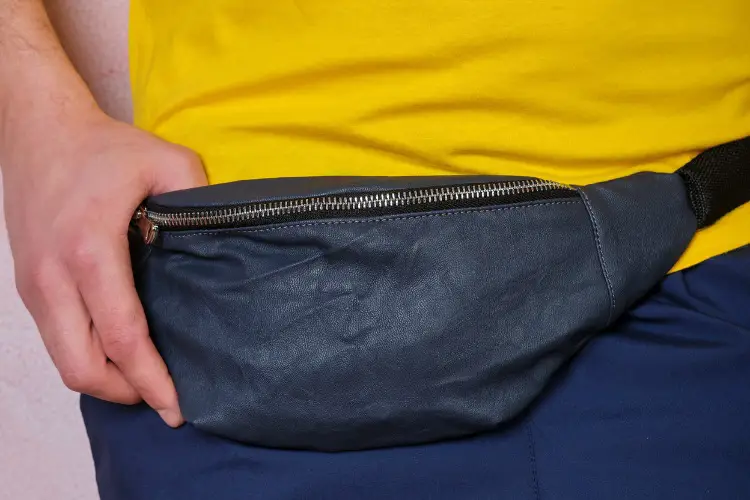
A waist bag or fanny pack can be very useful when visiting the city.
It is the ideal place to put your documents, credit card and money.
It is small and comfortable, and it’s one of the best places to keep your valuables away from prying eyes.
There are different models, but we suggest you choose a small one that you can hide between your pants and your T-shirt so that nobody knows that you actually have one.
15. Copy of your passport or identity document
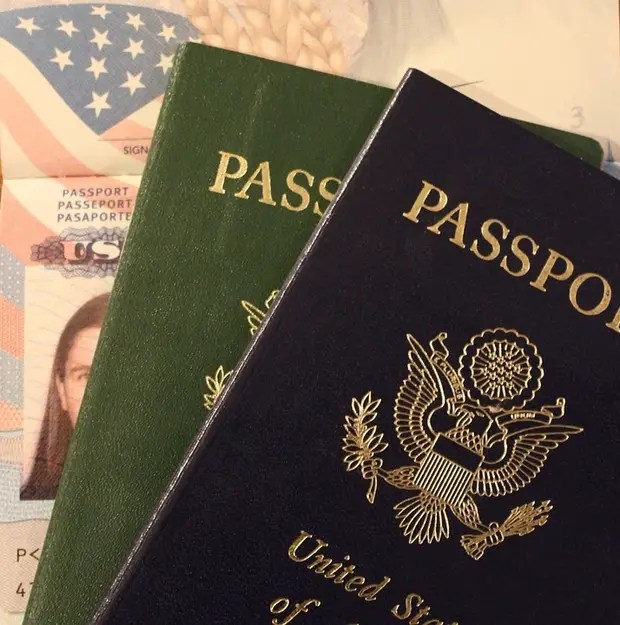
A copy of my passport?
For doing what exactly?
These are the two questions that tourists usually ask, and the answer is quite simple.
You may lose your bag or it can be stolen with all your valuables inside, so if that happens a copy of your passport may save your holiday.
So when visiting Paris , just take a copy of your passport with you and leave the original one at the hotel.
It is also a good idea to carry another identity document such as a student card, just in case.
If you do so, and unfortunately you lose your bag or you get it stolen, at least you have your passport, and you can ask for an official loss or theft statement, and continue your trip without any problem.
16. Headphones
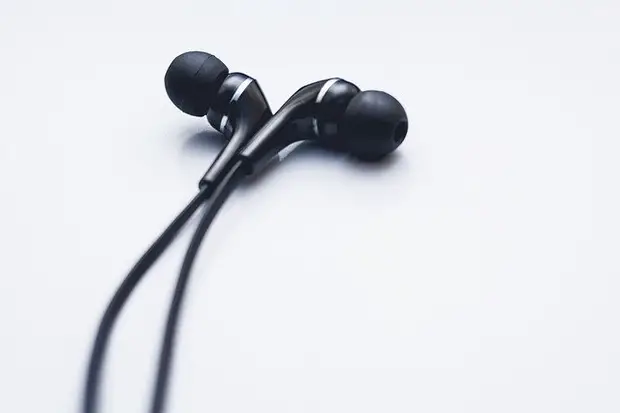
Even if the Parisian transport system works quite well, journeys on a train can be long sometimes.
So in order to make your journey more comfortable and pleasant, pack your headphones.
That will help you to relax during your trip and could be very useful if you’re thinking about taking a bus or a train to your next destination.
Attention : headphones don’t mean an audio headset, only choose a pair of headphones that are functional and practical!

Somebody has just given you the name of a super place to visit, but you don’t have enough battery on your phone to note it down?
Don’t worry, if you always have a pen with you, there’s no problem!
We never know when we will need to sign or write something down, a telephone number for example or something else; so, just in case, always carry a pen in your backpack.
18. Paperback book

For those who love reading, a paperback book is a must.
If you are not a fan of music and you prefer to spend your time reading, we suggest you pack a paperback book.
Not a big one, just something easy to carry, and nice to read.
You can leave your copy of Don Quixote at home – you won’t need it, for sure!
Choose, for example, a crime novel or something else that you like.
There is just one condition: bulky books are forbidden!
And if you finish it before the end of your trip, don’t worry! In most hotels and hostels you can find a place to exchange books: you leave yours and you take another one. In that way, you only need to carry one book during the whole of your holiday.

For photography enthusiasts: professional or semi-professional camera, tripod, lenses, etc.
However, if you’re not a photography enthusiast and you’re just taking pictures with your smartphone.
That’s the end of our list of important things that you need absolutely to pack.
We didn’t talk about useful applications for your trip to Paris, but if you want more information about them, we invite you to read our article: 16 Free Apps to Download to Make Your Trip in Paris Easier .
⚠️ Now, the last part of our article is dedicated to those things that you must definitely leave at home – those bulky objects that you won’t use and that will take up too much space in your bag.
5 Things That Are Not Needed And to Leave at Home

France, the cradle of culinary traditions and renowned international gastronomy, has everything to satisfy even the pickiest of visitors.
So leave your candy and snacks at home and taste the specialties of the country.
We are totally sure that you can find something according to your preferences and budget.
From the Parisian sandwiches to the boeuf bourguignon, not to mention the Breton buckwheat pancakes, Paris offers you a great variety of products and dishes that won’t disappoint you.
For further information about the dishes that you need to try at least once, we suggest you read our article about Typical French Food .
2. Bulky books

Even if you love reading, please leave your copy of Romeo and Juliet at home!
In fact, cross out from your list of things to pack all the big bulky books that will take up too much space in your suitcase for your trip to Paris .
As we said before, take just one paperback book or try some e-books, so that you can enjoy reading without a problem.
3. Too many clothes
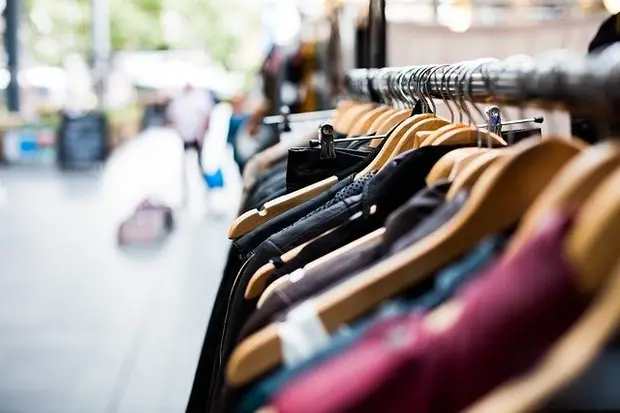
Even if Paris is the fashion capital, you don’t need to look like a top model during your holidays.
It’s nice to be chic, but please don’t go over the top.
No, you don’t need your four coats and your three pairs of high heel sandals.
Just be practical: choose clothes that are easy to match, comfortable, and not bulky – and leave all the rest at home.
If you think you don’t have enough clothes for your stay in the capital, don’t worry, most of the hotels can offer you a laundry service for a minimal extra cost, or you can find a laundromat almost everywhere in the city.
Don’t forget that there are many fashion boutiques in Paris, and you may succumb to a beautiful summer skirt or a wonderful winter coat, so you will need some space in your luggage to put your shopping in…
4. Useless valuables

Your wonderful gold earrings and your emerald ring can stay at home.
Your foreign ID, and your work card too.
It would be a pity to lose them during your holidays, so choose simple and cheap costume jewelry and only bring the documents that you need for your trip.
That’s an excellent way to avoid future headaches.
5. Hairdryer and hair straightener

Seriously, you don’t need them – your hair is wonderful the way it is!
But if you feel that they are completely necessary for your survival, we’re glad to inform you that you can find a hairdryer in almost every hotel that you visit, so there’s no point in carrying one with you.
The hair straightener is a little bit more complicated, but we are totally sure that you can survive without it for a couple of weeks.
Besides, Parisian weather is unpredictable, and your beautiful straightened hair may finish completely soaked.
Just be practical and pack only what you need.
I aim to share my tips and recommendations for the beautiful country of France. My goal is to help you plan your next adventure, whether it’s a weekend getaway or a once-in-a-lifetime trip. From finding the best hotels and restaurants, to discovering unique activities and sights, I’ve got you covered!
Related posts
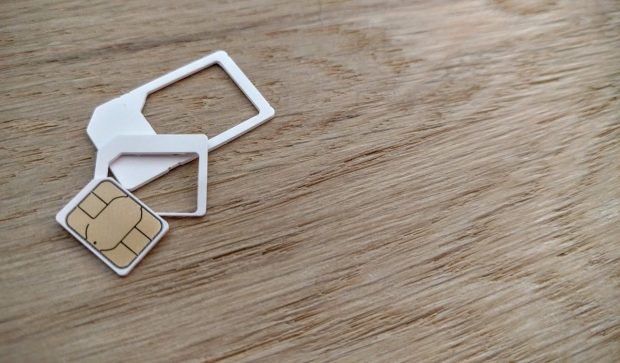

Home > Paris Travel Tips > Americans in Paris: Things to Know Before Going to Paris for the First Time
Americans in Paris: Things to Know Before Going to Paris for the First Time
Paris for americans.
If you’re one of the 12 million Americans visiting Europe this year, chances are Paris is part of your travel itinerary . And with good reason! Each year, there are more Americans in Paris than any other nation. If you are an American traveling to Paris for the first time , these tips will help you enjoy your experience to the fullest.
A Guest Post by Sage from Everyday Wanderer
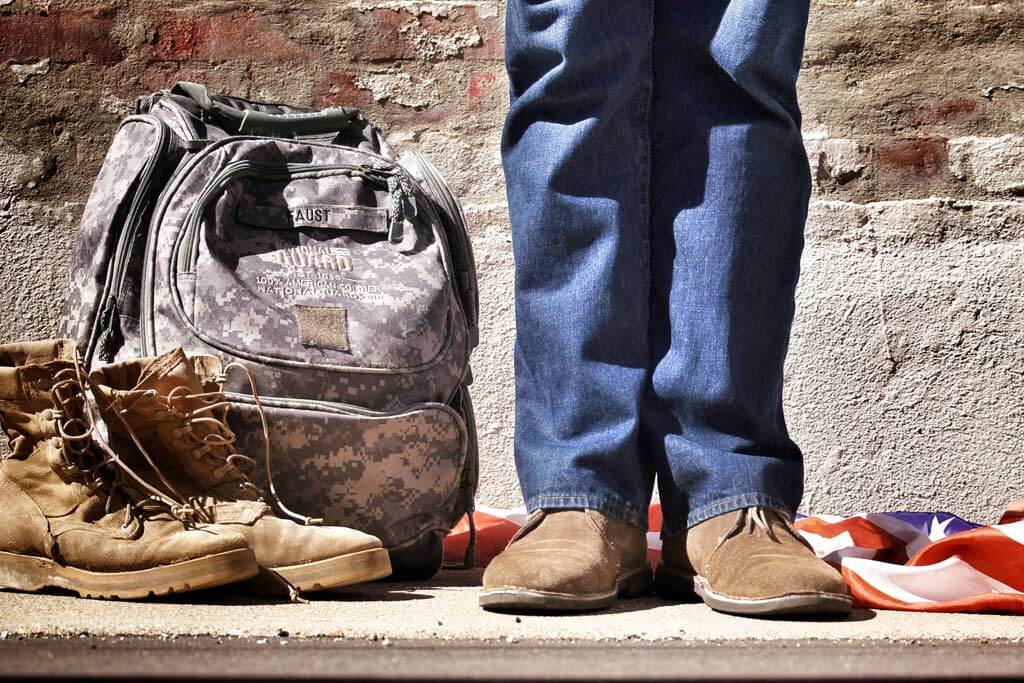
Things to Know Before Traveling to Paris from US
1- do your homework.
Americans are notoriously ignorant about the world outside of our borders. Rise above the reputation by knowing a few basics like the language spoken (French), the currency (Euro), and that Paris is France’s capital city.
Before traveling to Paris from US, try to learn about French culture. Also, there are a lot of sites related to American history, such as the former Hotel d’York or the Picpus cemetery you may want to visit during your trip to Paris.

2- Research Local Holidays in Paris
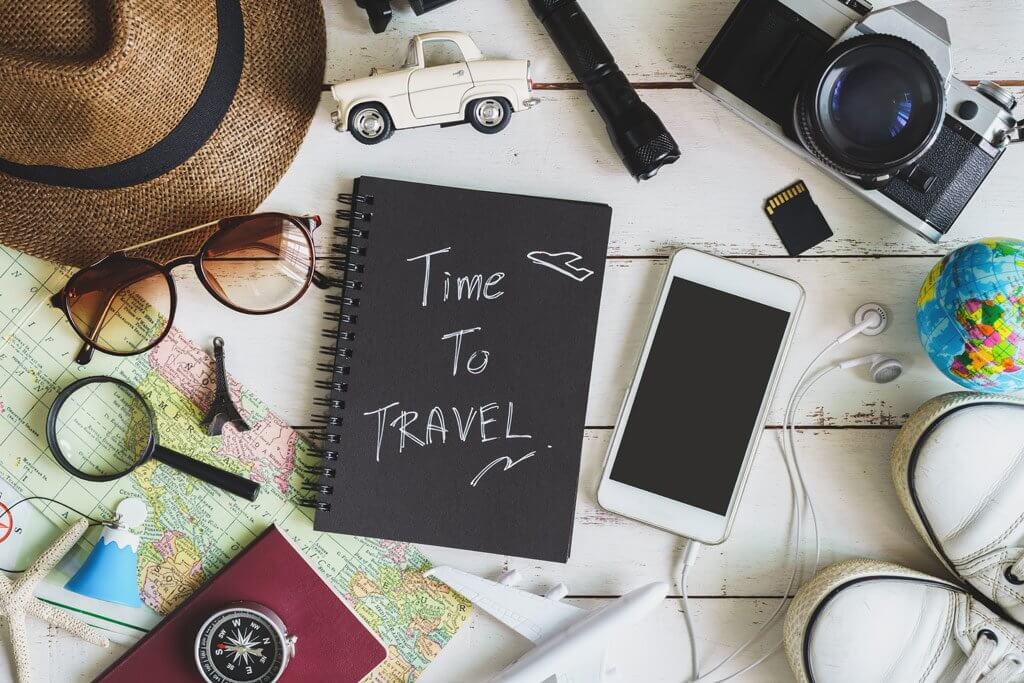
While the French and Americans share holidays like Christmas and New Year’s Day, other holidays are unique to each country.
While Americans celebrate Independence Day on July 4th, that’s just another lovely summer day in Paris. But on July 14th, France’s National Day is an important holiday in France. Expect many businesses and venues to be closed on holidays in Paris so that the nation can celebrate with family and friends.
FUN FACT: Did you know that the key to the Bastille is on display here ? Spoiler alert: it’s not in France.
3- Learn a Few Words en Français Before Visiting Paris for the First Time
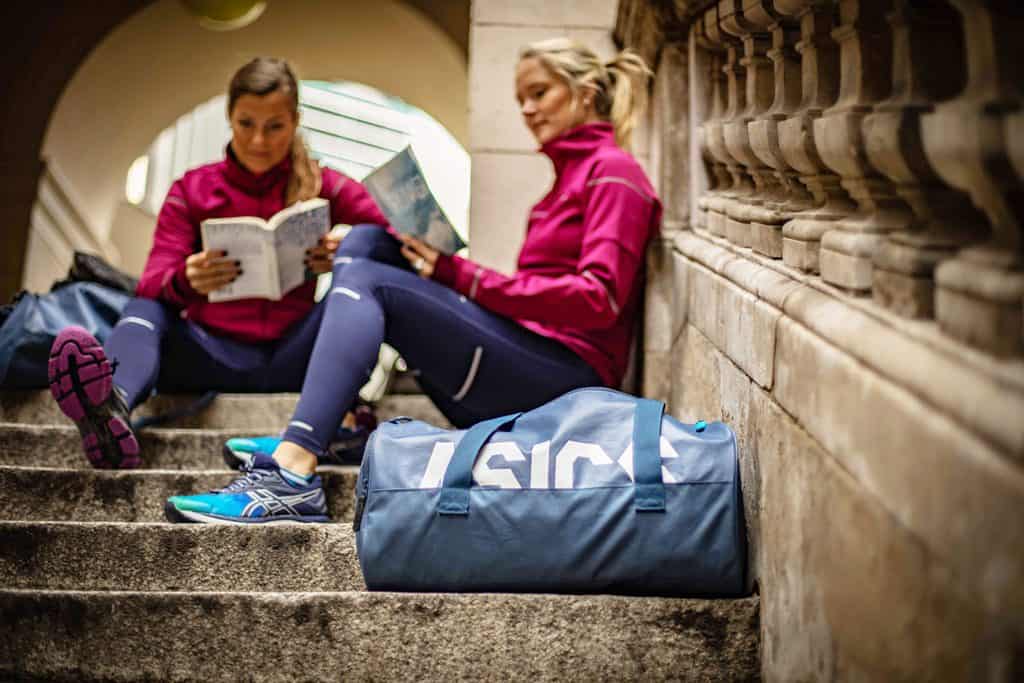
Although English is widely spoken in Paris, knowing a few phrases in the local language will enhance your experience. From basic greetings to “Do you speak English?” here are nine phrases to know in French that Americans in Paris should learn when visiting Paris for the first time.
4- Take US Embassy Information with You
I believe that when you plan for the worst, it never happens. So take out a free insurance policy by carrying the address and phone number of the US Embassy in Paris with you at all times. In case of emergency, from a lost passport to a medical situation, they are ready and able to assist.
TIP: Here’s the best Insurance for Paris (and France!)

5- Book Some Sightseeing Tickets in Advance
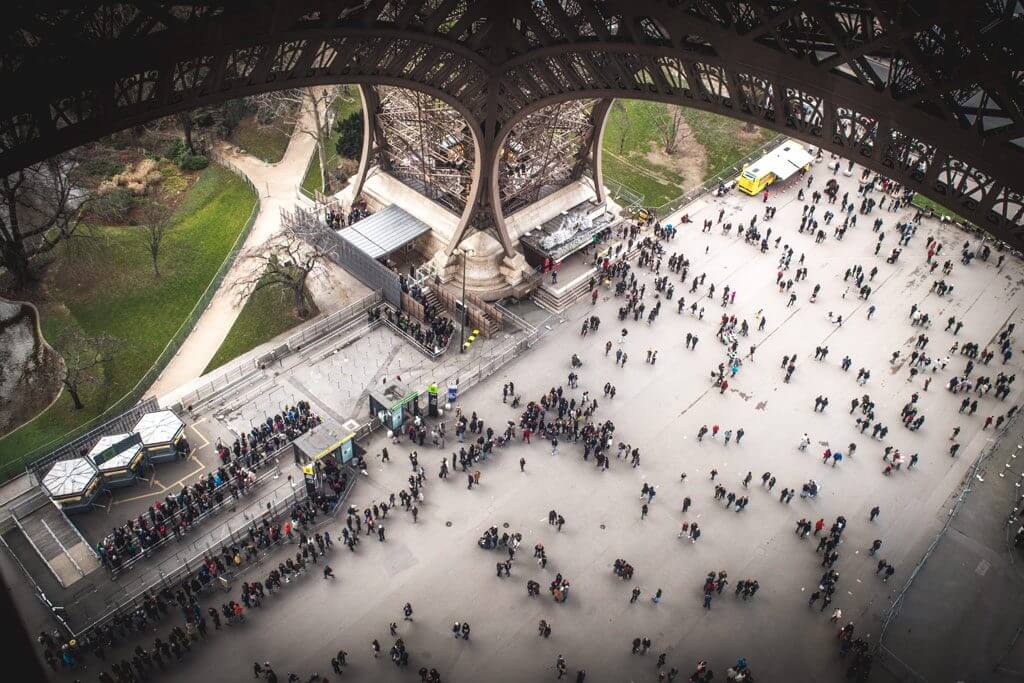
The last thing you want to do in Paris is spend your time waiting in line.
There are some ways to avoid the longest lines in Paris , but buying skip-the-line tickets for the main tourist attractions is key. So once you have finalized your travel dates, start purchasing tickets to some of the top tourist sights in Paris in advance.
Great tickets to purchase in advance when traveling to Paris for the first time include the Eiffel Tower , tickets to the Louvre Museum , and tickets to Versailles Palace . If you are going to visit many museums and tourist sights, decide if the Paris Museum Pass is interesting for you.
Americans Traveling to Paris from US: Hotel Check in
6- a room for one.
While Americans are used to hotel rooms that nearly always contain either a king or two queen-sized beds and enough bath towels for four people, accommodations in Paris are usually quite different. There is such a thing as a single room, and it’s what it sounds like: a room with a single bed and one bath towel. A room with a larger bed is typically two single beds pushed together.
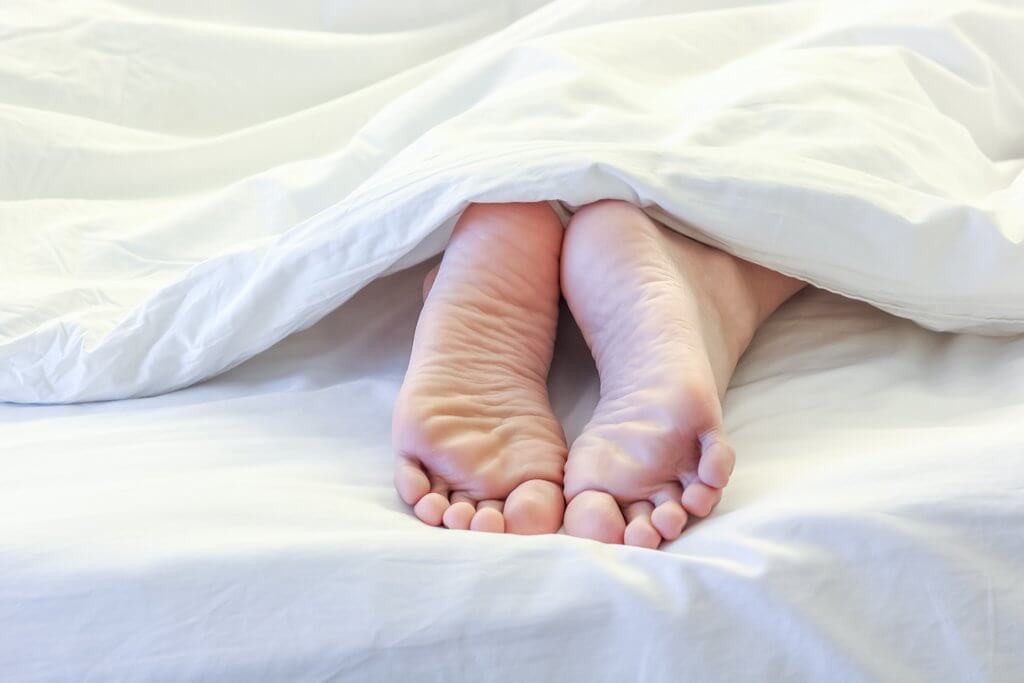
7- The Key to Managing Electricity Costs
Many hotels in Paris require that you insert your plastic room key in a special slot near the door before any of the lights or electrical outlets will power on. When you leave the room and grab your key, the power outlets will often stop working. I learned this the hard way when I left my laptop charging while I went to grab breakfast, only to come back to a dead computer.
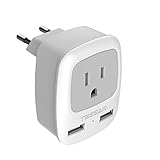
PRO TIP: Most hotels will give you a second room key upon request. So consider this option if you need to charge an item or two while you’re away from your room.
Travel smart, don’t let your hairdryer explode in Paris…

8- Stairway to Heaven
Like most large cities, Americans in Paris need to expect everything to be more compact in Paris. From the cars you see on the road to the space in your hotel room.
Expect the elevators to be equally small. And by small, I mean that you and your bag may be all that fits in some elevators. Unless you are on a high floor, are lugging heavy suitcases, or have a physical condition that makes it difficult, use the stairs and leave the elevator open for other guests.
9- Ground Zero
While Americans consider the ground floor to be the first floor, Europeans consider the first floor above the ground floor to be the first floor. This helpful tidbit will help you find your hotel room or your Paris furnished apartment . And it will help you count how many more flights of stairs are ahead of you as you lug your suitcase upstairs in a building without an elevator.
American Tourists in Paris: What to Wear
10- bring good walking shoes for paris.
One of the best ways to explore the cobblestone streets of St. Germain-des-Prés , the tree-lined Champs-Élysées, or the beautiful Jardin du Luxembourg , is on foot. Americans traveling to Paris should be sure to bring a comfortable pair of shoes before walking a daily marathon while visiting Paris for the first time.
Best Shoes for Paris in Spring – Summer

11- Snazz Up Your Suitcase
The French aren’t just known for their flaky croissants, colorful macarons, and exceptional wine . They’re also known for their fashion sense.
What to wear when traveling to Paris? Replace your comfy yoga pants with loose-fitting slacks and your sloppy sweats with a sundress so that you don’t stand out like a gauche tourist when traveling to Paris for the first time. In terms of comfy footwear, opt for stylish flats, boots, or sandals instead of your broken-in and battered-up sneakers.
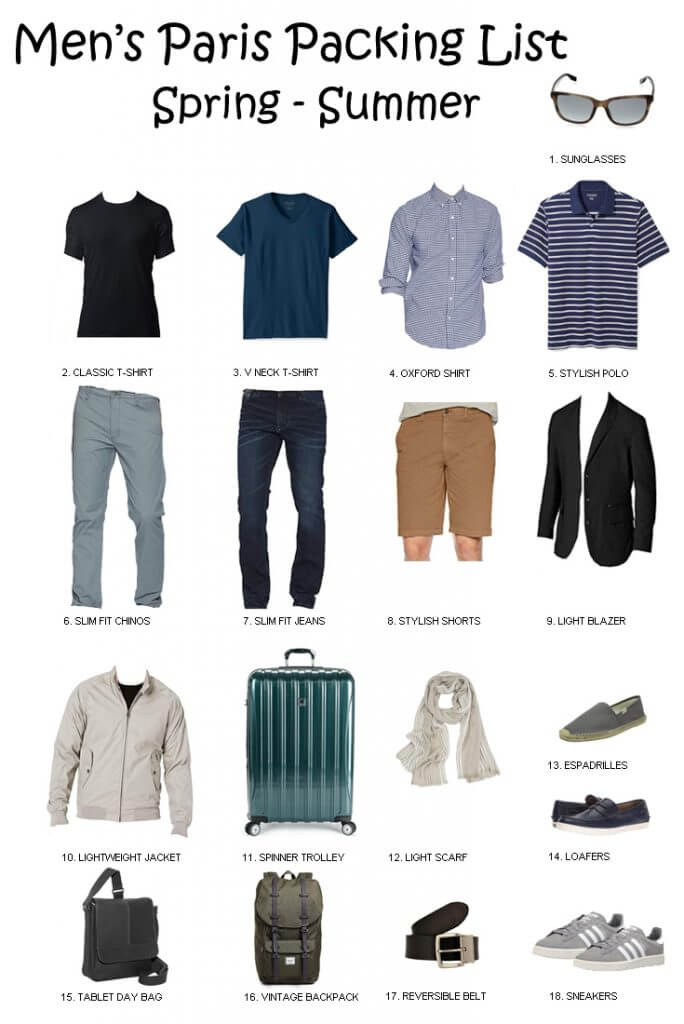
Check out these Paris Style Guides for Men and Women
- Paris Style Guide for Women: Spring & Summer
- Paris Style Guide for Women: Fall & Winter
- Paris Style Guide for Men: Spring & Summer
- Paris Style Guide for Men: Fall & Winter
12- Leave Your Stars & Stripes Speedo at Home
If you are an American tourist in Paris, do your best to blend in rather than shine a bright spotlight on your nationality. Leave any clothing, suitcases, backpacks, or purses with the American flag on them at home. The same goes for anything sporting your favorite American sports team or college alma mater.
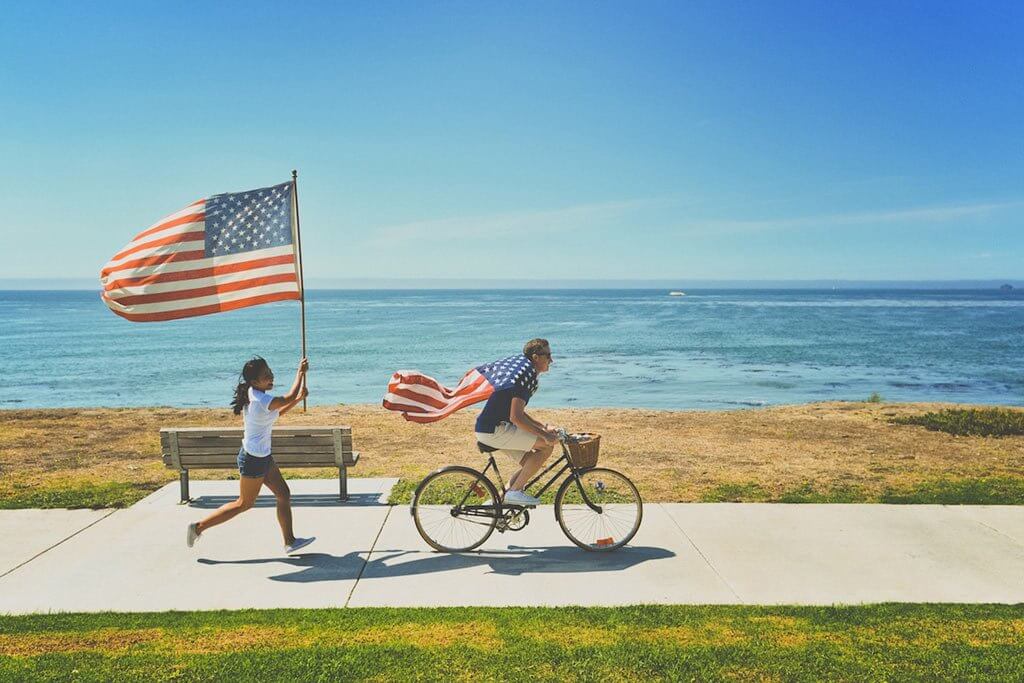
13- Sunday Best
Before you can gaze up at the colorful stained glass windows in Sainte-Chapelle or down at the brass gnomon embedded in the floor at Saint-Sulpice , you should be dressed appropriately.
Most cathedrals, churches, synagogues, and mosques expect visitors to have their shoulders and knees covered. If you are visiting Paris for the first time in the warmer summer months, wear a long, flowy skirt to cover your knees and carry a lightweight sweater with you to cover up any bare shoulders.
Visiting Paris as an American Tourist: Getting Around & Experiencing Paris
14- take advantage of public transportation in paris.
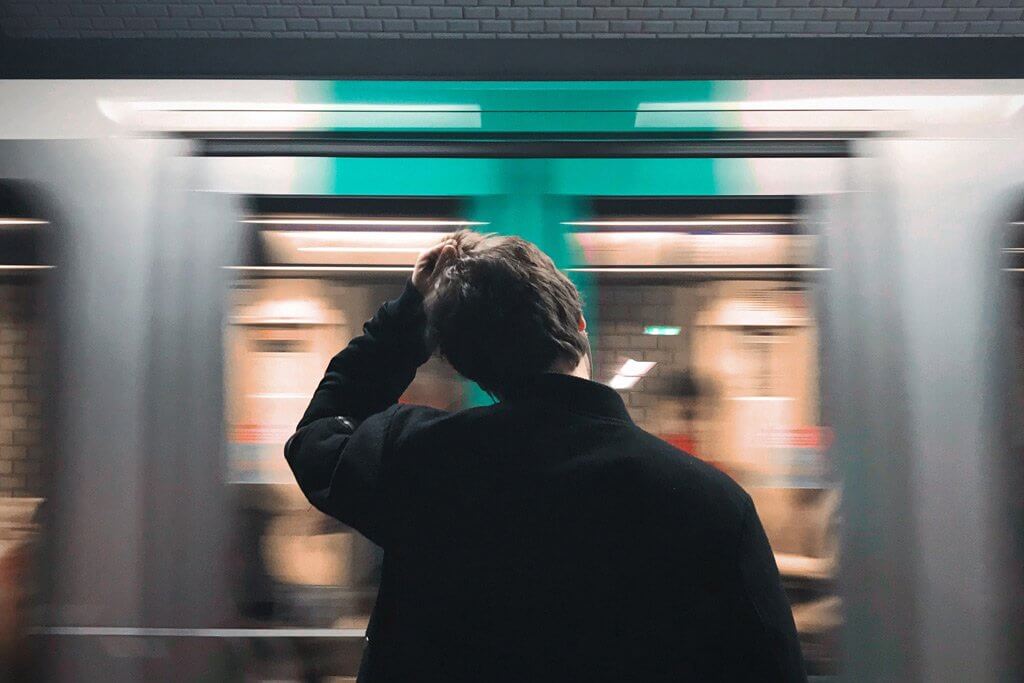
If at all possible, avoid driving when visiting Paris. The cars, roads, and parking posts are much smaller than in the US. The signs will be different than in the US and often in French. From taxis to the Parisian Metro or the (oh so) trendy bikes in Paris , there are many more convenient (and less stressful) ways to get around Paris than driving. Well, as long as you don’t experience…
15- Transportation Strikes
Transportation strikes are not uncommon in Paris. While they are an absolute nuisance, the strikes are usually announced in advance and last a clearly defined period of time. Watch for signs announcing an upcoming strike, and ask your hotel front desk for additional information and guidance.
During one of my visits to Paris, a transportation strike hit the day I was scheduled to fly home. The hotel staff knew how to contact an independent Vietnamese cab driver who wasn’t striking, and I was able to get to the airport without any trouble!
READ MORE – Transportation Strikes In France: Info, Dates, and Best Tips For Traveling To Paris
16- Be Mindful of Pickpockets in Paris
Just like you would in New York, Los Angeles, or any other major city around the world, be mindful of pickpockets when traveling to Paris for the first time.
You should be especially vigilant when exploring touristy areas, stopping to observe a street performer, and using mass transit. I recommend a small, cross-body bag for women or an anti-theft backpack in general.

Men, put your wallet in your front pocket. Split your cash and bank cards up, storing them in different pockets or bags. Do not walk around with your phone in your hand unless you’re using it at that moment to snap a photo or look something up.
I wish I didn’t know as many American friends and colleagues as I do who have had their cell phones, passports, or purses stolen by pickpockets in Paris. One seasoned American traveler friend’s instincts told her to wrap her arms around her cross-body purse when a small group of gypsies approached her by Notre Dame, tossing pieces of shredded paper in the air. It was only after another colleague shooed them away that she realized they had slipped her cell phone from her hand.
One of my Dutch colleagues had her phone lifted from a table at a sidewalk café while she was telling the others in her travel group about the importance of not leaving your phone on the table.
17- Typically Not a 24/7 World
While Americans from cities and towns of all sizes are fairly accustomed to extended hours at grocery stores, transportation counters, and pharmacies, this isn’t as common in Paris.
Many businesses may be closed on Sundays and for local holidays. During the week, many stores will close by 6 pm. Do your best to plan ahead, and always double-check the posted hours when visiting Paris.
18- It’s Okay to Skip the Sights That Don’t Interest You

Growing up, my artist mother dragged me to every art museum in Europe. While I absolutely loved taking a day trip from Paris to Claude Monet’s home in Giverny and taking another day trip to explore Auvers-Sur-Oise, where Vincent Van Gogh lived , I don’t think twice about skipping the sections of the Louvre that don’t appeal to me. Nor do I think twice about skipping the Louvre completely in lieu of the Musée d’Orsay.
When it comes to your Paris itinerary, “you do you” when visiting the city.
Visiting Paris as an American Tourist : What to Eat and Drink
19- expect mind-blowingly amazing food.

While it is possible to find a bad meal in Paris, it’s pretty hard. From a traditional French breakfast with a buttery croissant to a jambon-beurre sandwich at lunch, from a terrine of cassoulet to a burnt sugar-topped crème brûlée , there are so many amazing foods to try when visiting Paris .
To increase your chances of an amazing meal, eat at Parisian bistros , little crêperies , or other local places away from the main attractions. Research your options online , read reviews, or ask a local contact for recommendations.
FUN FACT: There are more types of French cheese than there are days in the year. Yum!
20- Request an English Menu
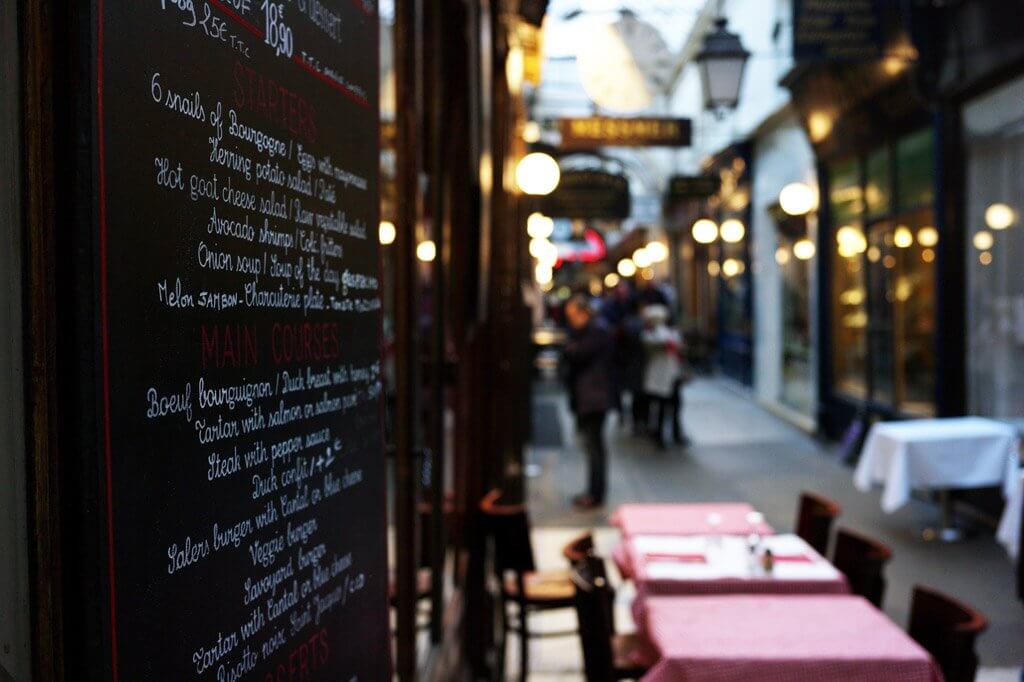
If one is not automatically offered to you, ask your server if they have an English menu. Most restaurants have a few available, and they are a helpful way to help you select your meal.
21- Washing It All Down
From water to beer, drinks in Paris are typically served without ice and at warmer temperatures than Americans expect at home.
Another drinkable difference is the concept of unlimited refills. This is very much an American phenomenon and not something you should expect if you are traveling to Paris from US.
I’ve read several theories about why there aren’t unlimited refills. One potential reason is that drinks in Paris are served from glass bottles rather than the huge fountain dispensers common in the US. Another potential reason is that the cost of using real sugar in soft drinks is more expensive than the high-fructose corn syrup consumed by the gallons in America. Either way, expect to be charged several Euros for a small bottle of soda in Paris (but water in Paris is safe to drink , and it’s totally free) and enjoy the quality of real sugar over the quantity of a Big Gulp.
22- Dinner is an Experience

Set aside plenty of time for dinner in Paris. It is a delicious experience that should be savored and not rushed. Additionally, expect dinner to be much later than the typical American 6 pm or 7 pm dinner time.
In Paris, most people eat dinner closer to 8 pm. And it can be even later in the summer months when the sun doesn’t set until well after 10 pm.
23- Seat Yourself
With the exception of bars, Americans are trained to wait and be seated by a hostess. But in Paris, you can generally seat yourself for drinks, refreshments, or meals at cafes and bistros.
Avoid any table with a reserved sign, and only sit at an open table set with silverware if you plan on eating. If you’re just grabbing a drink, opt for a table without silverware instead.
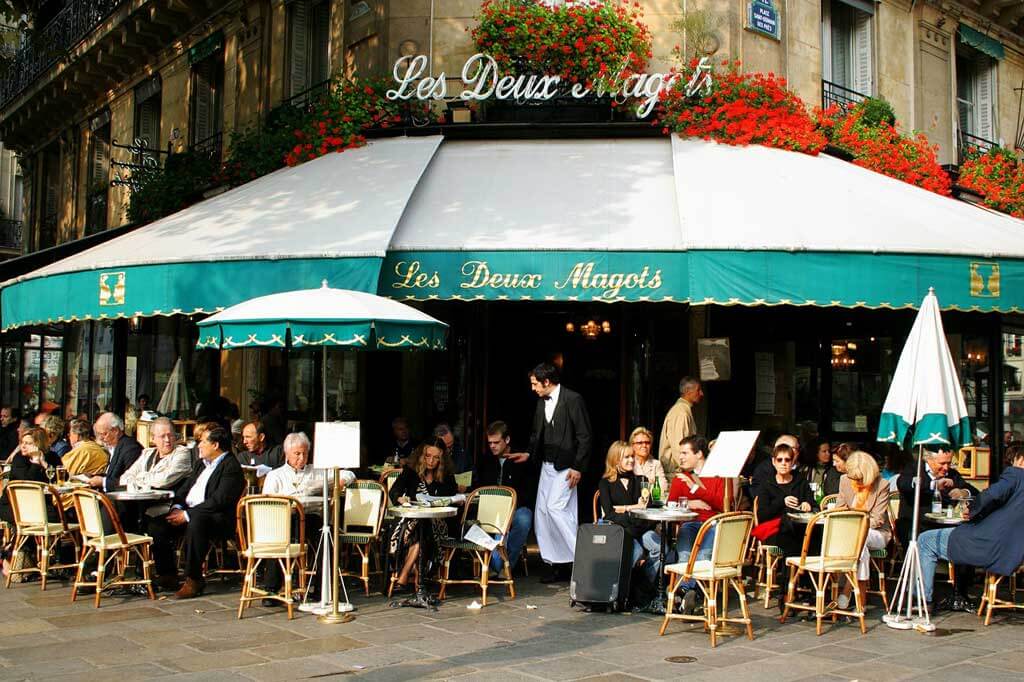
24- Holler If You Need Anything
Because meals in Paris are social occasions, servers will not interrupt you every five minutes to ask if everything is okay. If you need something, simply make eye contact with your server or raise your hand to signal that you need something. It is rude to raise your voice or snap your fingers.
Most servers will also wait for your signal to bring the check. Earn bonus points by learning how to properly request the tab in French (l’addition, s’il-vous-plaît)!
25- A Tip About Tipping in Paris
While we tip a minimum of 15% at full-service restaurants in the US — in part to fully compensate wait staff who receive lower hourly wages — tipping is much less expected in Paris.
The wait staff at restaurants in Paris are fully compensated for their work, and the service is included in the prices listed on the bill. However, if you want to add a small tip for excellent service, it is appreciated by your server. Here are some tips for tipping in Paris .
Whether paying in cash or by card, your server will typically want to know what you’d like the total charge to be at the time of payment. If your bill is €22 and you want to add a €3 tip, simply tell the waiter €25 when you hand him your card or cash.
Because Parisian waiters and waitresses know that American tourists in Paris tend to be generous tippers, it’s not uncommon for them to stamp “Service Not Included” on the receipt in English to try to increase the amount you’ll tip them. When in doubt, research the tipping customs for each country you plan to visit in advance.
Visiting Paris as an American Tourist: Paying for Things
26- always pay in euros when visiting paris .

When swiping your debit or credit card to make a purchase, you may be asked if you’d like to pay in US dollars or in Euros. Always pick Euros, or you may unknowingly be charged an additional 3-5% for the “convenience” of having your purchase converted from euros to dollars.
27- Don’t Let Your Card Out of Your Sight
While Americans routinely slip their cards in bill portfolios that waiters whisk away to run at a register elsewhere in the restaurant, that doesn’t happen in Europe. The wait staff will always bring a portable reader to your table to settle up with you.
28- Carry Enough Cash
While just about every business in America, including some vending machines, accept debit and credit cards, some small businesses and eateries in Paris may have a €10-15 minimum.
To increase your motivation to carry at least a small amount of cash with you when visiting Paris, know that it’s usually not free to pee. That’s right. You may need to pay a small fee, either via a coin-operated entry door or to a restroom hostess, to use the restroom in Europe.
TIP: The first Euro bill is a €5. Everything else is in coin form, so you may want to take a small coin purse along, even the men.
Americans in Paris: Odds & Ends
29- 24 hours in a day.
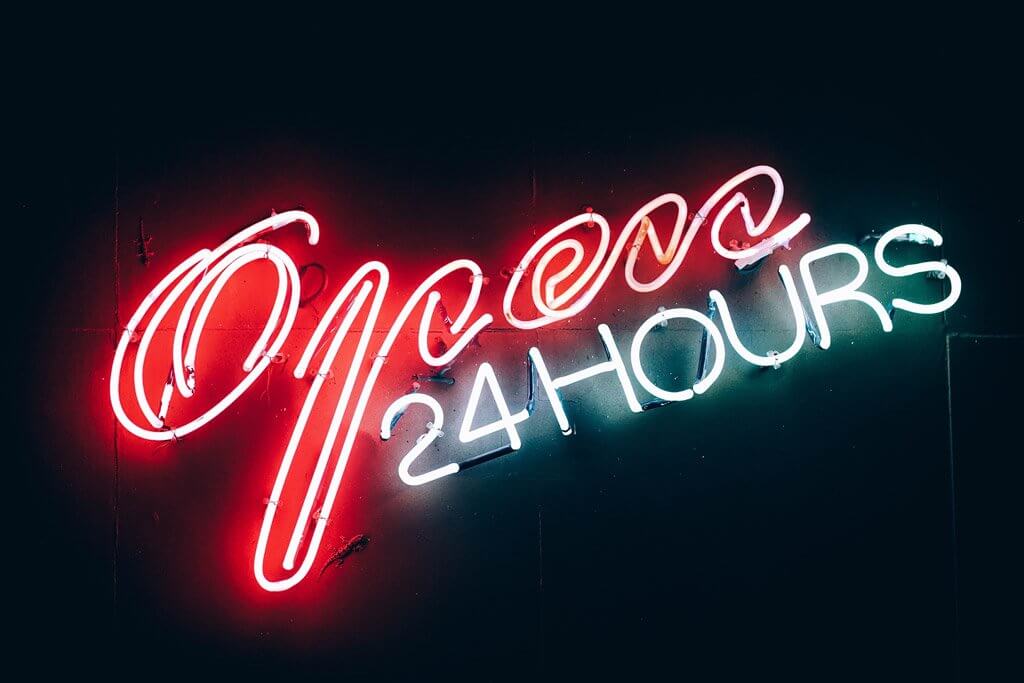
Europeans use 24-hour time rather than AM and PM. Additionally, it’s typically written with the hour, the local language abbreviation for an hour, and the minutes. So what would be 4:24 pm here in Kansas City would be written as 16h24 in Paris. While it does take some getting used to, it’s simple to convert any afternoon time to PM by simply subtracting 12.
30- It’s a Date
In addition to using 24-hour time, dates follow a Day/Month/Year format in France rather than the Month/Day/Year format used most commonly in America.
31- Eight Days a Week
Unlike American calendars that start on Sunday and end on Saturday, French calendars typically start on Monday ( Lundi ) and end on Sunday ( Dimanche ).
32- A Logical Measurement System
Farewell confusing, archaic imperial measurement system based upon a dead king’s appendages. And hello, brilliantly logical metric system ! Prepare for temperatures in Celsius (not Fahrenheit), distances in kilometers (not miles), and one of those 365+ kinds of fromage weighed in kilos (not pounds).
33- Breathe Easy
Not only do the French consume more cigarettes per person than in the US, but also they are allowed to smoke in places not commonly allowed in the US.
As is widely the case across America, it is forbidden to smoke inside public places. But you should anticipate that you will encounter more cigarette smoke on patios, terraces, and in other public places than in the US.
Febreeze does a good job of reducing the lingering, second-hand smoke smell from the items you plan on wearing more than once — like pants, sweaters, and jackets.

34- Making New Friends
Beyond France, most Europeans think Americans are super friendly. Maybe too friendly. If the situation feels right, don’t be shy about speaking to others.
I made a new friend on the train between Paris and Normandy by striking up a conversation with the woman sitting across from me when she asked about my Dentyne gum. Nearly five years later, we still exchange Christmas cards. (Yes, I always include a packet of Dentyne gum).
However, don’t be like my middle-aged, first-time abroad co-worker who aggressively approached everyone he could — cab drivers, restaurant hostesses, train ticket agents — with a recurring soliloquy about where he was from, how wonderful America was, and how his great, great grandparents immigrated to the US from Croatia.
American Tourist in Paris: Coming Home
35- perishable items.
At some point, your first trip to Paris will come to an end. When that time comes, you’ll have to be sure you’ve fully consumed any perishable items that you carried on or received during your flight. This includes everything from fresh fruit to that one last amazing croissant.
36- Liquid Refreshment
If your initial destination in the US is not your final destination, be wise about purchasing wine, beer, spirits, perfume, or other liquids in the duty-free shop at the airport or on the plane.
If you are transferring to another flight within the US, you’ll have to collect your luggage and will want to immediately place these items in your checked baggage before sending them to your final destination. Otherwise, when you go back through security (yes, even though you don’t really leave the secure area), they will be confiscated. And nobody wants to see a beloved Bordeaux handed over to an airport security officer…
TIP: Want to ensure your wine makes it home? Click here for our guide to the best wine tote bags and wine suitcases specially designed for travel.
37- Anything to Declare?
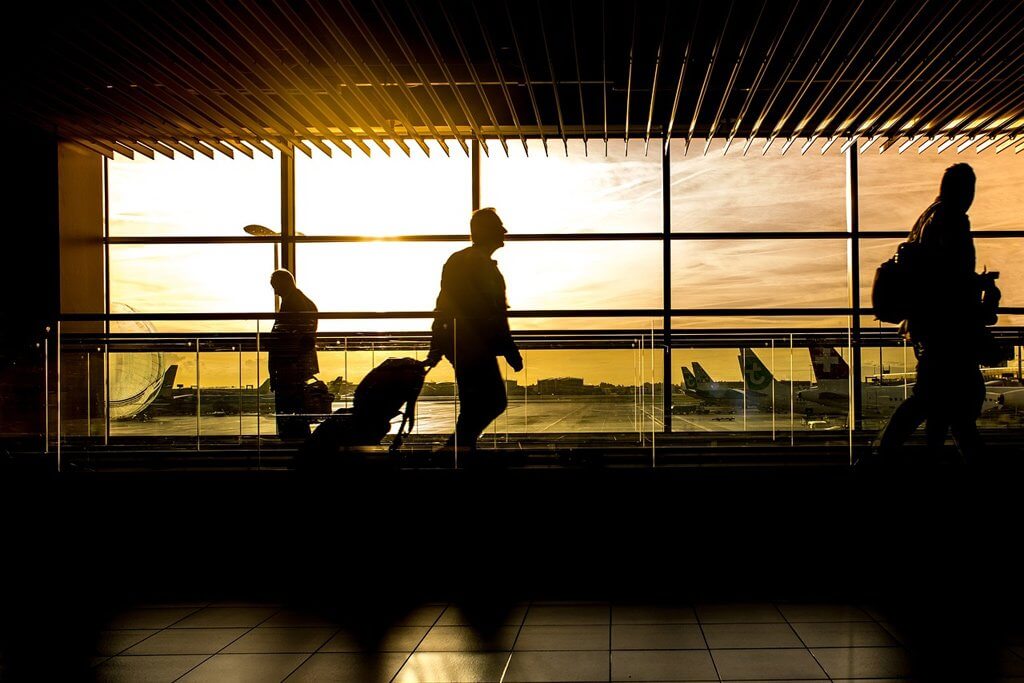
Shortly before your Transatlantic flight lands back in America, flight attendants will distribute declaration forms. Read the form carefully and thoroughly before you start to complete it. There’s a very good chance that you won’t have anything to declare if the items you purchased abroad are for your personal use or gifts.
38- You Smell Suspicious
As you wait in line to officially re-enter the US, don’t be surprised if officers with drug and bomb-sniffing dogs are hard at work. (Aren’t you glad you’re returning home from visiting Paris for the first time and not Amsterdam?).
39- No Photos, Please
You are prohibited to have a cell phone or recording device out while you wait in line for your turn with a Customs and Border Protection officer. Watch for signs telling you to put your phone away, and know that they are absolutely serious about enforcing the rule.
When it’s your turn to submit your papers and passport for inspection, answer any questions in a simple, straightforward manner. The officer does not want to hear long-winded stories about visiting Paris. These officers can search you or your belongings without a warrant. Don’t give them a reason to do so.
40- When Visiting Paris for the First Time, Savor Every Moment
Whether you have a day, a week, or a month to explore Paris, you will not win a gold medal for rushing through your experiences. So slow down and savor every moment. It’s exactly what the French would do!
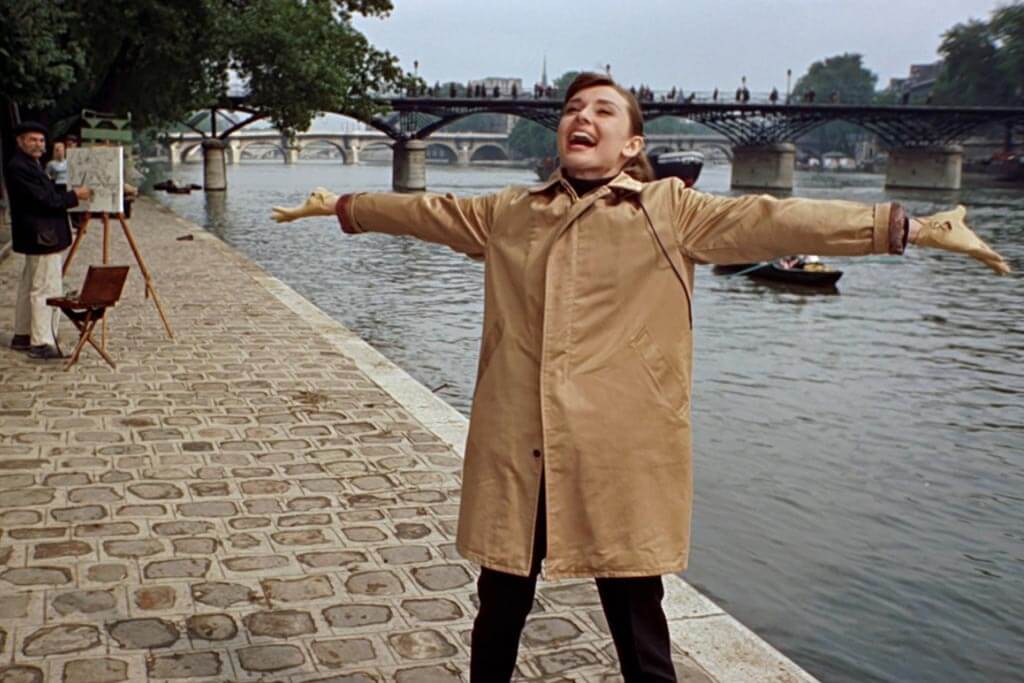
Click here to read more Paris Tips
Back to Homepage
- Click here to find the Best Day Trips from Paris
- Find out how to Skip the Line in the Louvre
- Learn about the Paris Districts
Pin it now & read it later
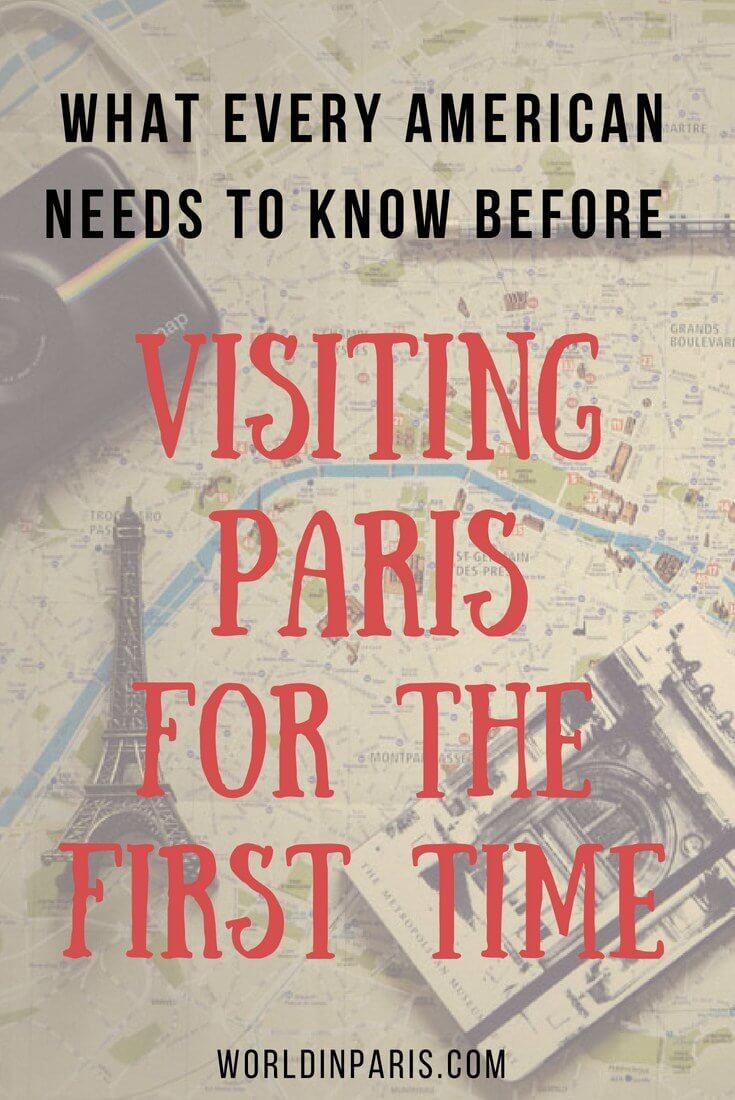
Disclaimer: This post includes affiliate links, meaning I get a small commission if you make a purchase through my links. It costs you nothing more (in fact, if anything, you’ll get a nice discount) but helps me to go on creating incredible Paris content for you. I trust all products promoted here and would never recommend a product that isn’t of value. World in Paris is a participant in the Amazon Services LLC Associates Program. As an Amazon Associate, I earn from qualifying purchases at no expense to you.

About WORLD IN PARIS
Quirky parisian explorer with a preference for lesser-known sights, i am continuously looking for new ideas and tips to bring you the best of the city of light read more about me ., i am elisa, the travel blogger behind world in paris. quirky explorer with a preference for the local side of my city and its lesser-known sights, i am continuously looking for new ideas to enjoy the best of paris & around . do you want to go beyond the louvre museum or the eiffel tower keep clicking for first-hand information & my best tips learn more.
Cookies on GOV.UK
We use some essential cookies to make this website work.
We’d like to set additional cookies to understand how you use GOV.UK, remember your settings and improve government services.
We also use cookies set by other sites to help us deliver content from their services.
You have accepted additional cookies. You can change your cookie settings at any time.
You have rejected additional cookies. You can change your cookie settings at any time.
- Passports, travel and living abroad
- Travel abroad
- Foreign travel advice
Warnings and insurance
The Foreign, Commonwealth & Development Office (FCDO) provides advice about risks of travel to help British nationals make informed decisions. Find out more about FCDO travel advice .
Before you travel
No travel can be guaranteed safe. Read all the advice in this guide as well as support for British nationals abroad which includes:
- advice on preparing for travel abroad and reducing risks
- information for women, LGBT and disabled travellers
Follow and contact FCDO travel on Twitter , Facebook and Instagram . You can also sign up to get email notifications when this advice is updated.
Travel insurance
If you choose to travel, research your destinations and get appropriate travel insurance . Insurance should cover your itinerary, planned activities and expenses in an emergency.
Related content
Is this page useful.
- Yes this page is useful
- No this page is not useful
Help us improve GOV.UK
Don’t include personal or financial information like your National Insurance number or credit card details.
To help us improve GOV.UK, we’d like to know more about your visit today. Please fill in this survey (opens in a new tab) .
You are using an outdated browser. Upgrade your browser today or install Google Chrome Frame to better experience this site.
France Traveler View
Travel health notices, vaccines and medicines, non-vaccine-preventable diseases, stay healthy and safe.
- Packing List
After Your Trip
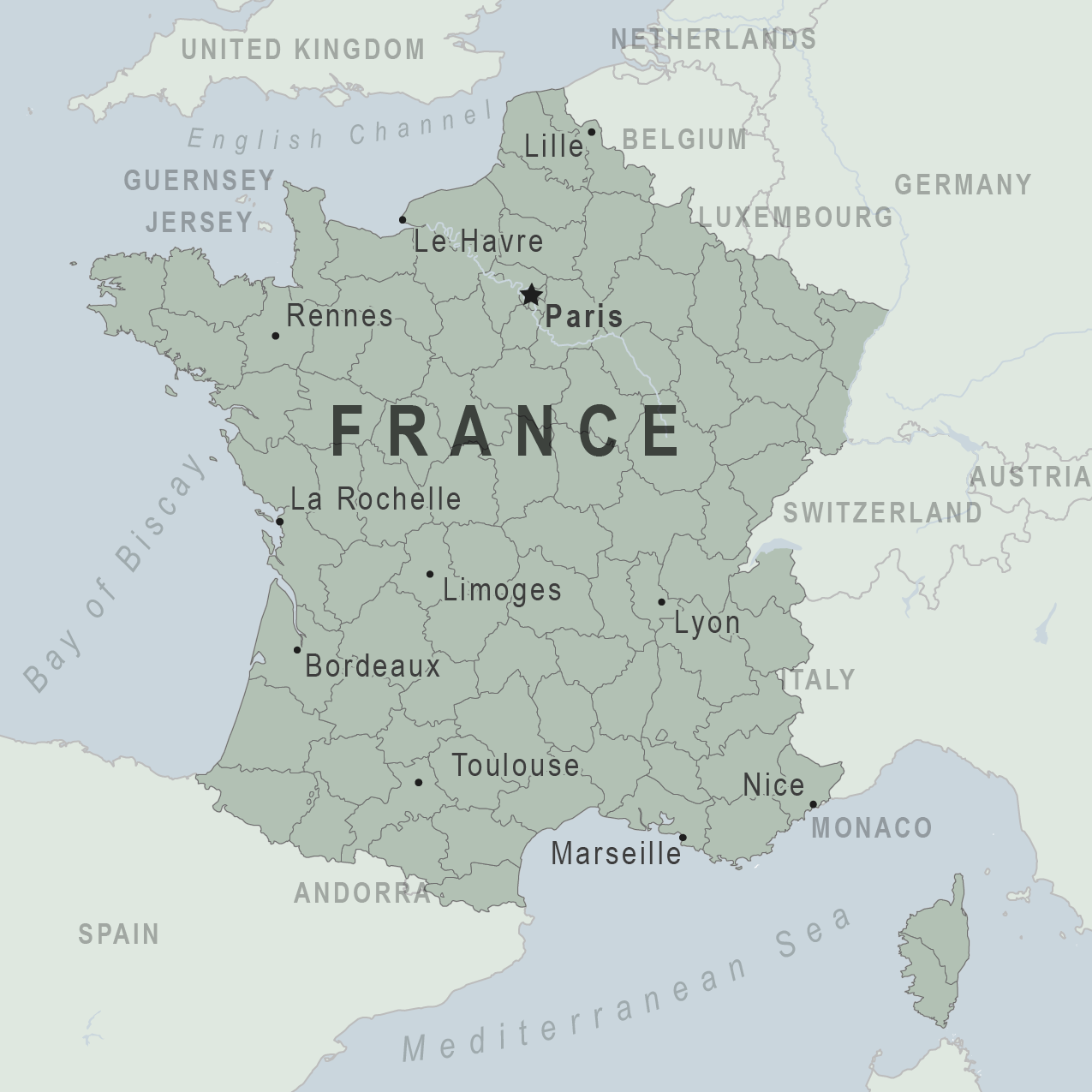
There are no notices currently in effect for France.
⇧ Top
Check the vaccines and medicines list and visit your doctor at least a month before your trip to get vaccines or medicines you may need. If you or your doctor need help finding a location that provides certain vaccines or medicines, visit the Find a Clinic page.
Routine vaccines
Recommendations.
Make sure you are up-to-date on all routine vaccines before every trip. Some of these vaccines include
- Chickenpox (Varicella)
- Diphtheria-Tetanus-Pertussis
- Flu (influenza)
- Measles-Mumps-Rubella (MMR)
Immunization schedules
All eligible travelers should be up to date with their COVID-19 vaccines. Please see Your COVID-19 Vaccination for more information.
COVID-19 vaccine
Hepatitis A
Consider hepatitis A vaccination for most travelers. It is recommended for travelers who will be doing higher risk activities, such as visiting smaller cities, villages, or rural areas where a traveler might get infected through food or water. It is recommended for travelers who plan on eating street food.
Hepatitis A - CDC Yellow Book
Dosing info - Hep A
Hepatitis B
Recommended for unvaccinated travelers younger than 60 years old traveling to France. Unvaccinated travelers 60 years and older may get vaccinated before traveling to France.
Hepatitis B - CDC Yellow Book
Dosing info - Hep B
Cases of measles are on the rise worldwide. Travelers are at risk of measles if they have not been fully vaccinated at least two weeks prior to departure, or have not had measles in the past, and travel internationally to areas where measles is spreading.
All international travelers should be fully vaccinated against measles with the measles-mumps-rubella (MMR) vaccine, including an early dose for infants 6–11 months, according to CDC’s measles vaccination recommendations for international travel .
Measles (Rubeola) - CDC Yellow Book
France is free of dog rabies. However, rabies may still be present in wildlife species, particularly bats. CDC recommends rabies vaccination before travel only for people working directly with wildlife. These people may include veterinarians, animal handlers, field biologists, or laboratory workers working with specimens from mammalian species.
Rabies - CDC Yellow Book
Tick-borne Encephalitis
Avoid bug bites.
Learn more about tick-borne encephalitis at your destination .
Tick-borne Encephalitis - CDC Yellow Book
Avoid contaminated water
Leptospirosis
How most people get sick (most common modes of transmission)
- Touching urine or other body fluids from an animal infected with leptospirosis
- Swimming or wading in urine-contaminated fresh water, or contact with urine-contaminated mud
- Drinking water or eating food contaminated with animal urine
- Avoid contaminated water and soil
Clinical Guidance
Leishmaniasis
- Sand fly bite
- Avoid Bug Bites
- Mosquito bite
- An infected pregnant woman can spread it to her unborn baby

Airborne & droplet
- Breathing in air or accidentally eating food contaminated with the urine, droppings, or saliva of infected rodents
- Bite from an infected rodent
- Less commonly, being around someone sick with hantavirus (only occurs with Andes virus)
- Avoid rodents and areas where they live
- Avoid sick people
Parvovirus B19
- Virus droplets from a cough or sneeze getting in your eyes, nose, or mouth
- Direct contact with the virus, like kissing the face of a child with parvovirus B19
- Touching a surface with the virus on it, like a doorknob, and then touching your face before washing your hands
- An infected pregnant person can spread it to their unborn baby
- Wash your hands often with soap and water
- Avoid touching your eyes, nose, and mouth
- Avoid crowded areas where you may be unable to maintain physical distance
- People who are pregnant , have blood disorders (e.g. sickle cell or thalassemia), or are immunocompromised are at higher risk for severe disease. If you are in these groups and are exposed to or contract parvovirus B-19, contact your healthcare provider.
Prevention and Treatment
Tuberculosis (TB)
- Breathe in TB bacteria that is in the air from an infected and contagious person coughing, speaking, or singing.
Learn actions you can take to stay healthy and safe on your trip. Vaccines cannot protect you from many diseases in France, so your behaviors are important.
Eat and drink safely
Food and water standards around the world vary based on the destination. Standards may also differ within a country and risk may change depending on activity type (e.g., hiking versus business trip). You can learn more about safe food and drink choices when traveling by accessing the resources below.
- Choose Safe Food and Drinks When Traveling
- Water Treatment Options When Hiking, Camping or Traveling
- Global Water, Sanitation and Hygiene | Healthy Water
- Avoid Contaminated Water During Travel
You can also visit the Department of State Country Information Pages for additional information about food and water safety.
Prevent bug bites
Although France is an industrialized country, bug bites here can still spread diseases. Just as you would in the United States, try to avoid bug bites while spending time outside or in wooded areas.
What can I do to prevent bug bites?
- Cover exposed skin by wearing long-sleeved shirts, long pants, and hats.
- Use an appropriate insect repellent (see below).
- Consider using permethrin-treated clothing and gear if spending a lot of time outside. Do not use permethrin directly on skin.
What type of insect repellent should I use?
- FOR PROTECTION AGAINST TICKS AND MOSQUITOES: Use a repellent that contains 20% or more DEET for protection that lasts up to several hours.
- Picaridin (also known as KBR 3023, Bayrepel, and icaridin)
- Oil of lemon eucalyptus (OLE) or para-menthane-diol (PMD)
- 2-undecanone
- Always use insect repellent as directed.
What should I do if I am bitten by bugs?
- Avoid scratching bug bites, and apply hydrocortisone cream or calamine lotion to reduce the itching.
- Check your entire body for ticks after outdoor activity. Be sure to remove ticks properly.
What can I do to avoid bed bugs?
Although bed bugs do not carry disease, they are an annoyance. See our information page about avoiding bug bites for some easy tips to avoid them. For more information on bed bugs, see Bed Bugs .
For more detailed information on avoiding bug bites, see Avoid Bug Bites .
Stay safe outdoors
If your travel plans in France include outdoor activities, take these steps to stay safe and healthy during your trip:
- Stay alert to changing weather conditions and adjust your plans if conditions become unsafe.
- Prepare for activities by wearing the right clothes and packing protective items, such as bug spray, sunscreen, and a basic first aid kit.
- Consider learning basic first aid and CPR before travel. Bring a travel health kit with items appropriate for your activities.
- If you are outside for many hours in the heat, eat salty snacks and drink water to stay hydrated and replace salt lost through sweating.
- Protect yourself from UV radiation : use sunscreen with an SPF of at least 15, wear protective clothing, and seek shade during the hottest time of day (10 a.m.–4 p.m.).
- Be especially careful during summer months and at high elevation. Because sunlight reflects off snow, sand, and water, sun exposure may be increased during activities like skiing, swimming, and sailing.
- Very cold temperatures can be dangerous. Dress in layers and cover heads, hands, and feet properly if you are visiting a cold location.
Stay safe around water
- Swim only in designated swimming areas. Obey lifeguards and warning flags on beaches.
- Do not dive into shallow water.
- Avoid swallowing water when swimming. Untreated water can carry germs that make you sick.
- Practice safe boating—follow all boating safety laws, do not drink alcohol if you are driving a boat, and always wear a life jacket.
Keep away from animals
Most animals avoid people, but they may attack if they feel threatened, are protecting their young or territory, or if they are injured or ill. Animal bites and scratches can lead to serious diseases such as rabies.
Follow these tips to protect yourself:
- Do not touch or feed any animals you do not know.
- Do not allow animals to lick open wounds, and do not get animal saliva in your eyes or mouth.
- Avoid rodents and their urine and feces.
- Traveling pets should be supervised closely and not allowed to come in contact with local animals.
- If you wake in a room with a bat, seek medical care immediately. Bat bites may be hard to see.
All animals can pose a threat, but be extra careful around dogs, bats, monkeys, sea animals such as jellyfish, and snakes. If you are bitten or scratched by an animal, immediately:
- Wash the wound with soap and clean water.
- Go to a doctor right away.
- Tell your doctor about your injury when you get back to the United States.
Reduce your exposure to germs
Follow these tips to avoid getting sick or spreading illness to others while traveling:
- Wash your hands often, especially before eating.
- If soap and water aren’t available, clean hands with hand sanitizer (containing at least 60% alcohol).
- Don’t touch your eyes, nose, or mouth. If you need to touch your face, make sure your hands are clean.
- Cover your mouth and nose with a tissue or your sleeve (not your hands) when coughing or sneezing.
- Try to avoid contact with people who are sick.
- If you are sick, stay home or in your hotel room, unless you need medical care.
Avoid sharing body fluids
Diseases can be spread through body fluids, such as saliva, blood, vomit, and semen.
Protect yourself:
- Use latex condoms correctly.
- Do not inject drugs.
- Limit alcohol consumption. People take more risks when intoxicated.
- Do not share needles or any devices that can break the skin. That includes needles for tattoos, piercings, and acupuncture.
- If you receive medical or dental care, make sure the equipment is disinfected or sanitized.
Know how to get medical care while traveling
Plan for how you will get health care during your trip, should the need arise:
- Carry a list of local doctors and hospitals at your destination.
- Review your health insurance plan to determine what medical services it would cover during your trip. Consider purchasing travel health and medical evacuation insurance for things your regular insurance will not cover.
- Carry a card that identifies, in the local language, your blood type, chronic conditions or serious allergies, and the generic names of any medicines you take.
- Bring copies of your prescriptions for medicine and for eye glasses and contact lenses.
- Some prescription drugs may be illegal in other countries. Call France’s embassy to verify that all of your prescription(s) are legal to bring with you.
- Bring all the medicines (including over-the-counter medicines) you think you might need during your trip, including extra in case of travel delays. Ask your doctor to help you get prescriptions filled early if you need to.
Many foreign hospitals and clinics are accredited by the Joint Commission International. A list of accredited facilities is available at their website ( www.jointcommissioninternational.org ).
Select safe transportation
Motor vehicle crashes are the #1 killer of healthy US citizens in foreign countries.
Be smart when you are traveling on foot.
- Use sidewalks and marked crosswalks.
- Pay attention to the traffic around you, especially in crowded areas.
- Remember, people on foot do not always have the right of way in other countries.
Riding/Driving
Choose a safe vehicle.
- Choose official taxis or public transportation, such as trains and buses.
- Make sure there are seatbelts.
- Avoid overcrowded, overloaded, top-heavy buses and minivans.
- Avoid riding on motorcycles or motorbikes, especially motorbike taxis. (Many crashes are caused by inexperienced motorbike drivers.)
- Choose newer vehicles—they may have more safety features, such as airbags, and be more reliable.
- Choose larger vehicles, which may provide more protection in crashes.
Think about the driver.
- Do not drive after drinking alcohol or ride with someone who has been drinking.
- Consider hiring a licensed, trained driver familiar with the area.
- Arrange payment before departing.
Follow basic safety tips.
- Wear a seatbelt at all times.
- Sit in the back seat of cars and taxis.
- When on motorbikes or bicycles, always wear a helmet. (Bring a helmet from home, if needed.)
- Do not use a cell phone or text while driving (illegal in many countries).
- Travel during daylight hours only, especially in rural areas.
- If you choose to drive a vehicle in France, learn the local traffic laws and have the proper paperwork.
- Get any driving permits and insurance you may need. Get an International Driving Permit (IDP). Carry the IDP and a US-issued driver's license at all times.
- Check with your auto insurance policy's international coverage, and get more coverage if needed. Make sure you have liability insurance.
- Avoid using local, unscheduled aircraft.
- If possible, fly on larger planes (more than 30 seats); larger airplanes are more likely to have regular safety inspections.
- Try to schedule flights during daylight hours and in good weather.
Helpful Resources
Road Safety Overseas (Information from the US Department of State): Includes tips on driving in other countries, International Driving Permits, auto insurance, and other resources.
The Association for International Road Travel has country-specific Road Travel Reports available for most countries for a minimal fee.
Maintain personal security
Use the same common sense traveling overseas that you would at home, and always stay alert and aware of your surroundings.
Before you leave
- Research your destination(s), including local laws, customs, and culture.
- Monitor travel advisories and alerts and read travel tips from the US Department of State.
- Enroll in the Smart Traveler Enrollment Program (STEP) .
- Leave a copy of your itinerary, contact information, credit cards, and passport with someone at home.
- Pack as light as possible, and leave at home any item you could not replace.
While at your destination(s)
- Carry contact information for the nearest US embassy or consulate .
- Carry a photocopy of your passport and entry stamp; leave the actual passport securely in your hotel.
- Follow all local laws and social customs.
- Do not wear expensive clothing or jewelry.
- Always keep hotel doors locked, and store valuables in secure areas.
- If possible, choose hotel rooms between the 2nd and 6th floors.
Healthy Travel Packing List
Use the Healthy Travel Packing List for France for a list of health-related items to consider packing for your trip. Talk to your doctor about which items are most important for you.
Why does CDC recommend packing these health-related items?
It’s best to be prepared to prevent and treat common illnesses and injuries. Some supplies and medicines may be difficult to find at your destination, may have different names, or may have different ingredients than what you normally use.
If you are not feeling well after your trip, you may need to see a doctor. If you need help finding a travel medicine specialist, see Find a Clinic . Be sure to tell your doctor about your travel, including where you went and what you did on your trip. Also tell your doctor if you were bitten or scratched by an animal while traveling.
For more information on what to do if you are sick after your trip, see Getting Sick after Travel .
Map Disclaimer - The boundaries and names shown and the designations used on maps do not imply the expression of any opinion whatsoever on the part of the Centers for Disease Control and Prevention concerning the legal status of any country, territory, city or area or of its authorities, or concerning the delimitation of its frontiers or boundaries. Approximate border lines for which there may not yet be full agreement are generally marked.
Other Destinations
If you need help finding travel information:
Message & data rates may apply. CDC Privacy Policy
File Formats Help:
- Adobe PDF file
- Microsoft PowerPoint file
- Microsoft Word file
- Microsoft Excel file
- Audio/Video file
- Apple Quicktime file
- RealPlayer file
- Zip Archive file
Exit Notification / Disclaimer Policy
- The Centers for Disease Control and Prevention (CDC) cannot attest to the accuracy of a non-federal website.
- Linking to a non-federal website does not constitute an endorsement by CDC or any of its employees of the sponsors or the information and products presented on the website.
- You will be subject to the destination website's privacy policy when you follow the link.
- CDC is not responsible for Section 508 compliance (accessibility) on other federal or private website.

A guide to Paris for first-time visitors
T he city of Paris has long been designated as the City of Romance and Love, which is why it is so popular amongst those who are romantics. However, that doesn’t mean that every traveler will not find exactly what they need and want when they visit this extraordinary destination. After all, there are miles of streets filled with monuments, museums, boutiques, restaurants, galleries, and more for travelers to see and experience! These are a few highlights of things to do in Paris and travel tips for visiting Paris for the first time. Here’s a guide to Paris for first-time visitors.
Is Paris a safe city?
Generally, Paris is a safe city for tourists. However, as with any major metropolitan area, it’s wise to be aware of your surroundings, especially in crowded areas, and take precautions against pickpocketing. Stick to well-lit areas at night and use reputable transportation options.
Best Time to Visit Paris
Paris is beautiful year-round, but the best time to visit depends on your preferences:
Spring (April-June) and Fall (September-October): Milder temperatures, fewer crowds, and colorful foliage (in autumn) make these seasons ideal for exploring the city’s parks and gardens.
Summer (July-August): Warm weather and long daylight hours are perfect for outdoor activities, but be prepared for larger crowds and higher prices.
Winter (November-March): While colder, Paris is magical during the holiday season, with festive lights and Christmas markets.
Transportation in Paris
Those travelers who visit Paris will find that they better wear their walking shoes because adventures in this city require a lot of walking. However, when people get tired of wandering from one attraction to another, or something is a little further away than they would like to walk, they can always take the Metro.
The Metro in Paris is one of the oldest systems in the entire world, yet it is also one of the best. With approximately three hundred stations, there is usually one near where a person is within the city. The Metro is open from half-past five in the morning until half-past twelve in the morning. Maps are readily available for travelers, and the cost of one ticket is currently 1.90 euros. Tickets can be purchased from the ticket windows within the stations or at any of the automated ticket vending machines. Everyone can purchase discounted books of tickets, as well as one-day, two-day, three-day, and five-day passes.
The bus is another transportation option, especially for those who want to see the sights as they go from one to another. Metro tickets can be used for the buses as well, which is perfect for those travelers who want the best of both transportation options.
Read more on transportation in Paris
Best area to stay in Paris for first-timers
- Saint-Germain-des-Prés: Chic and central, ideal for art lovers and foodies.
- Le Marais: Trendy and historic, perfect for fashionistas and those interested in Jewish culture.
- Latin Quarter: Lively and affordable, ideal for students and budget travelers.
- 7th Arrondissement: Close to the Eiffel Tower and other major attractions, but can be pricier.pen_spark
Where to Stay in Paris
There are plenty of hotels in Paris, which means that everyone planning a visit will have plenty of options. Here are three of the best that past visitors have loved on TripAdvisor.
Hotel la Manufacture, 8 rue Philippe de Champagne, 13 th Arr., 75013
This hotel is located inside a beautiful 19th-century building, and guests love the elegant and luxurious touches throughout the space. This boutique hotel is close to public transportation, which is perfect for those who are in the city to see the sights. There are plenty of cafés and restaurants within walking distance, and guests love the bilingual staff, as they are capable of solving any issue and are quite helpful.
Hotel Cecilia Paris, 11 Avenue Mac Mahon, 17 th Arr., 75017
Breakfast is included at this charming hotel, which is only a five-minute walk from the infamous Champs Élysées. Guests can be at the stations for the Metro and the stops for the bus in minutes and there are numerous restaurants nearby. The rooms offer all the comforts of home, as well as gorgeous views of the city streets.
Hotel Magda Champs Élysées, 7 rue Troyon, 75017
This charming hotel is much closer to the Arc de Triomphe than many of the others in the area, which makes it perfect for those travelers who want to stay mainly in that part of the city. The rooms offer the ultimate in comfort and style and they come complete with free Wi-Fi. Breakfast is available every day and the concierge is always available to help guests with their needs.
How many days to spend in Paris first time
For a first-time visitor to Paris, I’d recommend spending at least 4-5 days to get a good feel for the city and see some of the major attractions. This allows for a comfortable pace, with time to explore different neighborhoods, visit museums, enjoy the local cuisine, and even take a day trip to Versailles or another nearby destination.
Here’s a breakdown of how you could spend those days:
- Day 1: Explore the historic center, including the Louvre Museum, Tuileries Garden, and the Île de la Cité.
- Day 2: Discover the iconic Eiffel Tower, take a Seine River cruise, and wander through the charming streets of Montmartre.
- Day 3: Immerse yourself in the artistic atmosphere of the Latin Quarter, visit the Musée d’Orsay or the Centre Pompidou, and enjoy the lively ambiance of the area.
- Day 4: Venture out to the Palace of Versailles, a stunning royal residence just outside of Paris, or explore other nearby attractions like Disneyland Paris or Giverny (home to Monet’s gardens).
- Day 5: Relax and revisit favorite spots, explore a new neighborhood, or indulge in some last-minute shopping and dining.
Of course, if you have more time, you can easily extend your stay to a week or even longer. There’s so much to see and do in Paris that you could easily spend weeks or months exploring its many treasures!
What to Do in Paris
There are so many different things that travelers can do in Paris, which is why everyone must have an idea of what they want to see prior to their arrival. If not, they are going to miss out on too much of this spectacular destination. Here are four things that everyone must do during their visit:
Visit the Musée du Louvre, 99 rue de Rivoli
There are plenty of museums in Paris, but the one that everyone must visit is the Louvre. This magnificent museum opened in 1793 and now holds approximately thirty-five thousand works of art. The most famous piece is the Mona Lisa by Leonardo da Vinci, but visitors will also appreciate Delacroix’s Liberty of Leading the People and Géricault’s The Raft of Medusa. Tickets are 15 euros, although children ages seventeen and younger get in for free.
Visit the Eiffel Tower, Parc du Champ de Mars
The Eiffel Tower is an iconic piece of history in Paris that was not supposed to be around today. While that could be its main draw, most people love the fact that they can go to the top and see fabulous views of the streets below. The best time to visit is at night, when everything in the city is lit up, but that should never stop a person from going during the daytime. A ticket to only the second floor is approximately 16.3 euros, while a lift entrance ticket that allows entrance to the summit is 25.5 euros.
Visit the Père-Lachaise Cemetery, 16 rue du Repos
Not too many people consider visiting cemeteries when they are on vacation, but travelers will want to make an exception for this one. This is the most beautiful cemetery in the world, and it is also the most famous. As visitors are walking around the one hundred and ten acres, they will find themselves seeing the tombstones of people that are buried there, including Oscar Wilde, Gertrude Stein, Jim Morrison, and many others. This cemetery is free to the public, but it never feels overcrowded.
Visit the Arc de Triomphe, Place Charles de Gaulle
This massive monument can be found on the western end of Champs Élysées, and no one can really miss spotting it when they are in the area. The Arc de Triomphe honors those who fought during the Napoleonic Wars and every battle, and the generals who fought in them are listed below the arch. The Tomb of the Unknown Soldier is also located here, and it represents all those soldiers who were either lost or killed and unidentified during the first World War. It costs 8 euros for adults to enter, and children ages seventeen and younger are free.
Visit the Palace of Versailles Place d’Armes, 78000 Versailles, France
The Palace of Versailles was the royal residence of France from 1682 to 1789. You can tour the estate and the gardens. I would advise getting a ticket a timed ticket if you can make it within 30 minutes of your selected time. Without the ticket, people waited in line for hours. We walked up to the left entrance and breezed through. Read more about a day trip from Paris to Versailles.
Palace of Versailles Virtual Tour | Chateau de Versailles| Gardens of Versailles Virtual Tour
Where to eat in paris.
Everyone needs to eat when they are in Paris because some of the best food in the world is available there! Here are three all-time favorites:
Ellsworth, 34 rue de Richelieu
This restaurant’s specialty is small plates, and travelers can dine on delectable cuisine without a reservation. Buttermilk fried chicken is the most popular dish, but no one has ever said anything bad about anything on the menu.
Taloa at A. Noste, 6 bis rue du Septembre
Sandwiches filled with spicy chorizo, pork belly, or confit de canard are the most popular at this restaurant, but there are plenty of other Basque tapas ready and waiting to be served. Those who cannot find what they crave here can always venture upstairs for a little southwestern French cuisine in the fine dining room.
Crêpes at Breizh Café, 111 rue Vieille du Temple
The crepes at this restaurant are filled with Breton produce, as well as many other delicious ingredients. The galette filled with smoked herring and potatoes is a must-have, as is the matcha with white chocolate mousse crepe for dessert.
Little Africa/Goutte d’Or neighborhood in the 18th arrondissement of Paris
Filled with shops and delicious cuisine from various countries in Africa. I ate at Le Loyo near the Sacred Heart, the cuisine was Ivory Coast inspired and delicious!
F estivals in Paris and events in Paris
When traveling, everyone is always looking for a festival or other local event to attend, and Paris does not disappoint.
Paris Plages and Seine River
Paris Plages began in 2002, and this event turned many areas within the city into complete beaches. It all began on the River Seine, but since that first one, it has grown to include many other destinations throughout the city. These beaches will open in June and will be open daily until early September.
Bastille Day Celebrations
Bastille Day is celebrated in Paris every year on July 14 th and locals and visitors alike can be seen enjoying the entire day filled with fun events and fireworks. Everyone will want to watch the traditional military parade held on Champs Élysées before attending the huge dance party or firemen galas.
Paris Jazz Festival -Late June until mid-July
Nightlife in Paris
Exciting nightlife can be found everywhere in the city of Paris, so no traveler will ever be without something to do once the sun sets in the sky. The Oberkampf District can get a little crowded and rowdy, but it is still a favorite among those who want to transport themselves back to the 90s. The younger crowds seem to favor the Bastille area, while the budget-conscious love the local bars within Ménilmontant and Gambetta.
With its rich history, vibrant culture, and undeniable charm, Paris will leave a lasting impression. By following this guide, you’ll be well-equipped to make the most of your first visit and discover all that Paris has to offer.
Pin this article
The post A guide to Paris for first-time visitors appeared first on Work Hard Travel Well .

5 Paris Sights to Book in Advance – and 5 NOT to
Salut from Paris is supported by its audience. When you purchase through links on this site, we may earn an affiliate commission. Learn more
Are you planning a trip to Paris and wondering which sights and attractions to book in advance? Smart move. Because securing some of the most sought-after tickets can be as tough as getting a table at a Michelin-star restaurant on short notice.
If you’re not online the moment the tickets are released, you stand almost no chance. I wish I was exaggerating because the idea of mapping out an entire trip in advance … ugh. Who knows seven weeks in advance what they’re up to on day two?
But here’s the good news: You don’t need to book everything for Paris. Even though some sights sell out, some others let you just pop in.
And in this guide, I share with you how to make sure not to miss any must-do’s in Paris and save up enough time to wander in the meantime.

Salut, I am Lena – travel planning expert and parisienne since 2006 🩷
5 Places & Sights in Paris to Book in Advance
Before I come straight to the point and tell you the sights in Paris you need to reserve in advance, one tip that I learned the hard way:
❗ If a museum, restaurant, or landmark is on your bucket list, no matter how popular or not, book it when you can. Because those once-in-a-lifetime items are not up for gamble and not worth taking any risk. If you don’t want to miss it, book it!
#1 The Eiffel Tower
- Eiffel Tower Summit or Second Floor Access: view prices & availabilities
If a trip to Paris is incomplete for you without visiting the Eiffel Tower, then don’t risk it and book your tickets in advance.
The official page releases tickets to the summit and 2nd floor by lift 60 days in advance , at midnight, Paris time. That’s at least what they say. But the exact time can vary and once the tickets become available, they are more often than not gone within minutes.
Tickets to the 2nd floor by stairs are available online on their page 14 days in advance .

Sold out! Here’s what you can do
If you missed your moment and online are no tickets available anymore, you have two options.
#1 Eiffel Tower Tickets are available onsite on the day. But access is not guaranteed, and you might need to queue for 3 hours and more, rain or shine.
#2 Book an Eiffel Tower Tour on Get Your Guide or Viator . It is a bit pricier, but if the official site is sold out and waiting in line for hours is no option, then Get your Guide or Viator can come to the rescue.
For your convenience, here’s a brief overview of the best rated tours:
- Eiffel Tower Summit & Seine Cruise: view prices & schedules
#2 The Louvre
Louvre Timed Entry: Reserve your ticket here
The Louvre is the most visited museum in the world, with more than 9 Million annual visitors. It’s busy, and the truth is that there is no way for you to avoid the crowds. Because even though weekdays are less busy than weekends, the Louvre is still and always crowded.
But do you need to book tickets for the Louvre in advance? You don’t need to, but planning ahead comes with one undeniable advantage: The waiting at the Louvre without a booked ticket can be up to 2 hours.

And without a ticket, you queue twice: at the security check point and the ticket booth.
Here’s where you can book your ticket for the Louvre in advance:
- TOP: Louvre Masterpieces Tour with Reserved Access – view prices here
- Louvre Timed Entry: Reserve here on Get Your Guide
- if still available, you can also reserve them on the official Louvre page
#3 The Château de Versailles
- Versailles Palace & Gardens Full Access Ticket: Reserve here
The Château de Versailles lies just a short train ride outside of Paris and is the Number 1 destination for every visitor, who is keen on a little side trip from Paris. And if this is your case, I strongly advise buying tickets in advance.
During the busy summer months and often on weekends, the sought after time slots sell out quick. Not as fast as the Eiffel Tower tickets, but last-minute purchases are mostly impossible.
Especially the morning tickets are gone quick, as it’s just the most convenient time to visit because you’re back in Paris in the afternoon.
You can book your ticket on the castle’s website, or simply here:
- Versailles & Garden Tour with Transfer from Paris: Book your seat here

#4 The Catacombs of Paris
- Paris Catacombs: Skip-the-Line Special Access Tour Check availability here
The Catacombs, an underground ossuary holding the remains of over six million people, are one of the unique, but also one of the most popular sites in Paris.
Due to its very limited capacity and high demand, booking ahead is essential. More concrete, only 200 visitors can enter the catacombs at a time, and time slots fill up quickly.
That you can book tickets on their website only up to 7 days in advance is not making it easier to secure your slot.
On most days, there are absolutely no tickets available anymore on site, and you have zero chance to get in without having prebooked.
If you don’t want to risk missing out, you can book a guided tour longer in advance:
- Catacombs Entry, Audioguide and Seine Cruise View prices here

#5 Michelin Star & Fine Dining Restaurants
If your trip to Paris is an opportunity to sample the creations of some of the most legendary cooks, then you definitely need to plan ahead.
Michelin Star restaurants are booked out well in advance, and so are the top-notch fine dining establishments. Just popping in? Impossible.
Your best bet is to be flexible and consider having lunch instead of dinner. It doubles your chances and as a plus: the lunch menus are always more affordable.

5 Activities in Paris you Don’t Need to Reserve
But despite all the buzz, the crowds, and the need to reserve certain activities in Paris, there’s plenty of wiggle room. And in Paris terms, this means time to wander, explore, to go with the flow end to enjoy Paris.
I like to think of Paris trip planning in two categories:
- the essentials : 1 or 2 activities a day that are fixed on your itinerary
- the extras: hidden gems , cafés, parks, smaller museums that you can sprinkle around as you feel it.
And, these extras don’t require neither a reservation nor planning. Here are 5 Paris activities that you don’t need to reserve.
#1 Seine Cruises on one of the Bateaux Mouches
Personally, I’m a massive fan of Seine Sightseeing Cruises and consider them one of the best things to do in Paris.
Cheesy and touristy? Hell yes. Relaxing, beautiful, and thoroughly enjoyable? Absolutely! And the best part is that you don’t need to cement them into your itinerary.
You can take a Bateau Mouche from Pont Alexandre III or a Bateau Parisienne from the Eiffel Tower. Depending on the season, they leave every 30 to 60 minutes.
If, against all odds, the queues are too long, just head over to Pont Neuf and hop on a Vedette de Pont Neuf . Or take the popular Batobus , which serves nine stops throughout Paris, so one will always be close by.
If you are keen on taking a Cruise with some extras, you need to book them in advance, though:
- 2- Hour River Seine Lunch Cruise : Book here
- Private Boat Cruise on the Seine River: View prices here
- Champagne Tasting Cruise from the Eiffel Tower: View prices & availabilities

#2 The Musée Carnavalet
See here my list of free museums in Paris
Everyone knows the Louvre and the Musée d’Orsay, but did you know that Paris has around 130 museums in Paris? And most of them you don’t need to reserve to visit.
The Musée Carnavalet is one of them. This fantastic museum focuses on the history of Paris, and on top of no reservation required, it is also free.
It has an extensive collection of artifacts, paintings, and photos that tell the story of Paris from its beginnings to today. The restored rooms and exhibits give a glimpse into Parisian life over the years, and it is a must if you want to get closer to the core of Paris.

#3 Montmartre
Also read my Montmartre Guide to know what awaits you
Montmartre in the well-known artist district in the north of Paris. This neighborhood is a must on anyone’s Paris agenda and is perfect for letting yourself drift and enjoying Parisian life.
Whether you spend a short morning here or an entire afternoon, Montmartre does not require an itinerary nor a strict plan. Just wander the streets and soak up the atmosphere.
You will come across the sights of Montmartre one way or another: The majestic Sacre Cœur, the Musée de Montmartre, Place de Tertre, La Maison Rose, Rue de l’Abreuvoir … just to name a few. If you want to eat at the Maison Rose, it is better to reserve, though.

#4 The Panthéon & the Arc de Triomphe
Paris has a whole range of spectacular landmarks, that are absolutely worth visiting, but that don’t belong to the big headliners like the Louvre or the Eiffel Tower.
Most visitors walk by, take photos and then move on. And these are precisely those attractions that you don’t necessarily need to reserve in advance and block your Paris agenda with ahead of time.
Amongs other, this applies to:
- The Panthéon
- Arc de Triomphe
- Tour Montparnasse
- The Musée de l’Architecture
- La Maison Victor Hugo
- Musée Rodin
There might be a queue, but it’s moves usually quick, and you can simply decide on the spot if you are up for it – or not.
However, if it ruined your trip if a visit it wouldn’t work out, then better don’t take any risk and book ahead.

#5 Brasseries, Bouillons & Bistros
Here’s my guide on traditional Bouillons Restaurants in Paris
Is the culinary side of Paris on your bucket list ? Then you’ll be pleased to hear that the weeks-in-advance reservation only applies to the popular and hyped fine dining establishments.
If you’re keen on casually eating steak tartare in a brasserie, sampling authentic traditional food in a bouillon, or just popping onto a terasse for a croque monsieur, Paris is at your feet.
You have a plethora of restaurants to choose from. And if in doubt, if your eatery of choice is more of a tourist trap than a local hot spot, check TripAdvisor and the restaurants’ menu. If it’s in more than French and in English and has 20+ items on it, better stay away.

Good to know: Traditional Bouillons usually don’t even take reservations, you just queue and wait your turn.
Voilà, here’s to Paris trip planning and knowing what to stress about and what not to. While it’s essential to book certain things in advance and plan a bit ahead, you don’t need to map out your entire itinerary.
This way, you ensure you don’t miss the essentials while leaving enough time to wander around and soak up the atmosphere. Bon voyage!

Parisienne since 2006 🩷
Expert in: Parisian Life &
French Culture, Travel
Planning, Crochet & Food and Drinks
Join me on Facebook for updates and news about Paris.

Must Have Paris Travel Essentials
International Travel Adapter

Order here from Amazon
Portable Charger for your Phone

Similar Posts

11 Sublime Eiffel Tower Photo Spots you Need to Know About

Paris on Valentine’s Day: 13 Romantic Date Ideas

Paris with Teenagers: 51+ Fun Activities & Tips from a Local Mom

98+ Exciting Hidden Gems: non-touristy things to do in Paris

Can you Drink Tap Water in Paris? Get Your Clear Answer

What is Paris famous for? 28 striking things Paris is known for!
Leave a reply cancel reply.
Your email address will not be published. Required fields are marked *
Save my name, email, and website in this browser for the next time I comment.
- Skip to main content
- Skip to "About this site"
Language selection
Search travel.gc.ca.
Help us to improve our website. Take our survey !
COVID-19: travel health notice for all travellers
France travel advice
Latest updates: The Health section was updated - travel health information (Public Health Agency of Canada)
Last updated: May 6, 2024 10:24 ET
On this page
Safety and security, entry and exit requirements, laws and culture, natural disasters and climate, france - exercise a high degree of caution.
Exercise a high degree of caution in France due to the elevated threat of terrorism.
Back to top
"Attack emergency" alert
On March 24, 2024, the Prime Minister of France raised the security threat level within the “Vigipirate” plan to “urgence attentat” (“attack emergency”). This is the highest level in the Vigipirate plan, a set of measures to prepare and protect the population and public places. The decision was made following a terrorist attack in Moscow claimed by the Islamic State.
Always be aware of your surroundings when in public places. Be particularly alert during public gatherings and demonstrations.
If you are in France:
- expect enhanced security measures and an increased police presence at the border and in public places
- monitor local media for the most recent information
- follow the instructions of local authorities
Vigipirate plan – Government of France (in French)
Olympic and Paralympic Games
The Olympic Games will take place in Paris from July 26 to August 11, followed by the Paralympic Games from August 28 to September 8, 2024.
Public events will take place across France starting on May 8 and will continue until the opening ceremony.
If you plan to travel to France during this time, plan your travel accordingly.
During the Olympic Games, especially in Paris, you should expect:
- an increased presence of security forces
- major disruptions to traffic and movement
- large crowds and public gatherings
Useful links
- Games-related information and advice for Canadians
- Olympic and Paralympic Games Paris 2024 – official site
Commemorative ceremony for the 80th anniversary of the Normandy Landings
The Commemorative Ceremony for the 80th anniversary of the Normandy Landings will be held in France on June 6, 2024.
If you are in Normandy or plan to travel there during the 80th anniversary of the Landings:
- exercise caution
- avoid unauthorized demonstrations and large gatherings
- monitor local media to stay informed of the situation
- follow the advice of local authorities
D-Day 80 - Veterans Affairs Canada
There is a threat of terrorism in Europe. Terrorists have carried out attacks in several European cities.
Over the past few years in France, several opportunistic and premeditated attacks have occurred. These have resulted in many deaths and injuries. Further attacks are likely.
Vigipirate plan
The Vigipirate plan is a set of measures established by the French government to prepare and protect the French population, infrastructure and institutions in the event of an attack. The aim is also to allow rapid deployment of intervention measures if necessary.
As part of this plan, the government maintains a 3-level public alert system for terrorism. Changes in the threat level are communicated online and through local and national media.
Operation sentinelle
Operation Sentinelle allows the deployment of military brigades in public places to patrol and deter terrorist acts. Enhanced security measures have been deployed in various strategic locations, including:
- transport hubs
- public places
- tourist locations, especially in Paris
Expect an increased police or military presence in public places, including some tourist locations, particularly in Paris.
Attacks can occur anywhere. Terrorists may target:
- government buildings and those of local authorities
- schools/universities
- places of worship
- places dedicated to culture, such as exhibition galleries, museums, concert halls and theatres
- airports, railway stations and other transportation hubs and networks
- public areas such as tourist attractions, monuments, restaurants, bars, coffee shops, shopping centres, markets, hotels and other sites frequented by foreigners
While in France:
- always be aware of your surroundings when in public places
- be particularly vigilant if attending large gatherings such as sporting events and religious celebrations or other public celebrations
- Information on the terrorist threat in France - Ministry of the Interior (in French)
- How to react in case of a terrorist attack - Government of France (in French)
- Social media accounts of the Ministry of the Interior - Ministry of the Interior (in French)
- Vigipirate – General secretary of defense and national security (in French)
Petty crime
Petty crimes, such as pickpocketing, and purse and mobile phone snatching are common.
Thieves are very skilled. They often act in groups and are often minors. They may use various techniques to divert your attention and steal your belongings.
Thieves are mainly active in large cities and busy places, such as:
- the main tourist sites
- department stores
- restaurants and patios
- hotel lobbies
- public transport, in particular the Paris metro and the Île-de-France regional express network (RER) lines linking the capital to its surroundings
Violent crimes
Violent crimes are rarer, but still occur.
Tourists are sometimes victims of violent attacks by groups of young people who want to rob them. These attacks usually occur :
- around major tourist attractions
- near railway stations
- on trains of the Île-de-France regional express network (RER) connecting the capital to its surroundings
Assaults can also occur outside night-time establishments and in more isolated areas at night.
Residential break-ins
Residential break-ins occur, especially in large cities and coastal areas. Burglars sometimes target houses or holiday rental apartments.
- be vigilant, particularly when approached by strangers
- ensure that your belongings, including passports and other travel documents, are secure at all times
- avoid showing signs of affluence and carrying large sums of cash
- limit the use of mobile phones on public transportation and in crowded areas to ensure you remain aware of your surroundings and to avoid attracting attention
- don’t keep your credit, debit cards and cash in the same place
- never leave your bags unsupervised
- choose well-secured accommodation and make sure you lock doors and windows at night and when you’re away
Parked vehicles and vehicles on the road
Vehicle break-ins are frequent. Theft of parked cars or their contents is particularly common on beach roads in the south of France and at highway rest stops throughout the country, especially during the summer, when there is a high number of travellers.
- Leave nothing in view in the vehicle
- Use secure parking facilities
- Be particularly vigilant when renting automobiles, as rented vehicles are a target of choice
Drivers are often tricked into stopping their cars by thieves who either obstruct the road or distract the driver by flashing their headlights. They may also pretend that you have a flat tire or even puncture a tire themselves. Once the vehicle is stopped, the thieves seize the opportunity to steal a bag or other valuable objects.
- Beware of any person who waves at you to stop on the highway
- Be especially vigilant when stopped at traffic lights, as bags are often snatched from the front passenger seat by thieves travelling on scooters
- Keep windows closed and doors locked at all times
Victims of crime
If you’re a victim of theft, go to the nearest police station to report the crime. Keep a copy of your theft report, as you will need it if you wish to make a claim to your insurer. If the incident takes place in the metro, a metro officer can direct you to the nearest police station.
You can complete an online pre-complaint for certain types of minor crime, such as property theft, before going to the police station. This may speed up the process once you get there.
- Prevention advice for tourists - Préfecture de police de Paris
- Online pre-complaint - Ministry of the Interior (in French)
Bomb threats
Since October 2023, there have been a number of bomb threats sent to public places across France.
Bomb threats and hoaxes can target any location, including:
- tourist areas
- shopping centres
- transportation hubs
- government facilities
- religious institutions
If you are in an area targeted by a bomb threat, follow the instructions of local authorities including evacuation orders.
Credit card and ATM fraud
Credit card and ATM fraud occurs.
When using debit or credit cards:
- pay careful attention if other people are handling your cards
- use ATMs located in public areas or inside a bank or business
- avoid using card readers with an irregular or unusual feature
- cover the keypad with one hand when entering your PIN
- check for any unauthorized transaction on your account statements
Cybercrime occurs. Perpetrators may compromise public Wi-Fi networks to steal credit card or personal information.
- Avoid using unsecured public Wi-Fi networks
- Avoid making purchases on unencrypted websites
- Be cautious when posting information on social media
- Be particularly vigilant when contacting or meeting individuals known over the internet
Overseas fraud
Demonstrations
Demonstrations occur frequently. They are usually planned as permission from the local authorities is required. However, unauthorized and spontaneous demonstrations also take place.
Even peaceful demonstrations can turn violent at any time. They can also lead to disruptions to traffic and public transportation.
Radical activists and vandals have a history of using aggressive and violent tactics during demonstrations in order to cause damage and provoke a strong response from the police. They sometimes throw stones, smoke grenades, bottles and other debris at rallies. The police normally respond with tear gas to disperse the crowds.
- Avoid areas where demonstrations and large gatherings are taking place
- Follow the instructions of local authorities
- Monitor local media for information on ongoing demonstrations
Mass gatherings (large-scale events)
Strikes and pressure tactics occur regularly, particularly in key sectors such as transport. These strikes can sometimes complicate travel and disrupt public services.
- Consult local media to be aware of strikes that may affect your stay or travel plans
- In the event of a transport strike, plan extra time to get to your destination
Swimming, boating and water safety
Coastal waters can be dangerous. Always obey warning flags at beaches.
The main warning flags used in France are:
- Green: calm waters, swimming is allowed
- Yellow: agitated waters, swim with precautions
- Red: dangerous waters, swimming is prohibited
- Purple: contaminated waters or presence of dangerous aquatic species, swimming is prohibited
In autumn and winter, be cautious when walking on the shore, as waves can be unpredictable, breaking further than expected and causing strong undertows.
- Avoid visiting beaches or coastal areas during periods of severe weather warnings
- Look out for signs warning of cliff erosion and falling rocks
- Don’t dive into unknown waters, as hidden rocks or shallow depths can cause serious injury or death
- Exercise caution and follow the advice of the local authorities
Recreational boating
If you are planning to go boating:
- know the capacity of your boat (people and weight) and don’t exceed it
- know the navigation rules
- follow safe practices for all activities on the water: personal watercraft, water-skiing and towed devices, diving or swimming, fishing, etc.
- equip your boat with a VHF marine radio that will generate your position in case of emergency
- be prepared for emergencies
Search and rescue missions in France are carried out by the Regional Operational Surveillance and Rescue Centres (CROSS). In case of emergency, contact the centre on VHF radio channel 16 or by dialling 196.
- Surveillance and rescue at sea - Ministry of the Sea (in French)
- Water safety abroad
Mountain activities
Mountain activities, such as hiking, can be dangerous, especially if they are not well prepared. Trails are not always marked and weather conditions can change rapidly, even in summer.
In winter, heavy snowfall can make it difficult to reach some villages and ski centres. Roads may become impassable. There is also a risk of avalanches, some of which can be fatal.
If you intend to go hiking, mountaineering or skiing:
- never do so alone and do not part with your hiking companions
- buy travel insurance that includes helicopter rescue and medical evacuation
- ensure that your physical condition is good enough to meet the challenges of your activity
- do not venture off marked trails or slopes
- ensure that you’re adequately equipped
- stay informed about weather and other conditions that may pose a hazard
- inform a family member or friend of your itinerary
- know the symptoms of acute altitude sickness, which can be fatal
- obtain detailed information on your activity and on the environment in which you will be doing it before setting out
- Information on mountain conditions - Association nationale pour l'étude de la neige et des avalanches (ANENA) (in French)
- Specialised mountain units - Gendarmerie nationale (in French)
- Avalanche forecasts and warnings - European Avalanche Warning Service (EAWS)
Road safety
French roads are well maintained.
Drive carefully and respect the Highway Code.
Public transportation
Urban and intercity public transportation is reliable. When using these types of transport, make sure you validate your ticket and keep it until the end of your journey. The authorities carry out regular random checks and you may be fined if you do not have a validated ticket.
There is a problem of illegal taxis in Paris airports and train stations. These scammers charge much higher rates than the official ones.
- Ignore direct solicitations when leaving the airport or train station
- Use only official taxis or a trusted ride-sharing app
- Don’t share a taxi with strangers
We do not make assessments on the compliance of foreign domestic airlines with international safety standards.
Information about foreign domestic airlines
Every country or territory decides who can enter or exit through its borders. The Government of Canada cannot intervene on your behalf if you do not meet your destination’s entry or exit requirements.
We have obtained the information on this page from the French authorities. It can, however, change at any time.
Verify this information with the Foreign Representatives in Canada .
- Schengen area
France is a Schengen area country. Canadian citizens do not need a visa for travel to countries within the Schengen area. However, visa-free travel only applies to stays of up to 90 days in any 180-day period. Stays are cumulative and include visits to any Schengen area country.
If you plan to stay in the Schengen area for a longer period of time, you will need a visa. You must contact the high commission or embassy of the country or countries you are travelling to and obtain the appropriate visa(s) prior to travel.
- Foreign Representatives in Canada
Temporary border controls
The French government has reintroduced internal border controls at certain ports of entry. You may be required to pass through immigration controls when entering France, even if arriving from another Schengen area country.
Entry requirements vary depending on the type of passport you use for travel.
Before you travel, check with your transportation company about passport requirements. Its rules on passport validity may be more stringent than the country’s entry rules.
Regular Canadian passport
Your passport must be valid for at least 3 months beyond the date you expect to leave the Schengen area.
Passport for official travel
Different entry rules may apply.
Official travel
Passport with “X” gender identifier
While the Government of Canada issues passports with an “X” gender identifier, it cannot guarantee your entry or transit through other countries. You might face entry restrictions in countries that do not recognize the “X” gender identifier. Before you leave, check with the closest foreign representative for your destination.
Other travel documents
Different entry rules may apply when travelling with a temporary passport or an emergency travel document. Before you leave, check with the closest foreign representative for your destination.
- Foreign Representatives in Canada
- Canadian passports
Tourist visa: not required for stays up to 90 days in any 180-day period Long-stay or residency visa: required for stays longer than 90 days Work permit: required Student visa: required for stays longer than 90 days
More information on Visas - Government of France
Other entry requirements
Customs officials may ask you to show them a return or onward ticket and proof of sufficient funds to cover your stay.
Children and travel
To leave France, any child under the age of 18 who normally resides in France must be accompanied by at least one parent. Children travelling without at least one parent must be in possession of:
- an authorization to leave the country signed by one of the parents
- a photocopy of the signing parent’s identification
- More information on the authorization to leave the country - French administration services
- More about travelling with children
Yellow fever
Learn about potential entry requirements related to yellow fever (vaccines section).
Relevant Travel Health Notices
- Global Measles Notice - 13 March, 2024
- Zika virus: Advice for travellers - 31 August, 2023
- COVID-19 and International Travel - 13 March, 2024
This section contains information on possible health risks and restrictions regularly found or ongoing in the destination. Follow this advice to lower your risk of becoming ill while travelling. Not all risks are listed below.
Consult a health care professional or visit a travel health clinic preferably 6 weeks before you travel to get personalized health advice and recommendations.
Routine vaccines
Be sure that your routine vaccinations , as per your province or territory , are up-to-date before travelling, regardless of your destination.
Some of these vaccinations include measles-mumps-rubella (MMR), diphtheria, tetanus, pertussis, polio, varicella (chickenpox), influenza and others.
Pre-travel vaccines and medications
You may be at risk for preventable diseases while travelling in this destination. Talk to a travel health professional about which medications or vaccines may be right for you, based on your destination and itinerary.
Yellow fever is a disease caused by a flavivirus from the bite of an infected mosquito.
Travellers get vaccinated either because it is required to enter a country or because it is recommended for their protection.
- There is no risk of yellow fever in this country.
Country Entry Requirement*
- Proof of vaccination is not required to enter this country.
Recommendation
- Vaccination is not recommended.
* It is important to note that country entry requirements may not reflect your risk of yellow fever at your destination. It is recommended that you contact the nearest diplomatic or consular office of the destination(s) you will be visiting to verify any additional entry requirements.
About Yellow Fever
Yellow Fever Vaccination Centres in Canada
Tick-borne encephalitis (TBE) is a risk in some areas of this destination. It is a viral disease that affects the central nervous system (brain and spinal cord). It is spread to humans by the bite of infected ticks or occasionally when unpasteurized milk products are consumed.
Travellers to areas where TBE is found may be at higher risk during April to November, and the risk is highest for people who hike or camp in forested areas.
Protect yourself from tick bites . The vaccine is not available in Canada. It may be available in the destination you are travelling to.
In this destination, rabies may be present in some wildlife species, including bats. Rabies is a deadly disease that spreads to humans primarily through bites or scratches from an infected animal.
If you are bitten or scratched by an animal while travelling, immediately wash the wound with soap and clean water and see a health care professional.
Before travel, discuss rabies vaccination with a health care professional. It may be recommended for travellers who will be working directly with wildlife.
Measles is a highly contagious viral disease. It can spread quickly from person to person by direct contact and through droplets in the air.
Anyone who is not protected against measles is at risk of being infected with it when travelling internationally.
Regardless of where you are going, talk to a health care professional before travelling to make sure you are fully protected against measles.
Hepatitis B is a risk in every destination. It is a viral liver disease that is easily transmitted from one person to another through exposure to blood and body fluids containing the hepatitis B virus. Travellers who may be exposed to blood or other bodily fluids (e.g., through sexual contact, medical treatment, sharing needles, tattooing, acupuncture or occupational exposure) are at higher risk of getting hepatitis B.
Hepatitis B vaccination is recommended for all travellers. Prevent hepatitis B infection by practicing safe sex, only using new and sterile drug equipment, and only getting tattoos and piercings in settings that follow public health regulations and standards.
Coronavirus disease (COVID-19) is an infectious viral disease. It can spread from person to person by direct contact and through droplets in the air.
It is recommended that all eligible travellers complete a COVID-19 vaccine series along with any additional recommended doses in Canada before travelling. Evidence shows that vaccines are very effective at preventing severe illness, hospitalization and death from COVID-19. While vaccination provides better protection against serious illness, you may still be at risk of infection from the virus that causes COVID-19. Anyone who has not completed a vaccine series is at increased risk of being infected with the virus that causes COVID-19 and is at greater risk for severe disease when travelling internationally.
Before travelling, verify your destination’s COVID-19 vaccination entry/exit requirements. Regardless of where you are going, talk to a health care professional before travelling to make sure you are adequately protected against COVID-19.
The best way to protect yourself from seasonal influenza (flu) is to get vaccinated every year. Get the flu shot at least 2 weeks before travelling.
The flu occurs worldwide.
- In the Northern Hemisphere, the flu season usually runs from November to April.
- In the Southern Hemisphere, the flu season usually runs between April and October.
- In the tropics, there is flu activity year round.
The flu vaccine available in one hemisphere may only offer partial protection against the flu in the other hemisphere.
The flu virus spreads from person to person when they cough or sneeze or by touching objects and surfaces that have been contaminated with the virus. Clean your hands often and wear a mask if you have a fever or respiratory symptoms.
Safe food and water precautions
Many illnesses can be caused by eating food or drinking beverages contaminated by bacteria, parasites, toxins, or viruses, or by swimming or bathing in contaminated water.
- Learn more about food and water precautions to take to avoid getting sick by visiting our eat and drink safely abroad page. Remember: Boil it, cook it, peel it, or leave it!
- Avoid getting water into your eyes, mouth or nose when swimming or participating in activities in freshwater (streams, canals, lakes), particularly after flooding or heavy rain. Water may look clean but could still be polluted or contaminated.
- Avoid inhaling or swallowing water while bathing, showering, or swimming in pools or hot tubs.
Insect bite prevention
Many diseases are spread by the bites of infected insects such as mosquitoes, ticks, fleas or flies. When travelling to areas where infected insects may be present:
- Use insect repellent (bug spray) on exposed skin
- Cover up with light-coloured, loose clothes made of tightly woven materials such as nylon or polyester
- Minimize exposure to insects
- Use mosquito netting when sleeping outdoors or in buildings that are not fully enclosed
To learn more about how you can reduce your risk of infection and disease caused by bites, both at home and abroad, visit our insect bite prevention page.
Find out what types of insects are present where you’re travelling, when they’re most active, and the symptoms of the diseases they spread.
- In this country, risk of dengue is sporadic. It is a viral disease spread to humans by mosquito bites.
- Dengue can cause flu-like symptoms. In some cases, it can lead to severe dengue, which can be fatal.
- The level of risk of dengue changes seasonally, and varies from year to year. The level of risk also varies between regions in a country and can depend on the elevation in the region.
- Mosquitoes carrying dengue typically bite during the daytime, particularly around sunrise and sunset.
- Protect yourself from mosquito bites . There is no vaccine or medication that protects against dengue fever.
Zika virus is a risk in this country.
Zika virus is primarily spread through the bite of an infected mosquito. It can also be sexually transmitted. Zika virus can cause serious birth defects.
During your trip:
- Prevent mosquito bites at all times.
- Use condoms correctly or avoid sexual contact, particularly if you are pregnant.
If you are pregnant or planning a pregnancy, you should discuss the potential risks of travelling to this destination with your health care provider. You may choose to avoid or postpone travel.
For more information, see Zika virus: Pregnant or planning a pregnancy.
Animal precautions
Some infections, such as rabies and influenza, can be shared between humans and animals. Certain types of activities may increase your chance of contact with animals, such as travelling in rural or forested areas, camping, hiking, and visiting wet markets (places where live animals are slaughtered and sold) or caves.
Travellers are cautioned to avoid contact with animals, including dogs, livestock (pigs, cows), monkeys, snakes, rodents, birds, and bats, and to avoid eating undercooked wild game.
Closely supervise children, as they are more likely to come in contact with animals.
Person-to-person infections
Stay home if you’re sick and practise proper cough and sneeze etiquette , which includes coughing or sneezing into a tissue or the bend of your arm, not your hand. Reduce your risk of colds, the flu and other illnesses by:
- washing your hands often
- avoiding or limiting the amount of time spent in closed spaces, crowded places, or at large-scale events (concerts, sporting events, rallies)
- avoiding close physical contact with people who may be showing symptoms of illness
Sexually transmitted infections (STIs) , HIV , and mpox are spread through blood and bodily fluids; use condoms, practise safe sex, and limit your number of sexual partners. Check with your local public health authority pre-travel to determine your eligibility for mpox vaccine.
Medical services and facilities
Health care is excellent and available throughout the country. Up-front payment may be required.
Make sure you get travel insurance that includes coverage for medical evacuation and hospital stays.
Travel health and safety
Keep in Mind...
The decision to travel is the sole responsibility of the traveller. The traveller is also responsible for his or her own personal safety.
Be prepared. Do not expect medical services to be the same as in Canada. Pack a travel health kit , especially if you will be travelling away from major city centres.
You must abide by local laws.
Learn about what you should do and how we can help if you are arrested or detained abroad .
Transfer to a Canadian prison
Canada and France are signatories to the Convention on the Transfer of Sentenced Persons. This enables a Canadian imprisoned in France to request a transfer to a Canadian prison to complete a sentence. The transfer requires the agreement of both Canadian and France authorities.
This process can take a long time, and there is no guarantee that the transfer will be approved by either or both sides.
Penalties for possession, use or trafficking of illegal drugs are severe. Convicted offenders can expect jail sentences or heavy fines.
Drugs, alcohol and travel
Identity checks
You may be subject to identity checks during your stay in France.
Always carry valid identification such as a driver's licence, passport or a copy of it.
Keep photocopies or digital copies of the following documents, in case of loss or seizure:
- the identification page of your passport
- your birth certificate
- your Canadian citizenship card
- your driver’s licence
Keep originals and copies in separate safe locations.
Concealing your face in public places
In France, it’s illegal to cover your face in public places, including international airport arrivals areas.
Offenders risk a very high fine. There is no exemption for tourists or for religious reasons.
- Identity checks - French administration services
- Concealment of the face in public places - French administration services
Dual citizenship
Dual citizenship is legally recognized in France.
If you are a Canadian citizen, but also a citizen of France, our ability to offer you consular services may be limited while you're there. You may also be subject to different entry/exit requirements .
Travellers with dual citizenship
International Child Abduction
The Hague Convention on the Civil Aspects of International Child Abduction is an international treaty. It can help parents with the return of children who have been removed to or retained in certain countries in violation of custody rights. The convention applies between Canada and France.
If your child was wrongfully taken to, or is being held in France, and if the applicable conditions are met, you may apply for the return of your child to the French court.
If you are in this situation:
- act as quickly as you can
- contact the Central Authority for your province or territory of residence for information on starting an application under The Hague Convention
- consult a lawyer in Canada and in France to explore all the legal options for the return of your child
- report the situation to the nearest Canadian government office abroad or to the Vulnerable Children’s Consular Unit at Global Affairs Canada by calling the Emergency Watch and Response Centre
If your child was removed from a country other than Canada, consult a lawyer to determine if The Hague Convention applies.
Be aware that Canadian consular officials cannot interfere in private legal matters or in another country’s judicial affairs.
- List of Canadian Central Authorities for the Hague Convention
- International Child Abduction: A Guidebook for Left-Behind Parents
- Travelling with children
- The Hague Convention - Hague Conference on Private International Law
- Canadian embassies and consulates by destination
- Emergency Watch and Response Centre
You must be at least 18 years old to drive a car in France.
You should carry an International Driving Permit. You can drive with your Canadian licence for up to 1 year. If you stay in France, you will have to exchange your Canadian licence for a French licence.
Numerous roadside cameras have been installed to help enforce traffic regulations. You could receive heavy fines if you do not obey the speed limit or the Highway Code. Local authorities may also confiscate your driver’s licence.
Fines must generally be paid within 3 days. They may be increased in case of delay of payment.
A reflective vest and warning triangle are mandatory in all vehicles.
From November 1 to March 31, winter tires or chains are compulsory in some cities and regions in mountainous areas.
Priority to the right
The “priority to the right” system is in effect in France. Drivers must give way to vehicles approaching from the right at intersections, even on secondary roads. This is often a surprise to foreign drivers and results in accidents.
In general, traffic in a roundabout has priority over vehicles trying to enter it. Priority switches to vehicles from the left.
Low-emission zones
Some cities and territories have put in place low emission zones to reduce air pollution.
Access to these zones is restricted to vehicles that meet certain environmental standards. You may need to get a permit to drive in these areas.
- More information about road travel in France - European Commission
- Obligations to equip vehicles in winter - French administration services (in French)
- Air quality certificates: Crit'Air - Ministry of Ecological Transition (in French)
The currency of France is the euro (EUR).
If you are carrying €10,000 or more, or the equivalent in other currencies, you must make a declaration to customs when you enter or leave the European Union. It includes sums in:
- banknotes and coins
- bearer negotiable instruments such as cheques, travellers’ cheques, promissory notes and money orders
- bonds, shares
- gold coins with a gold content of at least 90 %
- gold bars, nuggets or clumps with a gold content of at least 99.5 %
- any other convertible asset
This does not apply if you are travelling within the European Union or in transit to a non-EU country.
EU cash controls - European Commission
There is a risk of avalanches in mountainous areas, which can cause fatal accidents. If you intend to ski or climb, find out about the weather and safety conditions and follow the advice given.
- Familiarise yourself with the avalanche risk levels - French administration services
There is a risk of seasonal flooding, particularly in areas along major rivers and streams. Flooding can hamper overland travel and the provision of essential services.
The French government has a flood forecasting service called Vigicrues.
- Exercise caution
- Stay informed of the latest regional weather forecasts
Flooding risk - Vigicrues
Forest and maquis fires
Forest and maquis fires often occur in summer, particularly on the Mediterranean coast and in Corsica.
The air quality in areas near active fires may deteriorate due to heavy smoke.
There is a ban on smoking in woods and forests during high forest fire risk periods as defined by the prefecture. This ban applies equally to areas situated within 200m of wooded areas.
In case of a major fire:
- stay away from affected areas, particularly if you suffer from respiratory ailments
- monitor local media for up-to-date information on the situation
Forest weather – Météo France (in French)
Local services
Dial 112 for emergency assistance.
Dial 17 to connect to the police.
French Guiana, Guadeloupe, Martinique, Mayotte, Monaco, La Réunion, Saint-Barthélemy, Saint-Martin, Saint-Pierre-et-Miquelon
South Region
Région Occitanie
Rhône-Alpes Region
American Samoa, Cook Islands, Fiji, French Polynesia, Kiribati, Niue, Samoa, Tokelau, Tonga, Tuvalu, Wallis and Futuna
Consular assistance - France
Please call the consulates before visiting them.
For emergency consular assistance, call the Embassy of Canada to France, in Paris, and follow the instructions
Consular assistance - Wallis and Futuna
For emergency consular assistance, call the High Commission of Canada to New Zealand, in Wellington, and follow the instructions.
At any time, you may also contact the Emergency Watch and Response Centre in Ottawa.
The decision to travel is your choice and you are responsible for your personal safety abroad. We take the safety and security of Canadians abroad very seriously and provide credible and timely information in our Travel Advice to enable you to make well-informed decisions regarding your travel abroad.
The content on this page is provided for information only. While we make every effort to give you correct information, it is provided on an "as is" basis without warranty of any kind, expressed or implied. The Government of Canada does not assume responsibility and will not be liable for any damages in connection to the information provided.
If you need consular assistance while abroad, we will make every effort to help you. However, there may be constraints that will limit the ability of the Government of Canada to provide services.
Learn more about consular services .
Risk Levels
take normal security precautions.
Take similar precautions to those you would take in Canada.
Exercise a high degree of caution
There are certain safety and security concerns or the situation could change quickly. Be very cautious at all times, monitor local media and follow the instructions of local authorities.
IMPORTANT: The two levels below are official Government of Canada Travel Advisories and are issued when the safety and security of Canadians travelling or living in the country or region may be at risk.
Avoid non-essential travel
Your safety and security could be at risk. You should think about your need to travel to this country, territory or region based on family or business requirements, knowledge of or familiarity with the region, and other factors. If you are already there, think about whether you really need to be there. If you do not need to be there, you should think about leaving.
Avoid all travel
You should not travel to this country, territory or region. Your personal safety and security are at great risk. If you are already there, you should think about leaving if it is safe to do so.

Driving in France Requirements Checklist
What do i need to drive in france, the legal requirements checklist.
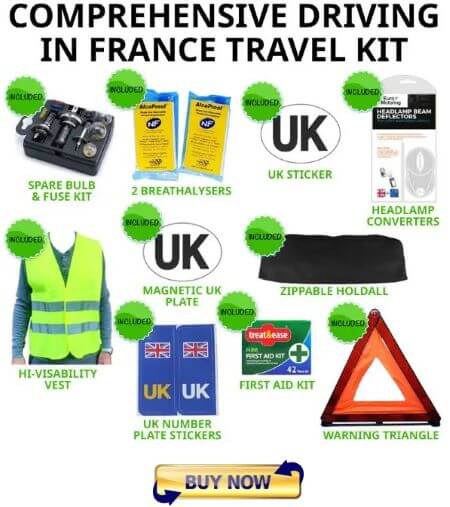
Full Driving in France Kit
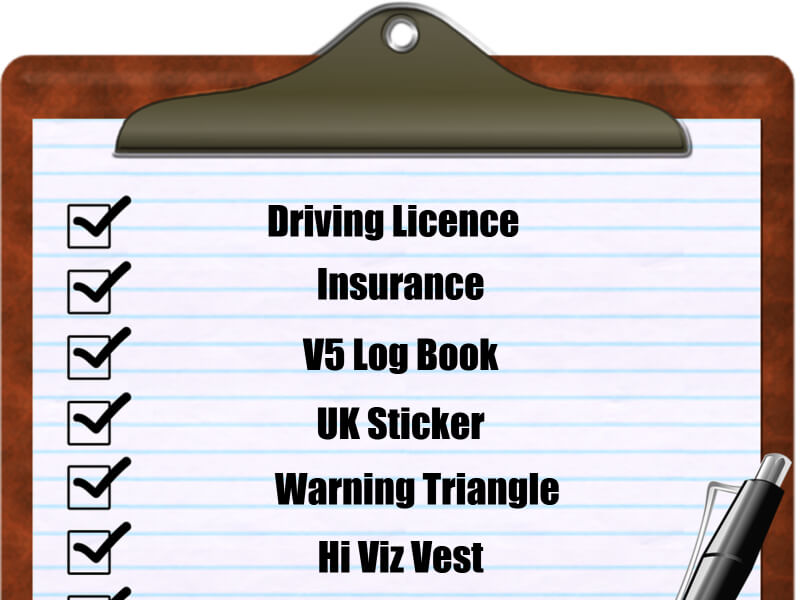
Driving in France Kit
Other legal requirements, position in vehicle, type of seat/restraint, the 'not so' legal requirements, european breakdown cover, fire extinguisher, breathalysers.

Spectacles, Glasses
Crit'air stickers.
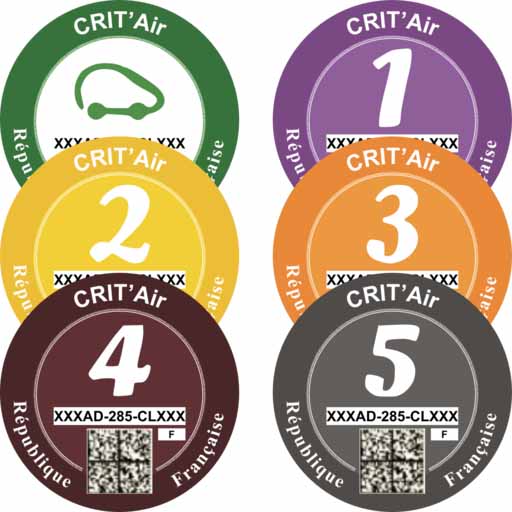
Priorité à Droite
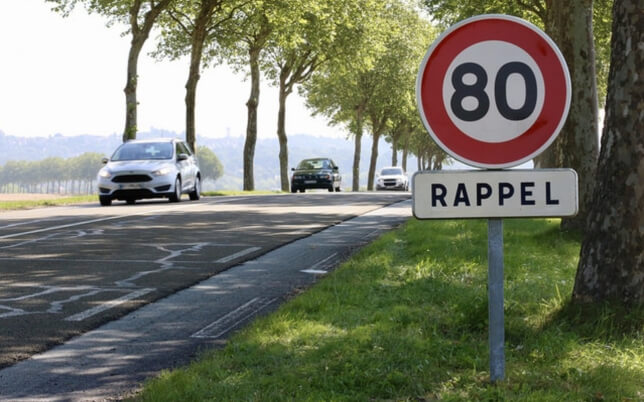
French Road Signs
Driving in flip flops.

French Driving Kit
Drive-france.
- Paris Tourism
- Paris Hotels
- Paris Bed and Breakfast
- Paris Vacation Rentals
- Flights to Paris
- Paris Restaurants
- Things to Do in Paris
- Paris Travel Forum
- Paris Photos
- All Paris Hotels
- Paris Hotel Deals
- Last Minute Hotels in Paris
- Things to Do
- Restaurants
- Vacation Rentals
- Travel Stories
- Rental Cars
- Add a Place
- Travel Forum
- Travelers' Choice
- Help Center
Tax refund if traveling to another EU country first - Paris Forum
- Europe
- France
- Ile-de-France
- Paris
Tax refund if traveling to another EU country first
- United States Forums
- Europe Forums
- Canada Forums
- Asia Forums
- Central America Forums
- Africa Forums
- Caribbean Forums
- Mexico Forums
- South Pacific Forums
- South America Forums
- Middle East Forums
- Honeymoons and Romance
- Business Travel
- Train Travel
- Traveling With Disabilities
- Tripadvisor Support
- Solo Travel
- Bargain Travel
- Timeshares / Vacation Rentals
- Ile-de-France forums
- Paris forum

I have the tax refund form already and from what I read, I need to drop the form somewhere and I think I may have difficulties to do so in the morning when I rush for the train.
Would be grateful if someone can help me out here.
5 replies to this topic

Yes, you can only apply for a tax refund at the moment you leave the EU.
I am taking the TGV train. Would I be able to do it at the train station?
No, you are not leaving the EU until you depart Spain.

The whole EU is a single customs territory, technically a “customs union” and a “single market”. As indicated above, you can only claim the VAT back when you finally leave.
- VAT refund clarification 1:35 pm
- How to book free first Friday ticket at Louvre? 1:28 pm
- Eiffel Tower Tickets 1:11 pm
- Asked for ID at Paris Clothing Store Checkout 12:52 pm
- One Week w/ Young Family Advice 12:44 pm
- The Pirates in Paris: Part 1 12:34 pm
- 7 days in Paris-Itinerary advice 12:05 pm
- Metro tickets 11:59 am
- Techno Parade 11:56 am
- Day trip into Paris from CDG airport during 13 hour layover 10:30 am
- Is it safe around Porte de Montreuil? 10:15 am
- Hailing a taxi 8:22 am
- 3 Day Itinerary - Please provide your expertise - July 2024 3:43 am
- Louvre Tickets - July 2024 2:39 am
- What is the best area to stay in paris?!! 451 replies
- Travelling Nice to Paris, TRAIN or FLY? 36 replies
- Buying Louis Vuitton..cheaper in Paris than USA? 33 replies
- Day trips from Paris by train 22 replies
- Paris to Venice via overnight Train 19 replies
- Is European Destinations.com a legit site to book from? 272 replies
- Itinerary for Paris in 3 days 14 replies
- Best Things to buy in Paris 19 replies
- best arrondissement to stay in 11 replies
- What to pack/wear for mid-October Weather 11 replies
Paris Hotels and Places to Stay
- 10 Steps for submitting great Forum questions
- Navigo cards, fares and everything about public transport
- Day Trips from Paris
- Paris with kids
- Important Links for Paris Visitors
- Safety in a Nutshell
- How do I take a bus in Paris?
- FAQ: What are the best books about Paris?
- FAQ: Where are the toilets? Où sont les toilettes?
- Taxis Parisiens
- Price hikes during the Olympic Games.
- Transportation during the Olympic Games

More From Forbes
Paris olympics: finding last-minute tickets, tipping and qr codes.
- Share to Facebook
- Share to Twitter
- Share to Linkedin
The Paris Olympic Games starts in 67 days—here's how to find last-minute tickets
Unlike most places watching Taylor Swift depart to a different city on her Eras tour, Paris isn't concerned—it's expecting 15 million visitors in 67 days for the summer 2024 Olympic Games. As the countdown begins, here's a guide to finding last-minute tickets, tipping and QR codes for moving around, plus how the city has been tackling its reputation for not being the most customer-friendly.
The Official Paris Olympics Site Is Now Live—For Reselling And Buying Event Tickets
While The Guardian reports that the super-rich are spending $500,000 on packages that include accommodation and tickets to sought-after events, there are cheaper ways to get tickets to some events during the Olympics.
The website and application to resell Olympic tickets is now live , allowing ticket holders to legitimately resell tickets to venues, and as per IOC instructions, it is the only official way to resell and buy tickets at this point before the Games begin. QR codes for entering venues are not currently activated so that they can't be counterfeited, but this site will allow ticket holders to transfer QR codes in time.
Navigating Paris During The Olympics—QR Codes
During the Olympics, some areas of Paris will require a QR code to enter, and this platform is also now live in English. It's called a Pass Jeux and will mostly be necessary for people who live and work in areas where the Games are being held, so they can pass freely, and also workers, like taxi and delivery drivers. There is also a map showing where people can and cannot drive during the Olympics and the Paralympics.
Paris Is An Expensive City—Do Tourists Need To Tip?
In the 2023 Worldwide Cost of Living Index, Paris came in seventh place, behind Los Angeles and ahead of Tel Aviv and Copenhagen. Unlike other global cities, tipping is not expected in restaurants and bars, as a 15% service charge is already included by law—although people usually leave a small tip of a couple of euros if the service was really good, as an additional extra.
‘Fortnite’ Servers Are Down, Here’s When Chapter 5, Season 3 Begins [Updated]
Ethereum etfs approved: insights into the sec’s decision, today s quordle hints and answers for friday may 24.
To help reduce the cost of your trip, if you find yourself in Paris at the beginning of any month, you can seek out one of the many museums that allow free entry on the first Sunday of every month. Just like London, there are also lots of lovely places that offer a view without paying for it—like the park in Belleville, which has views of the Eiffel Tower and some lovely bars and restaurants off the beaten tourist track, like Bar Combat and bistro L'Entracte.
Another great option for getting around can be the Vélib hire bikes, which only cost €3 for 45 minutes and can be found on many street corners. Plus, it's better to buy tickets for the metro in bulk, as in books of ten single tickets.
Do You Speak Touriste? Visitors Will Find A City Ready To Welcome
France and its capital both have a reputation for not being completely welcoming to tourists, but as The Washington Post reports , Paris has been working hard to welcome visitors in the politest way possible.
In 2023, Paris' Chamber of Commerce revived an old campaign called “Do You Speak Touriste?” to remind hospitality industry workers of the subtleties between different cultures and how these might lead to misunderstandings—examples include repeating what tourists say, rephrasing it and asking them if they've been understood.
When it was launched in 2013, the “Do You Speak Touriste?” campaign was launched with an ad campaign, asking Parisiens to be nicer to tourists, reported Bloomberg at the time.
Many businesses in Paris (around 1,600) have signed a hospitality charter to follow specific principles of sustainable and environmentally friendly measures and to improve visitors’ experiences—there will be stickers displayed in shop windows to show tourists that these businesses can be trusted.
There Is Still Accommodation Available In Paris During The Olympic Games
While prices were sky high when the Paris Olympic Games were announced, they have come down considerably for the visitor looking for average-priced accommodation, although rooms are still double what they would be in any other summer.
For anyone looking to stay somewhere very special, Airbnb introduced its Icons collection this week, allowing tourists to book stays in some very sought-after venues, including, for the Olympic Games in Paris, an overnight stay at the Musée D'Orsay in a bed in its clock room —guests will be able to watch the opening ceremony of the Olympic Games from its rooftop terrace, as well as making use of private access to the Impressionist art collection.

- Editorial Standards
- Reprints & Permissions
Join The Conversation
One Community. Many Voices. Create a free account to share your thoughts.
Forbes Community Guidelines
Our community is about connecting people through open and thoughtful conversations. We want our readers to share their views and exchange ideas and facts in a safe space.
In order to do so, please follow the posting rules in our site's Terms of Service. We've summarized some of those key rules below. Simply put, keep it civil.
Your post will be rejected if we notice that it seems to contain:
- False or intentionally out-of-context or misleading information
- Insults, profanity, incoherent, obscene or inflammatory language or threats of any kind
- Attacks on the identity of other commenters or the article's author
- Content that otherwise violates our site's terms.
User accounts will be blocked if we notice or believe that users are engaged in:
- Continuous attempts to re-post comments that have been previously moderated/rejected
- Racist, sexist, homophobic or other discriminatory comments
- Attempts or tactics that put the site security at risk
- Actions that otherwise violate our site's terms.
So, how can you be a power user?
- Stay on topic and share your insights
- Feel free to be clear and thoughtful to get your point across
- ‘Like’ or ‘Dislike’ to show your point of view.
- Protect your community.
- Use the report tool to alert us when someone breaks the rules.
Thanks for reading our community guidelines. Please read the full list of posting rules found in our site's Terms of Service.
Advertising
The tennis traveler: paris is the place to be for roland garros, 'she is my person': paula badosa and stefanos tsitsipas are back together, daniil medvedev helps christen tennis courts in parisian suburbs that were named for him, danielle collins reveals the sweet origins of her and madison keys' friendship, bid on the racquet roger federer used in his last roland garros final, watch: aryna sabalenka swoons over rome pasta, gelato, dreams of winning in foro italico, whipped goat cheese prosciutto cups: roland garros recipes from culinary tours, french onion mushroom tart: roland garros recipes from culinary tours, blue cheese steak frites bites: roland garros recipes from culinary tours, three french-inspired recipes from culinary tours to elevate your roland garros watch party, cottage of the islands.
View this post on Instagram A post shared by Le Chalet des Îles (@chaletdesiles)
The Latin Quarter Experience
View this post on Instagram A post shared by Marco Lo Faro ✈︎ Travel Reels (@im.nowhere)
To Paris, With Love
View this post on Instagram A post shared by Musée Rodin (@museerodinparis)
The Museum of a Lifetime

IMAGES
VIDEO
COMMENTS
All U.S. and Canadian citizens, including infants, need a valid passport to enter France. Visas are not required for American and Canadian visitors staying in France for up to 90 days. For more information, contact your nearest French Consulate. See a list of local French consulates in the U.S. It is mandatory in France to carry some form of ...
Yes, France is open to American travelers, regardless of vaccination status. As of August 2022, France removed all COVID entry requirements for any traveler from any country. Testing, proof of vaccination, proof of recovery, proof of a compelling reason for travel, and sworn declaration about Covid contact and symptoms are no longer required.
For this reason, we recommend that your passport have at least six months' validity remaining whenever you travel abroad. When traveling to France, please note that the Government of France does NOT recognize the 12-page U.S. emergency passport, issued by U.S. embassies and consulates overseas, as a valid travel document for visa-free travel ...
Call us in Washington, D.C. at 1-888-407-4747 (toll-free in the United States and Canada) or 1-202-501-4444 (from all other countries) from 8:00 a.m. to 8:00 p.m., Eastern Standard Time, Monday through Friday (except U.S. federal holidays). See the State Department's travel website for the Worldwide Caution and Travel Advisories.
Travellers no longer need to present a sworn declaration that they are not infected with COVID-19 and pledge to take an antigen test or biological exam upon arrival in France. This also applies to travel between mainland France and each of the overseas territories. However, in the event of a dangerous variant, a system requiring a negative ...
6. Get familiar with cafe culture etiquette. The best places to experience Paris and its people are at the cafes. Take a moment to rest on a terrasse - cafe tables on the street - to people-watch while planning the next part of your day. Upon arrival, simply choose a table and sit; servers will come and attend to you.
Step 3: Book your accommodation. After you've bought your flight tickets, it is time to book your hotel in Paris! You'll want to pick a place near the metro so that you can easily travel around the city. The metro in Paris is very extensive and essential for getting around the city.
The iconic city of Paris deserves a spot on every traveler's bucket list. Alexander Spatari/Getty Images. Paris is the City of Light, a destination steeped in style, culture, history, and romance ...
As of August 1, there are no Covid-19 related travel restrictions for France. This means travelers are no longer required to present proof of vaccination, complete a sworn statement before arrival ...
So save money and buy everything you might need at home. 11. Sleep mask and earplugs. Even if you have chosen a 5-star hotel for your stay, you never know who will be next door. So if you don't want somebody to ruin your sleep, pack a sleep mask and a pair of earplugs.
4. Buy skip-the-line tickets in advance to avoid wasting time in queues. Louvre museum queues. One of the most useful tips when visiting Paris is to buy skip-the-line entry tickets to attractions in advance. Paris is one of the most visited cities in Europe, so you can expect long queues at its popular attractions.
How to Plan a Trip to Paris, France. If you're planning a trip to Paris in 2024, you will want to read this Paris Travel Planner.Paris for first-timers can be overwhelming; there are so many things to see and do! That's why we want to help with our Paris Trip Planner.. This Paris Trip Planner covers everything you need to know to plan a trip to Paris, including the best time to visit Paris ...
1- Do Your Homework. Americans are notoriously ignorant about the world outside of our borders. Rise above the reputation by knowing a few basics like the language spoken (French), the currency (Euro), and that Paris is France's capital city. Before traveling to Paris from US, try to learn about French culture.
We've included tips for using foreign currency & saving money in France. Keep change for the bathrooms. When you find a public toilet, you'll likely need to pay 0.50€ to enter. Every time we stop to eat or drink or visit a tourist attraction, we always make sure to use the bathroom there before we leave.
Your passport must be: issued less than 10 years before the date you enter the country (check the 'date of issue') valid for at least 3 months after the day you plan to leave (check the ...
38 Things You Need to Know Before Your First Trip to Paris. Everyone remembers their first trip to Paris. The perfectly manicured streets, the Haussmannian architecture, the indulgent smell of ...
Still current at: 25 May 2024 Updated: 23 May 2024 Latest update: Information on D-Day commemoration events between 5 and 7 June ('Safety and security' page).
Do not use a cell phone or text while driving (illegal in many countries). Travel during daylight hours only, especially in rural areas. If you choose to drive a vehicle in France, learn the local traffic laws and have the proper paperwork. Get any driving permits and insurance you may need. Get an International Driving Permit (IDP).
Best Time to Visit Paris. Paris is beautiful year-round, but the best time to visit depends on your preferences: Spring (April-June) and Fall (September-October): Milder temperatures, fewer crowds ...
5 Activities in Paris you Don't Need to Reserve. But despite all the buzz, the crowds, and the need to reserve certain activities in Paris, there's plenty of wiggle room. And in Paris terms, this means time to wander, explore, to go with the flow end to enjoy Paris. I like to think of Paris trip planning in two categories:
The Olympic Games will take place in Paris from July 26 to August 11, followed by the Paralympic Games from August 28 to September 8, 2024. ... Canadian citizens do not need a visa for travel to countries within the Schengen area. However, visa-free travel only applies to stays of up to 90 days in any 180-day period. ...
A complete and up-to-date checklist of legal requirements for driving in France. All post Brexit rules, so you will be compliant for 2024 and beyond. It also covers the driving kit that you need to take with you by law when driving in France and also other regulations that you need to adhere to. Failure to comply with these can not only put your safety at risk, but there can also be hefty on ...
I am taking the TGV train from Paris Montparnasse to Barcelona before going back home to Asia. How can I do my tax refund for my Paris purchase? I have the tax refund form already and from what I read, I need to drop the form somewhere and I think I may have difficulties to do so in the morning when I rush for the train.
I write about travel and culture. Following. May 20, 2024, 10:20am EDT. ... Paris Is An Expensive City—Do Tourists Need To Tip? In the 2023 Worldwide Cost of Living Index, Paris came in seventh ...
Calls, including over Wi-Fi, are $.25/min. (no charge for Wi-Fi calls to US, Mexico, and Canada). Go5G plans: Up to 10GB high-speed data in select Central European countries; otherwise, standard speeds approximately 256 Kbps.
East Walker Church of Christ - 2024 May 4th, 2024 - Dewayne Tapscott
Travel back to 1857, when Empress of the French Eugénie de Montijo imported a Swiss wooden cottage to sit atop of the Bois de Boulogne—now the second-largest park in Paris and home to Stade ...